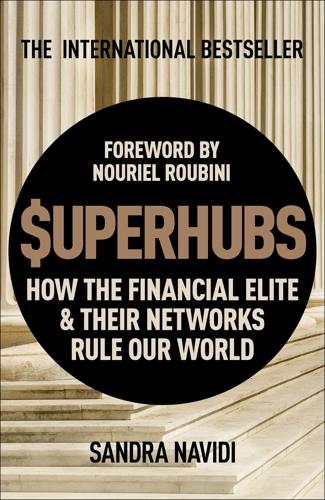
SUPERHUBS: How the Financial Elite and Their Networks Rule Our World
by
Sandra Navidi
Published 24 Jan 2017
In 2016 there were 1,810 billionaires in the world—with an aggregate net worth of $6.5 trillion—540 of which are in the U.S., among them financiers such as George Soros, Stanley Druckenmiller, Steve Cohen, Steve Schwarzman, and Leon Black.6 Many of them have their own family offices. Family office principals, who typically are hardworking and well grounded, above all treasure privacy. They institute high barriers to entry, often employing gatekeepers to filter and vet requests, because their riches make them perpetual targets for people who want something from them. As important job creators, taxpayers, and philanthropic supporters, family offices are powerful and influential forces in their communities. Whenever we invited public officials to a family office gathering, they would happily attend. A family office platform facilitates networking so that families can benefit from each other’s experiences, coinvest, and leverage buying power.
…
Throughout my career, I had only dealt with institutional investors, but after starting my own company, I stumbled into the private wealth space. Because I knew many ultra-high-net-worth individuals globally, the family office of an IT billionaire asked me to assist in building a global nonprofit platform for family offices, where they could meet to exchange views and cooperate without the involvement of financial intermediaries, such as bankers or other service providers like attorneys and tax advisers. Such gatherings are among the most exclusive and private, because these families and their representatives only open their ranks if you are one of them. Family offices are the investment management companies of wealthy families. Banks, financial firms, and multifamily offices typically manage the assets of families worth up to $500 million.
…
For families worth more than $500 million in liquid assets, having their own investment firms is expedient, because it affords them control, privacy, and cost efficiencies. The concept of a family office has evolved over a long time. Business tycoon John D. Rockefeller set up his family office in the nineteenth century. Often families have come into great wealth by building enormously successful companies, sometimes over the span of several generations. Among them are old industrial dynasties, nouveau industrialists, or tech billionaires. Some families consist of fewer than a dozen members, while others encompass hundreds. The priority of family offices is wealth preservation. According to a saying, a fortune lasts for three generations: The first one makes it, the second one lives on it, and the third one squanders it.
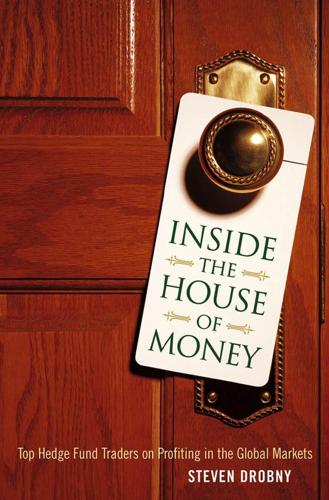
Inside the House of Money: Top Hedge Fund Traders on Profiting in a Global Market
by
Steven Drobny
Published 31 Mar 2006
The following chapters present the thinking of some of the best minds in the investment world about how they interpret these events and try to profit from them, using what remains the most open and flexible mandate in the investment world: global macro. CHAPTER 4 The Family Office Manager Jim Leitner Falcon Management Wyckoff, New Jersey he sign reads both “Falcon Management” and “Aikido Spirit” outside the sprawling suburban New Jersey house that Jim Leitner calls base for his family office when he is not on the ground scouring for investments in India, the Ivory Coast, or some other far-flung location. Leitner manages mostly his own money and has been doing so for years. As a result, his approach to global macro markets is different from most other fund managers in that he is not long an implicit put option.
…
The big thing that distinguishes the real money world from the hedge fund world is redemptions. Universities don’t have redemptions, nor do family offices for that matter. Both are going to be around for years so they invest for the long term. Meanwhile, the hedge fund industry invests for the one- to three-month time horizon, which subjects managers to taking inefficiency risk and missing out on opportunities that are longer term in nature. 59 THE FAMILY OFFICE MANAGER 8,000 180 7,000 160 140 Ghana All Share Index Guinness Nigeria 6,000 120 5,000 100 4,000 80 3,000 60 2,000 40 1,000 20 0 4 05 nJa t-0 Oc 4 l-0 4 Ju Ap r-0 3 n04 Ja t-0 Oc 3 Ju l-0 r-0 3 Ap 3 n0 Ja t-0 2 Oc Ju l-0 2 r-0 2 Ap Ja n0 2 0 FIGURE 4.3 Ghana Stock Exchange All Share Index and Guinness Nigeria PLC, 2002–2005 Source: Bloomberg.
…
The greatest scientists are always artists as well. —Albert Einstein CONTENTS Foreword by Joseph G. Nicholas (HFR Group) ix Preface xi 1. Introduction to Global Macro Hedge Funds by Joseph G. Nicholas (HFR Group) 1 2. The History of Global Macro Hedge Funds 5 3. The Future of Global Macro Hedge Funds 31 4. The Family Office Manager: Jim Leitner (Falcon Management) 35 5. The Prop Trader: Christian Siva-Jothy (SemperMacro) 71 6. The Researcher: Dr.Andres Drobny (Drobny Global Advisors) 103 7. The Treasurer: Dr. John Porter (Barclays Capital) 133 8. The Central Banker: Dr. Sushil Wadhwani (Wadhwani Asset Management) 161 9.
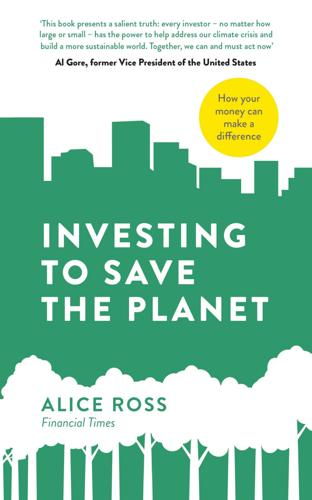
Investing to Save the Planet: How Your Money Can Make a Difference
by
Alice Ross
Published 19 Nov 2020
Some families are so wealthy that they set up family offices. These are investment companies, often with $1bn or more in assets, that have only one client: the family. Think of a billionaire and they are very likely to have their own family office: George Soros has Soros Fund Management; Google founder Sergey Brin has Bayshore Global Management; Bill Gates has Cascade Investments. Many others belong to families that are less well known: the quiet billionaires who made money not through the glamour of Silicon Valley but via industrial or manufacturing routes. And family offices will often have influential younger members – those belonging to the millennial generation, or the generation beyond that, known as Gen Z, who typically care more about the environment.
…
The cost needs to come down to make them viable, and this is where innovation comes in. Companies including US-based World Energy and Finland’s Neste are producing low-carbon aviation fuels on a commercial scale, with others in the pipeline. World Energy is a good example of a new-technology company that has attracted attention from a family office: in 2018 it received a $345m investment from Canadian family office CFFI, headed by billionaire John Risley, whose wealth came from founding Clearwater Fine Foods, one of the largest seafood businesses in the world. British Airways is working with the start-up Velocys to build a UK plant to convert waste into sustainable aviation fuel, having invested in the company in 2019 along with Shell.
…
And family offices will often have influential younger members – those belonging to the millennial generation, or the generation beyond that, known as Gen Z, who typically care more about the environment. Their influence is helping family offices to be an important class of investors in climate change solutions, as they are in a position to back entrepreneurs. Titans of tech are also funnelling both philanthropic and investment money into climate change solutions. Jeff Bezos, founder of Amazon, said in February 2020 that he would donate $10bn – about 8 per cent of his wealth at the time – via the newly created Bezos Earth Fund to fight climate change.
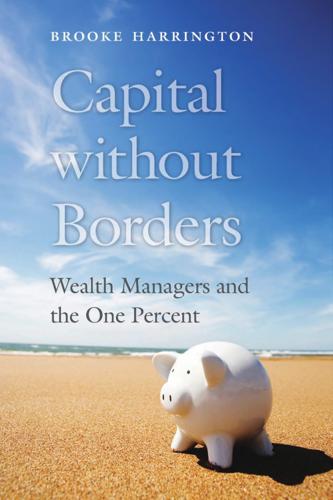
Capital Without Borders
by
Brooke Harrington
Published 11 Sep 2016
What if the sole practitioner takes on too large a client load, making him or her unable to respond to client inquiries in a timely fashion? Such concerns, combined with a surge in the number of ultra-high-net-worth individuals in recent years, has led to the increasing popularity of “family offices,” where a suite of professional wealth managers are employed full-time in the service of a single family or a small group of families.103 The Rockefellers are thought to have innovated the structure for their own use in the late nineteenth century.104 Family offices, which typically set fees as a percentage of assets under management—ranging from 0.25 percent to 1 percent—often cost $1 million or more annually, and are affordable only for those with $100 million or more in investable assets.105 Bruce, the Geneva-based wealth manager, called such offices “one-stop-shopping for the super-rich.”
…
Such concerns, combined with a surge in the number of ultra-high-net-worth individuals in recent years, has led to the increasing popularity of “family offices,” where a suite of professional wealth managers are employed full-time in the service of a single family or a small group of families.103 The Rockefellers are thought to have innovated the structure for their own use in the late nineteenth century.104 Family offices, which typically set fees as a percentage of assets under management—ranging from 0.25 percent to 1 percent—often cost $1 million or more annually, and are affordable only for those with $100 million or more in investable assets.105 Bruce, the Geneva-based wealth manager, called such offices “one-stop-shopping for the super-rich.” Elsewhere, family offices have been described as a “vanity cost,” and likened to owning a private jet in terms of offering privacy and control for an exorbitant price. But just as demand for large private jets continues to grow, so does that for the ultra-high level of customization offered by this service model: assets under management in family offices are estimated to be $1.2 trillion and growing.106 This rising demand has spawned a cottage industry: for a fee of up to $80,000, a “matchmaker” firm will recruit top wealth managers for ultra-high-net-worth individuals seeking to staff a family office.107 In that rarefied labor market, wealth managers can command large incomes without exposing themselves to the risks of being a sole practitioner.
…
But just as demand for large private jets continues to grow, so does that for the ultra-high level of customization offered by this service model: assets under management in family offices are estimated to be $1.2 trillion and growing.106 This rising demand has spawned a cottage industry: for a fee of up to $80,000, a “matchmaker” firm will recruit top wealth managers for ultra-high-net-worth individuals seeking to staff a family office.107 In that rarefied labor market, wealth managers can command large incomes without exposing themselves to the risks of being a sole practitioner. However, some of those I interviewed opted to forgo this trade-off. Steve, the sole practitioner quoted above, decided that the risks were worth what he gained in job satisfaction: “I don’t want to go in-house [as part of a family office] because you get caught up in the day-to-day politics of the family and lose the … variety and challenge of dealing with different people in different situations.
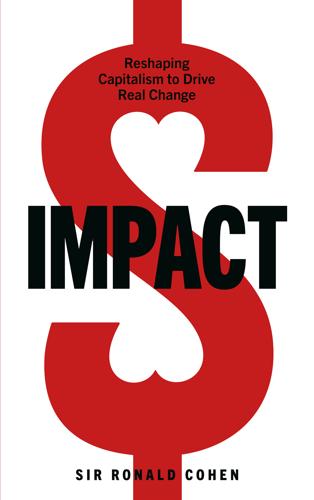
Impact: Reshaping Capitalism to Drive Real Change
by
Ronald Cohen
Published 1 Jul 2020
It reflects the economic reality’.55 These firms’ impact funds are being supported by big institutional investors, as well as high-net-worth individuals and their family offices. According to the 2017 Global Family Office Report, 40 per cent of family offices were planning to increase their allocation to impact investing in the next year.56 Sara Ferrari, head of the global family office group at UBS, has said that this shift reflects the increasing influence of millennials over their families’ affairs. ‘This is an opportunity for family offices to use their investment expertise to convert social objectives into financial concepts,’ Ferrari said. ‘In doing so, they can help to shape the purpose of a family and promote unity.’
…
As rigorous impact measurement advances within the current ESG pool, converting it into impact investment, and new forms of impact investment develop beyond it, impact investment should be able to exceed 20 per cent of the world’s investment assets during the 2020s, taking us to more than $40 trillion. But how exactly will we get there? Whether we are a worker with a pension, invest money through an asset manager, have a life insurance policy or are wealthy enough to invest through our own family office, we all have an influence on our investment portfolios. By exercising this influence to avoid companies that do harm and seek out companies that do good, we can help finance the achievement of the SDGs and contribute directly to a more equitable and sustainable world. So far, the investor groups that demonstrate the greatest progress towards impact investing are pension funds ($38.3 trillion) and asset managers ($85 trillion).
…
By harnessing the full potential of our assets … we can activate the power of our investments to achieve the future we all want and deserve.’64 Silicon Valley alumni Charly and Lisa Kleissner’s KL Felicitas Foundation is going all-in by dedicating its total assets of approximately $10 million to impact investing,65 and they are encouraging their peers to do the same. Under the umbrella of Toniic, a global action community of impact investors, the Kleissners co-founded the ‘100 per cent Impact Network’, a collaborative group of more than one hundred family offices, high-net worth individuals and foundations (23 per cent are family foundations, according to their 2018 report)66 who have each pledged to dedicate their portfolios to impact investment. The group has a collective $6 billion of assets, with more than $3 billion already deployed,67 and aims to create an international movement of impact investors.68 The New Kids on the Block A new crop of foundations, led by individuals who have achieved great success in business and technology, are the primary drivers of a new philanthropic model.
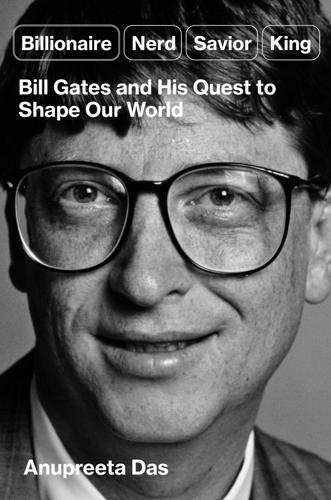
Billionaire, Nerd, Savior, King: Bill Gates and His Quest to Shape Our World
by
Anupreeta Das
Published 12 Aug 2024
Cascade is a type of firm that has become popular in the past couple of decades among wealthy individuals. Called family offices, such firms are unregulated entities that invest the fortunes of billionaires. Traditionally, many wealthy people used external wealth managers at banks and other firms to run their money for them. But as wealth has grown, and new fortunes have been made, many billionaires have sought to create family offices to run their investments, and sometimes their philanthropy. Depending on the owner’s wealth and ambition, a family office can be a small affair with a handful of employees. Or it can be like Cascade, which essentially operates like a sophisticated Wall Street firm, using hedging techniques to protect investments, combining short- and long-term strategies across multiple classes of assets, making direct investments, or coinvesting with others.
…
As of fall 2022, the family office also employed a professionally trained private chef with experience working on yachts, islands, and estates, practiced at all styles of cuisine and dietary preferences. Although the Gates Family Office no longer handles French Gates’s personal affairs, it was once in charge of managing her wardrobe, makeup, and hair, and styling her. The office staff also has included an expert in rare books to catalog their collection, experts in “chemical-free” housekeeping, tennis, golf, boating, massage, yoga, meditation retreats, and riding golf. The family office is also the primary entity through which Gates holds interests in equestrian properties for Jennifer, who is a professional show jumper and doctor.
…
The Giving Pledge has fed the growth of the philanthropic advisory industry in the past decade or so, because many wealthy people who want to be generous and think beyond donating to their alma maters or hospitals and research centers don’t know where to start. Philanthropic advisors and those who manage the investments of billionaires through private firms called family offices, say their industry has gotten much better at helping people understand how to do a better job of giving money away. They say they are providing a professional service that helps the wealthy build foundations and identify the best-run nonprofits where their donations can make the most impact.
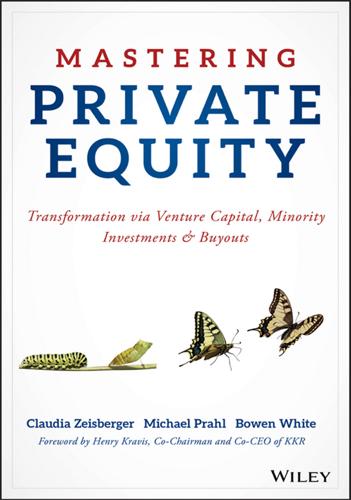
Mastering Private Equity
by
Zeisberger, Claudia,Prahl, Michael,White, Bowen
,
Michael Prahl
and
Bowen White
Published 15 Jun 2017
LIMITED PARTNERS: Investors or LPs contribute by far the largest share of capital to any PE fund raised. LPs participate merely as passive investors, with an individual LP’s liability limited to the capital committed to the fund. Investors active in PE include private and public pension funds, endowments, insurance companies, banks, corporations, family offices, and fund of funds.5 LPs are purely financial investors and cannot be involved in the day-to-day operation or management of the fund or its investee companies without running the risk of forfeiting their limited liability rights. LPs legally commit to provide capital for investment when it is drawn down (or “called”) by the PE fund and they receive distributions of capital—including a share of profits—upon successful exit of the fund’s investments.
…
They offer the PE fund significantly more transaction flexibility and control over the exit process than an IPO—where the terms are often determined by security laws, exchange rules and underwriters—and are usually completed faster and at lower cost than an IPO. Third-party buyers may include strategic investors—domestic and international corporations—or financial investors—in particular PE funds but also hedge funds and family offices. The advantages and disadvantages of an exit involving a strategic buyer may differ significantly from one involving a PE buyer, as highlighted below. STRATEGIC BUYERS: Strategic investors’ operations and expertise in an industry will inform their approach in a sales process. The perceived synergies between their existing operations and the business to be acquired often entice “strategics” to propose a higher valuation than financial investors.
…
Not all investors with an allocation to PE invest in first-time funds, narrowing the pool of available investors. It is therefore crucial for the first-time fund manager to target investors with the appropriate risk appetite and a history of supporting first-time managers. Common investors in first-time funds include endowments, family offices, specialist fund-of-funds and development finance institutions. For first-time PE teams raising capital, the common closed-end fund structure may not be the easiest model. Funding investments on a deal-by-deal basis allows a newly established PE firm to show its access to proprietary deal flow, deploy capital and establish relationships with the investor community without requiring LPs to commit to a closed-end fund and lock up their capital for the long term.
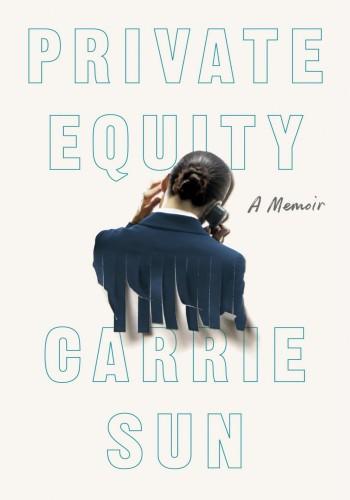
Private Equity: A Memoir
by
Carrie Sun
Published 13 Feb 2024
We never see any Carbon résumés floating around because once people get there, they stay. Forever. No one leaves.” He let a few seconds pass. “The job is the sole assistant to the founder of the Firm, Boone Prescott. He’s a billionaire. And he’s young.” Peter glanced down at his notebook. “Boone is, from all accounts, the nicest. And Jen, who runs his family office and personal life—she’s an absolute sweetheart. The job is essentially being Boone’s right-hand person: you’d manage his time and business life, help with some research, and also provide support to one of his analysts. This is a once-in-a-lifetime opportunity. Can I pitch you to them?” * * * — I LEFT PETER’S OFFICE and went back home to a dorm room I’d rented through NYU.
…
Of note, I could find nothing negative written about Boone or Carbon anywhere—in contrast to Dalio and Griffin and their firms, about which I had read articles mentioning subpoenas tied to possible insider trading, as well as employee turnover tied to a culture wherein the biggest insult was to call someone suboptimal. About Jen: There was no information. No LinkedIn, no Facebook, no Twitter. About the position: I received no job description. A minute later, Jen walked in, apologizing for the look of their suite. She and her colleagues had just moved into the new family-office space. I stood up to shake her hand and noticed her well-tailored outfit, mid-heel pumps, and silky brown hair. My mind flashed to the iconic The Devil Wears Prada scene in which a post-makeover Anne Hathaway struts through the office wearing Chanel. I looked down at my suit, which I had bought on sale for my business-school interview years ago and which had ripped on the way there (later, Mom sewed up the tear on the back slit of my pencil skirt); I made immediate plans to go shopping.
…
The industry would have its ups and downs; it wasn’t until the last decades of the twentieth century that the daring funds began to attract much wider attention for their masters-of-the-universe performance numbers. The eighties and nineties were the halcyon days for hedge funds. They operated on the fringes of the mainstream financial system without much oversight. Most of their investors were high-net-worth individuals or family offices with healthy appetites for risk. Those were also the years before Regulation Fair Disclosure (Reg FD), a rule the SEC instituted in 2000 to try to level the playing field by forcing companies issuing shares to the public to disclose material information to all investors, large and small, simultaneously.
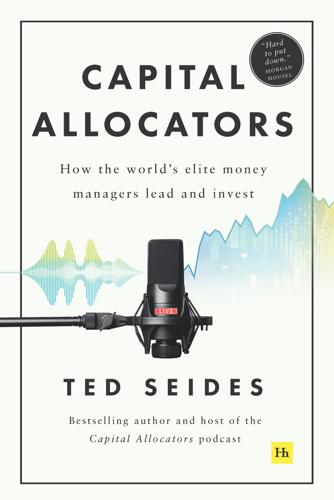
Capital Allocators: How the World’s Elite Money Managers Lead and Invest
by
Ted Seides
Published 23 Mar 2021
When overseeing their business, they make choices like those of business executives. When producing their product, they make capital allocation decisions like CIOs, picking investments and constructing portfolios. CIOs sit at the top of the food chain. Endowments and foundations, high net worth individuals, family offices, corporate and public pension funds, and sovereign wealth funds are end owners of capital. CIOs lead their investment operations. End owners of capital frequently staff their investment team with a small number of professionals. The team occasionally invests directly in securities or deals, and more frequently allocates capital to the products run by money managers.
…
But that is not the whole story. A consistent theme across all the CIO conversations on the show is the importance of effective governance. CIOs cannot make decisions as if they were autocratic rulers. They too have a client to serve who is the ultimate owner of the capital. Among different asset owners, family offices may be the simplest to understand. The owners of the capital are family members. The CIO’s role is to figure out their objectives and manage the capital accordingly. Easy to explain, but with the complex dynamics of families, among the hardest to implement. Public pension fund CIOs notoriously manage around bureaucracy.
…
Lastly, at Helmsley Trust and Carnegie Corporation, the committees retain ultimate authority for all decisions, and yet after thorough discussion almost always defer to the recommendations of the investment office. In less effective processes the decision-making unit struggles to act consistently. In family offices, the governance process may never get defined. Ron Biscardi of iConnections worked with wealthy families and found that the families struggle with making decisions. Investment issues often are only fourth or fifth on the list of things they spend time talking to each other about. CIOs have a hard time making timely decisions when the thought of investments slips down the agenda of any meeting with the family.
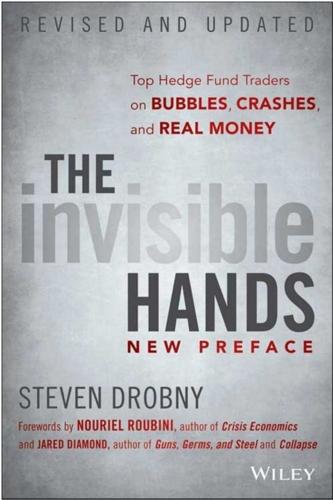
The Invisible Hands: Top Hedge Fund Traders on Bubbles, Crashes, and Real Money
by
Steven Drobny
Published 18 Mar 2010
It is important to recognize and accept when things don’t work out as you expect. If you are proven wrong, adjust your outlook accordingly. To persistently hold on to views, regardless of changing reality, is a recipe for failure and constant distress. Chapter 3 The Family Office Manager Jim Leitner Falcon Management “ The Family Office Manager” is the most popular chapter in Inside the House of Money. The original interview was assembled from a series of discussions with Jim Leitner, who described his approach as attempting to combine the best of hedge fund investing with the best of real money management.
…
Table of Contents Title Page Copyright Page Dedication Praise Foreword Preface Part One - REAL MONEY AND THE CRASH OF ‘08 Chapter 1 - Rethinking Real Money I. Why Real Money? II. The Evolution of Real Money III. RETHINKING REAL MONEY—MACRO PRINCIPLES Chapter 2 - The Researcher Chapter 3 - The Family Office Manager Part Two - The Invisible Hands Chapter 4 - The House Chapter 5 - The Philosopher Chapter 6 - The Bond Trader Chapter 7 - The Professor Chapter 8 - The Commodity Trader Chapter 9 - The Commodity Investor Chapter 10 - The Commodity Hedger Chapter 11 - The Equity Trader Chapter 12 - The Predator Chapter 13 - The Plasticine Macro Trader Part Three - FINAL WORD Chapter 14 - The Pensioner Conclusion Acknowledgements Bibliography About the Author Index Copyright © 2010 by Steven Drobny.
…
Markets around the world, from real estate to equities to commodities to credit, posted huge declines, taking down with them some of the world’s most venerable financial institutions, a wide variety of alternative asset managers (hedge funds, private equity, venture capital, and real asset managers), and a host of real money accounts (pension funds, insurance companies, endowments, foundations, family offices, and sovereign wealth funds). Almost everyone lost money in 2008, and in many cases more than anyone imagined possible. Anger and confusion linger in the aftermath of the crisis, but are by no means limited to market players. Main Street is reeling as homes and jobs have been lost, savings have evaporated, and many assumptions governing the stability of modern society have been challenged.
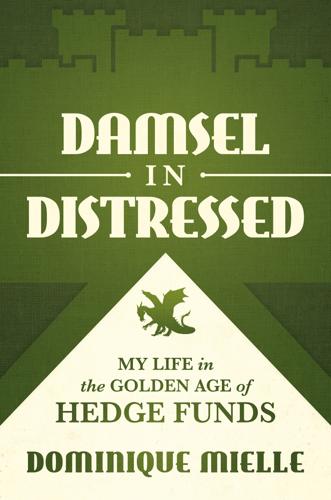
Damsel in Distressed: My Life in the Golden Age of Hedge Funds
by
Dominique Mielle
Published 6 Sep 2021
He was impressed. A hedge fund is not a bank, and I was not a teller, standing at a bank window to open checking accounts. A hedge fund is an investment firm entrusted with large sums of money pooled by a variety of investors, including high-net-worth individuals, private wealth advisory firms (also called family offices), insurance companies, endowments, pension funds, sovereign funds, banks, and many others. What sets a hedge fund apart is the way that it charges its clients (i.e., investors) for the service of managing their money, and the strategies it can employ to invest it. Yes, everyone sits in a hedge fund; only the money stands out.
…
New products were added, such as collateralized loan obligations, direct lending, long-only low-fee vehicles, and industry-specific or asset-specific pools. The name of the game became to offer a one-stop shopping experience, by which I mean the ability to sell and cross-sell worldwide, from the Hong Kong Monetary Authority to a billionaire’s family office and the New York State pension plan. No matter your investment preference, time horizon, or risk appetite, we have a fund for you! To stay in existence, hedge funds looked to expand, attract “sticky money” (hedge fund slang for investors that will stay around for the long term), and accrue franchise value.
…
What to tone down and what to amplify truly separates the hedge fund expert from the layman, and the topic stirred more than one shallow but entertaining conversation with Jeff, my right-hand CLO collaborator. We mostly met institutional investors, meaning people who invest on behalf of others (a pension fund, an insurance company, a family office) as well as consultants who act as intermediaries and advisors to the same groups. Trust me, none was fabulously wealthy, or even stinking rich. They made very decent livings by any reasonable standard but never attained the level of wealth of the people who were supposed to service them, that is, the hedge fund managers.
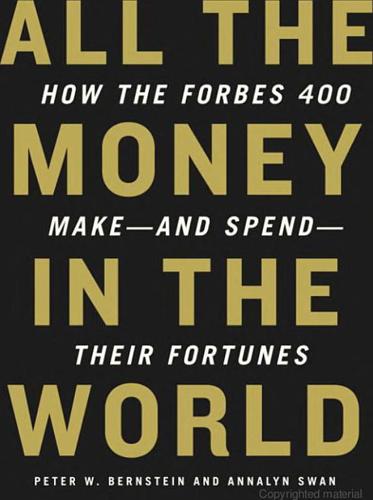
All the Money in the World
by
Peter W. Bernstein
Published 17 Dec 2008
At the same time, more and more superwealthy families are also employing family offices to steer them in the right direction. Hamilton estimates there are about four thousand family offices in the United States today, an increase of about one thousand in less than ten years. The offices are customized, offering a range of services from investment decisions and tax advice to philanthropic research, prenuptial agreements, and help with heirs’ education. Some family members may not be wealthy enough to afford all of these services on their own, but as a combined force they have powerful advice at their fingertips. What the family offices excel at, says Todd Millay, is keeping the dividends rolling in.
…
Rockefeller, but only three, David Jr. and Laurance from the third generation and Winthrop Paul Rockefeller from the fourth generation, made it onto the Forbes 400. Sara Hamilton of Family Office Exchange, which advises some of America’s wealthiest families, including the Sulzbergers (publishing) and the Weyerhausers (lumber), tells of a Rockefeller family member who turned twenty-one and went along to the family office, only to discover that his inheritance was a mere $2 million. “He’s fifth or sixth generation, but everybody expects because his name is Rockefeller there’s a lot more there,” Hamilton says.
…
Others whose insights enrich the book included Rich Avanzino, president, Maddie’s Fund; Joe Breiteneicher, president, The Philanthropy Initiative; Kathy Bushkin, chief operating officer, United Nations Foundation; Chuck Collins, cofounder of Responsible Wealth; William Dietel, president, F. B. Heron and Pierson/Lovelace Foundation; Joan DiFuria and Stephen Goldbart, codirectors, Money, Meaning & Choices Institute; Sara Hamilton, of Family Office Exchange; Dr. Lee Hausner, of the family-wealth consulting firm IFF Advisors; John Healy, former president, Atlantic Philanthropies; Todd Millay, executive director, Wharton Global Family Alliance; Aryeh Neier, president of the Open Society Institute; Judith Stern Peck, director of the Money, Values and Family Life Project, Ackerman Institute for the Family; Tim Stone, president, and Ryan Nguyen, research manager, NewTithing Group; Celia Wexler, vice president for advocacy, Common Cause; and Rod Wood, Wilmington Trust.
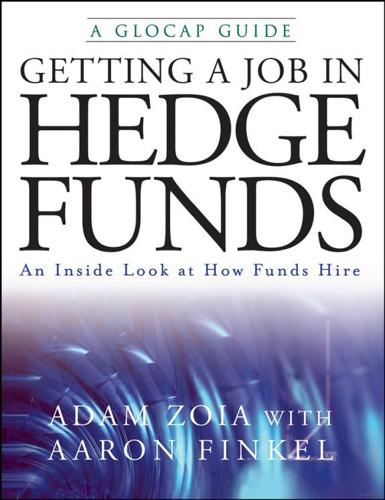
Getting a Job in Hedge Funds: An Inside Look at How Funds Hire
by
Adam Zoia
and
Aaron Finkel
Published 8 Feb 2008
You don’t want to look like an idiot. You should be able to spin any experience that you’ve had into something that would apply to the job you’re interviewing for. See Resume F in Appendix B on page 168. Case Study 13: A Family Office Becomes a Stepping-Stone This person didn’t focus on a career in hedge funds early on. After completing a banking program he had two different jobs—one at a firm doing acquisitions and another at a family office doing public investing. ■■■ I was an economics major at a small liberal arts college and had no visions of hedge funds. Even though I didn’t have a finance background I interviewed at some investment banks and consulting firms and ended up getting into an investment banking analyst program.
…
There were no trick questions, brainteasers, psychological tests, or handwriting analyses. At this point they really want to know your investment ideas. CASE STUDIES To follow are case studies of five people who broke into hedge funds later in their careers. Of the five examples, one joined from private equity, the second moved over from a family office, another switched from sell-side equity research, a fourth broke in after working in an investment bank, and the last transitioned in after working at a long-only asset management firm. Case Study 12: From Private Equity into Hedge Funds This person spent a couple of years at a private equity shop before making the transition into a hedge fund.
…
I wasn’t a stereotypical investor who began reading the Wall Street Journal at a young age and buying stocks for my own account. In my case, I benefited from my investment banking experience, which gave me a solid foundation in corporate finance, and also from my private equity investing experience at the family office where I worked. My advice to others who aspire to work in a hedge fund would be to get the investment banking training under your “I would recommend that those belt. I don’t think the particular group matters, as most will give interested in hedge funds figure you a solid foundation in finance, capital structures, M&A, and out what they like and don’t like.” financings.
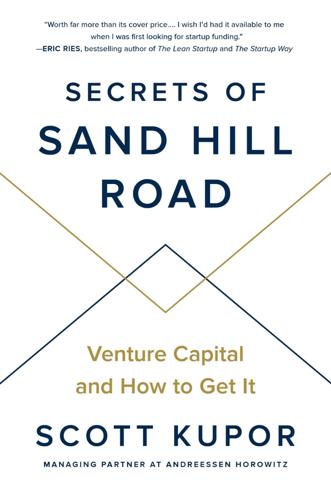
Secrets of Sand Hill Road: Venture Capital and How to Get It
by
Scott Kupor
Published 3 Jun 2019
Inflation (particularly in health-care costs) and demographics (more retirees than current employees) eat away at the value of these pensions, absent the ability to generate real investment returns. Family offices (e.g., U.S. Trust, myCFO)—These are investment managers who are investing on behalf of very-high-net-worth families. Their goals are set by the individual families but often include multigenerational wealth preservation and/or funding large charitable efforts. There are single-family offices (as the name suggests, they are managing the assets of a single family and its heirs) and multifamily offices (essentially, sophisticated money managers who aggregate the assets of multiple families and invest them across various asset classes).
…
What we share is a desire to create benign businesses, see them have an impact on and improve the world, and together realize some financial benefit along the way. The story of venture capital is really a subset of the story of entrepreneurship. As venture capitalists, we raise investment funds from a broad range of limited partners (LPs), such as endowments, foundations, pension plans, family offices, and fund of funds. The capital raised from LPs is then invested in great entrepreneurs with breakthrough ideas. Venture capitalists invest anywhere from the very early stage, where the startup is little more than an idea and a couple of people, to growth-stage startups, where there is some decent revenue coming in and the focus is on effectively scaling the business.
…
Stanford University published a study in 2015 highlighting the concentration of venture-backed companies in the US public markets since 1974. Stanford picked this year because the VC industry dramatically expanded starting in 1979 with the passage of the “prudent man rule.” Prior to 1979, investing in VC was not considered “prudent” for most institutional investors. Thus, the industry largely attracted money from family offices, university endowments, and philanthropic foundations. With the introduction of this rule, pension funds were now permitted to invest in the VC asset class, and thus assets under management grew significantly. Despite the introduction of the rule in 1979, Stanford went back to 1974 to capture one or two significant companies—e.g., Apple—that would have otherwise been missed.
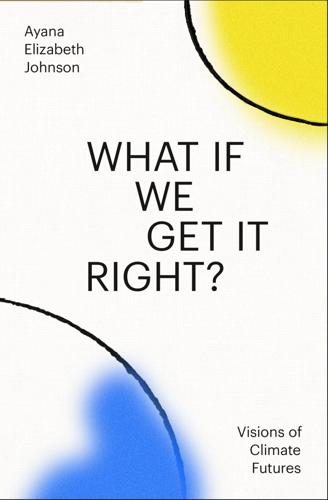
What If We Get It Right?: Visions of Climate Futures
by
Ayana Elizabeth Johnson
Published 17 Sep 2024
.[*103] And there are a lot of very wealthy people who have what is termed a “family office,” a team to manage and invest their assets. If money + strategy = power, many of them have it in spades. So, how can we insert climate into those strategies? How can they unleash their capital in useful ways? Enter investor education and impact investing. Back in 2012, Régine Clément was serving as the trade commissioner and head of energy and environment at the Canadian Consulate General in New York City. She was running a clean tech accelerator program and noticed that some of the participating entrepreneurs, those funded by family offices, were able to continue to raise capital in the challenging years following the 2008 financial crisis.
…
This got Régine thinking that climate investors might benefit from a sort of accelerator program, just like the entrepreneurs she was supporting. Then she heard about CREO, which was at the time a network of about twenty family offices focused on venture capital investing in solar energy, energy efficiency, and the California carbon market. She sleuthed out an intro to this discrete network, became inaugural CEO of the nonprofit CREO Syndicate, and has since grown it to more than 200 family offices in more than thirty countries, on track to collectively invest $100 billion of capital into climate and sustainability solutions by 2025. I was introduced to Régine in 2019, when CREO was building an ocean economy program.
…
We invest in everything from sustainable forestry and land management, to regenerative agriculture and sustainable aquaculture, to lab-made proteins, to plant-based packaging, to more efficient manufacturing processes and buildings that use less energy and water, to solutions that address food waste, to zero-emission fuels for shipping and aviation, to electric cars and charging stations, to heat pumps for homes. We are starting to look at climate adaptation as well. Ayana: That’s a lot! Régine: We launched as a network of trailblazing family offices that had invested in Clean Tech 1.0 in the late 1990s and early 2000s. They were operating on the assumption that the future would look very different, that climate change would become a material risk and opportunity. The rest of the market wasn’t really seeing this yet. Ayana: Great return on your investment, keeping the entire planet from collapsing.
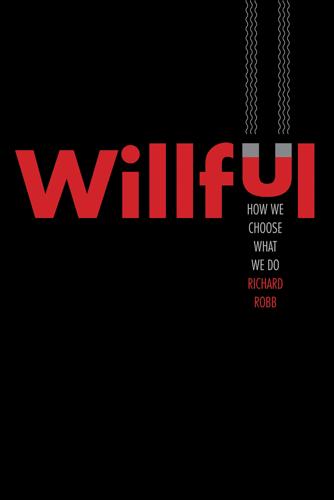
Willful: How We Choose What We Do
by
Richard Robb
Published 12 Nov 2019
Immobility in the face of for-itself opportunity contributed to the run on the banks and elevated a weakness in the housing market into a crisis that tested nearly every financial institution in the world. Rich family offices controlled by strong-willed individuals skilled in finance could theoretically have helped fill the void left by immobilized institutional investors. In my experience, some did. But many did not: the richer the family head becomes, the less interested she is in digging into the technical details that a person on the spot needs to know and that earned the fortune in the first place. And the larger family offices grow, the more they adopt the controls typical of institutional investors. Applying Peirce’s rules, we can see why institutional investors hesitated to buy low-priced, complex, illiquid bonds.
…
See also mercy ambiguity effect, 24 American Work-Sports (Zarnowski), 191 Anaximander, 190 anchoring, 168 angel investors, 212–213n1 “animal spirits,” 169 Antipater of Tarsus, 134–135, 137 “anxious vigilance,” 73, 82 arbitrage, 70, 78 Aristotle, 200, 220n24 Asian financial crisis (1997–1998), 13 asset-backed securities, 93–95 asset classes, 75 astrology, 67 asymmetric information, 96, 210n2 authenticity, 32–37, 114 of challenges, 176–179 autism, 58, 59 auto safety, 139 Bank of New York Mellon, 61 Battle of Waterloo, 71, 205 Bear Stearns, 85 Becker, Gary, 33, 108–109 behavioral economics, 4, 10, 198–199 assumptions underlying, 24 insights of, 24–25 rational choice complemented by, 6 Belgium, 191 beliefs: attachment to, 51 defined, 50 evidence inconsistent with, 54, 57–58 formation of, 53, 92 persistence of, 26–28, 54 transmissibility of, 92–93, 95–96 Bentham, Jeremy, 127, 197–198 “black swans,” 62–64 blame aversion, 57, 72 brain hemispheres, 161 Brexit, 181–185 “bull markets,” 78 capital asset pricing model, 64 care altruism, 38, 104, 108–114, 115, 120, 135, 201 Casablanca (film), 120, 125 The Cask of Amontillado (Poe), 126–127 challenges, 202–203 authenticity of, 176–179 staying in the game linked to, 179–181 changes of mind, 147–164 charity, 40, 45–46, 119, 128 choice: abundance of, 172–174 intertemporal, 149–158, 166 purposeful vs. rational, 22–23 Christofferson, Johan, 83, 86, 87, 88 Cicero, 133–134 Clark, John Bates, 167 cognitive bias, 6, 23, 51, 147–148, 167, 198–199 confirmation bias, 200 experimental evidence of, 10–11, 24 for-itself behavior disguised as, 200–201 gain-loss asymmetry, 10–11 hostile attribution bias, 59 hyperbolic discounting as, 158 lawn-mowing paradox and, 33–34 obstinacy linked to, 57 omission bias, 200 rational choice disguised as, 10–11, 33–34, 199–200 salience and, 29, 147 survivor bias, 180 zero risk bias, 24 Colbert, Claudette, 7 Columbia University, 17 commitment devices, 149–151 commodities, 80, 86, 89 commuting, 26, 38–39 competitiveness, 11, 31, 41, 149, 189 complementary skills, 71–72 compound interest, 79 confirmation bias, 57, 200 conspicuous consumption, 31 consumption planning, 151–159 contrarian strategy, 78 cooperation, 104, 105 coordination, 216n15 corner solutions, 214n8 cost-benefit analysis: disregard of, in military campaigns, 117 of human life, 138–143 credit risk, 11 crime, 208 Dai-Ichi Kangyo Bank (DKB), 12–14, 15, 17, 87, 192–193 Darwin, Charles, 62–63 depression, psychological, 62 de Waal, Frans, 118 Diogenes of Seleucia, 134–135, 137 discounting of the future, 10, 162–164 hyperbolic, 158, 201 disjunction effect, 174–176 diversification, 64–65 divestment, 65–66 Dostoevsky, Fyodor, 18 drowning husband problem, 6–7, 110, 116, 123–125 effective altruism, 110–112, 126, 130, 135–136 efficient market hypothesis, 69–74, 81–82, 96 Empire State Building, 211–212n12 endowment effect, 4 endowments, of universities, 74 entrepreneurism, 27, 90, 91–92 Eratosthenes, 190 ethics, 6, 104, 106–108, 116, 125 European Union, 181–182 experiential knowledge, 59–61 expert opinion, 27–28, 53, 54, 56–57 extreme unexpected events, 61–64 fairness, 108, 179 family offices, 94 Fear and Trembling (Kierkegaard), 53–54 “felicific calculus,” 197–198 financial crisis of 2007–2009, 61, 76, 85, 93–94, 95 firemen’s muster, 191 flow, and well-being, 201–202 Foot, Philippa, 133–134, 135 for-itself behavior, 6–7, 19, 21, 27, 36, 116, 133–134, 204–205, 207–208 acting in character as, 51–53, 55–56, 94–95, 203 acting out of character as, 69, 72 analyzing, 20 authenticity and, 33–35 charity as, 39–40, 45–46 comparison and ranking lacking from, 19, 24, 181 consequences of, 55–64 constituents of, 26–31 defined, 23–24 difficulty of modeling, 204 expert opinion and, 57 extreme unexpected events and, 63–64 flow of time and, 30 free choice linked to, 169–172 in groups, 91–100 incommensurability of, 140–143 in individual investing, 77–78 in institutional investing, 76 intertemporal choice and, 168, 175, 176 job satisfaction as, 189 mercy as, 114 misclassification of, 42, 44, 200–201 out-of-character trading as, 68–69 purposeful choice commingled with, 40–43, 129, 171 rationalizations for, 194–195 in trolley problem, 137 unemployment and, 186 France, 191 Fuji Bank, 14 futures, 80–81 gain-loss asymmetry, 10–11 Galperti, Simone, 217n1 gambler’s fallacy, 199 gamifying, 177 Garber, Peter, 212n1 Germany, 191 global equity, 75 Good Samaritan (biblical figure), 103, 129–130, 206 governance, of institutional investors, 74 Great Britain, 191 Great Depression, 94 Greek antiquity, 190 guilt, 127 habituation, 201 happiness research (positive psychology), 25–26, 201–202 Hayek, Friedrich, 61, 70 hedge funds, 15–17, 65, 75, 78–79, 93, 95 herd mentality, 96 heroism, 6–7, 19–20 hindsight effect, 199 holding, of investments, 79–80 home country bias, 64–65 Homer, 149 Homo ludens, 167–168 hostile attribution bias, 59 housing market, 94 Huizinga, Johan, 167–168 human life, valuation of, 138–143 Hume, David, 62, 209n5 hyperbolic discounting, 158, 201 illiquid markets, 74, 94 index funds, 75 individual investing, 76–82 Industrial Bank of Japan, 14 information asymmetry, 96, 210n2 innovation, 190 institutional investing, 74–76, 82, 93–95, 205 intergenerational transfers, 217n1, 218n4 interlocking utility, 108 intertemporal choice, 149–159, 166 investing: personal beliefs and, 52–53 in start-ups, 27 Joseph (biblical figure), 97–99 Kahneman, Daniel, 168 Kantianism, 135–136 Keynes, John Maynard, 12, 58, 167, 169, 188–189 Kierkegaard, Søren, 30, 53, 65, 88 Knight, Frank, 145, 187 Kranton, Rachel E., 210–211n2 labor supply, 185–189 Lake Wobegon effect, 4 lawn-mowing paradox, 33–34, 206 Lehman Brothers, 61, 86, 89, 184 leisure, 14, 17, 41, 154, 187 Libet, Benjamin, 161 life, valuation of, 138–143 Life of Alexander (Plutarch), 180–181 Locher, Roger, 117, 124 long-term vs. short-term planning, 148–149 loss aversion, 70, 199 lottery: as rational choice, 199–200 Winner’s Curse, 34–36 love altruism, 104, 116, 123–125, 126, 203 lying, vs. omitting, 134 Macbeth (Shakespeare), 63 MacFarquhar, Larissa, 214n6 Madoff, Bernard, 170 malevolence, 125–127 Malthus, Thomas, 212n2 manners, in social interactions, 104, 106, 107, 116, 125 market equilibrium, 33 Markowitz, Harry, 65 Marshall, Alfred, 41, 167 Mass Flourishing (Phelps), 189–191 materialism, 5 merchant’s choice, 133–134, 137–138 mercy, 104, 114–116, 203 examples of, 116–120 inexplicable, 45–46, 120–122 uniqueness of, 119, 129 mergers and acquisitions, 192 “money pump,” 159 monks’ parable, 114, 124 Montaigne, Michel de, 114, 118 mortgage-backed securities, 93 Nagel, Thomas, 161 Napoleon I, emperor of the French, 71 neoclassical economics, 8, 10, 11, 22, 33 Nietzsche, Friedrich, 21, 43, 209n5 norms, 104, 106–108, 123 Norway, 66 Nozick, Robert, 162 observed care altruism, 108–112 Odyssey (Homer), 149–150 omission bias, 200 On the Fourfold Root of the Principle of Sufficient Reason (Schopenhauer), 209n5 “on the spot” knowledge, 61, 70, 80, 94, 205 Orico, 13 overconfidence, 57, 200 “overearning,” 44–45 The Palm Beach Story (film), 7 The Paradox of Choice (Schwartz), 172 parenting, 108, 141, 170–171 Pareto efficiency, 132–133, 136, 139–140 Peirce, Charles Sanders, 53–54, 67, 94 pension funds, 66, 74–75, 93, 95 permanent income hypothesis, 179 Pharaoh (biblical figure), 97–99 Phelps, Edmund, 17, 189–191 Philip II, king of Macedonia, 181 planning, 149–151 for consumption, 154–157 long-term vs. short-term, 148–149 rational choice applied to, 152–158, 162 play, 44–45, 167, 202 pleasure-pain principle, 18 Plutarch, 180–181 Poe, Edgar Allan, 126 pollution, 132–133 Popeye the Sailor Man, 19 portfolio theory, 64–65 positive psychology (happiness research), 25–26, 201–202 preferences, 18–19, 198 aggregating, 38–39, 132, 164 altruism and, 28, 38, 45, 104, 110, 111, 116 in behavioral economics, 24, 168 beliefs’ feedback into, 51, 55 defined, 23 intransitive, 158–159 in purposeful behavior, 25, 36 risk aversion and, 51 stability of, 33, 115, 147, 207, 208 “time-inconsistent,” 158, 159, 166, 203 present value, 7, 139 principal-agent problem, 72 Principles of Economics (Marshall), 41 prisoner’s dilemma, 105 private equity, 75 procrastination, 3, 4, 19, 177–178 prospect theory, 168 protectionism, 185–187 Prussia, 191 public equities, 75 punishment, 109 purposeful choice, 22–26, 27, 34, 36, 56, 133–134, 204–205 altruism compatible with, 104, 113–114, 115–116 commensurability and, 153–154 as default rule, 43–46 expert opinion and, 57 extreme unexpected events and, 62–63 flow of time and, 30 for-itself behavior commingled with, 40–43, 129, 171 mechanistic quality of, 68 in merchant’s choice, 135, 137–138 Pareto efficiency linked to, 132 rational choice distinguished from, 22–23 regret linked to, 128 social relations linked to, 28 stable preferences linked to, 33 in trolley problem, 135–136 vaccination and, 58–59 wage increases and, 187.
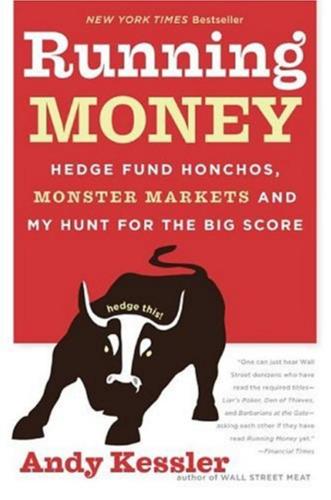
Running Money
by
Andy Kessler
Published 4 Jun 2007
“Well, it’s a tough sector, but I think it is where all the growth comes from in the next decade. But it’s volatile.” “Most people in the room will tell you it’s way too risky.” “Can I ask you a question?” I asked. “Sure.” “Who are all these people?” “Some individuals but mostly family offices.” “What does that mean?” I asked. “Well, there are so many children and grandchildren and cousins in wealthy families that usually some of the ones interested in finance form a family office and manage the family’s wealth collectively. You know, allocate assets between fixed income and private equity, pick managers, that sort of stuff.” “But what kind of families?” I asked. Everybody looked pretty normal, not substantial.
…
See competitive pricing Defense Department, 101, 184 Dell, 111, 206 Dell, Michael, 121, 162 Dickens, Charles, 93 Diesel, Vin, 249 Digital Equipment, 103 digital music distribution, 205–7 digital revolution, 124–28 digital watches, 127–28 Diller, Barry, 247 Doerr, John, 193, 195, 196, 197 DOS (operating system), 278 dot.coms, 209–16, 223–27, 228–29 Douglas Aircraft, 184 Dow Chemical, 236 Dreadnought (warship), 95 Drexel Burnham, 11 Druckenmiller, Stanley, 293 DSL chips, 204, 205 DVD players, 204, 253–55, 257, 259 DVD read/write drives, 81–82, 84 DVDs, 259 eBay, 247 Ebbers, Bernie, 290 Edify, 106 Efficient Market theory, 176 Efland, Greg, 127 Eisner, Michael, 164–65 Elantec, 80–84, 85, 170, 202–8, 247, 248, 263 Index elasticity, 42, 68, 77, 103 computer costs, 58, 121, 126, 128, 183 e-mail, 70 birth of, 187 design transmission by, 252–53, 258–59 Engelbart, Doug, 125, 185, 190, 197, 199, 247, 259, 279 accomplishments of, 117–22 England. See Britain Enron, 290 Ethernet, 139, 190, 191 Exar, 208 exchange rates, 164, 165, 276 Extreme, 140 Fabless Semiconductor Association, 269–70 fabs (fabrication facilities), 91, 129–34, 199, 250, 251 factories. See manufacturing Faggin, Federico, 126 Fairchild Semiconductor, 101–3, 124 family offices, 109–10 Fidelity Investments (Fido), 11, 27, 30, 31 file sharing, 190 Fleet Bank conference (1999), 175–79, 188 Fleet Boston Robertson Stephens conference (2000), 217–20, 225 flying shuttle, 64 Forbes, 40, 195 Forbes ASAP, 195 Foundry, 140 Francis, Stu, 44 Full Service Network, 194 Fulton, Robert, 92 Index Gates, Bill, 121, 125, 126, 127, 258 GDP, 237, 274 GDS-II files, 252, 254 General Electric, 274 General Magic, 97–98, 142 General Motors, 172, 241, 243, 267, 269, 277 genomic sorting, 296 GeoCities, 213 George III, King, 51, 56 Ghana, 280, 281–83, 294, 295 gigabit companies, 139–40 Gilder, George, 183 Global Crossing, 183, 187, 290 GM.
…
See venture capitalists venture capitalists, 130, 138, 139, 144–45, 194, 197–98, 201 VentureStar, 3 Verity, 97 Versant, 60–63, 96 Vietnam, 281 Visigenic, 106 Vonderschmitt, Bernie, 129–31 voodoo economics, 276 Wall Street Journal, 216, 259 Wal-Mart, 78, 255 WANS, 188, 199 Warner Brothers, 71 warships, 95 watches, digital, 127–28 waterfalls (big-time trends), 73, 77–79, 225, 279, 295 Water Frame, 65 Watt, James, 53–55, 57, 65, 66, 78, 89, 91, 95, 125–26, 190, 268 wealth, 278, 280 creation of, 248, 257, 275–76, 296 family offices and, 109–10 intellectual property and, 263 meaning of, 233–35 weaving, 64–65, 66 Web. See Internet Western Digital, 128 Whitaker Investments, 176 Whitney, Eli, 67 wide area networks, 188, 199 Wilkinson, John, 51–52, 56–57, 78, 101, 268 William Morris Agency, 196 Windows, 197, 247, 259, 274, 276, 277 Winnick, Gary, 183, 187, 290 Winstar, 179 Wintel, 265, 277 wireless technology, 179, 296 worker training, 122 World Bank, 264 WorldCom, 225, 290 Worldtalk, 106 Wozniak, Steve, 128 Wynn, Steve, 50 Xanadu, 118 Xerox PARC (Palo Alto Research Center), 118, 189, 190–91 Xilinx, 130, 131 Yahoo, 92, 93, 136, 143, 223, 247 Yamaichi, 160 Yamamoto, Takatoshi, 154–61 yen-carry trade, 162–65, 168, 292 Z80 home computer, 127 Zilog, 127 Zona, Hank, 131 Zoran, 96 About the Author Andy Kessler is the author of the book that rippled through the financial world, Wall Street Meat: My Narrow Escape from the Stock Market Grinder.
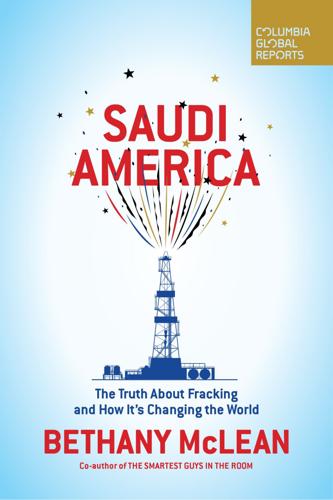
Saudi America: The Truth About Fracking and How It's Changing the World
by
Bethany McLean
Published 10 Sep 2018
For a fracking operation to show growth requires huge investment each year to offset the decline from the previous years’ wells. To Einhorn, this was clearly a vicious circle. Another skeptical investor named Jonathan Tepper, who founded a firm called Variant Perception that provides research to hedge funds and family offices, put together a presentation in which likened the dynamics of fracking to the Red Queen’s race in Alice in Wonderland: “The Red Queen has to run faster and faster in order to keep still where she is.” Because the Red Queen’s race requires so much money, it wouldn’t have been possible without the ultra-low interest rate policy that the Federal Reserve has had for the last decade.
…
In a 2012 research report, Credit Suisse noted that the average recovery of a gas well is three to five times that of a typical oil well. Einhorn’s views were mostly echoed by the work done by a little-known employee-owned firm called SailingStone Capital Partners. Based in San Francisco, SailingStone specializes in natural resources investments for its clients—mainly endowments and family offices—and does exhaustive research, including hiring engineers to evaluate various plays and digging deeply into the numbers. SailingStone had already quietly been raising concerns about the way executives were paid in the shale business. Instead of being paid based on the financial results they produced, they were paid for growing production, regardless of the profits.
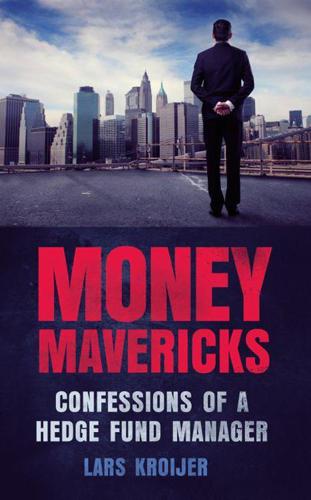
Money Mavericks: Confessions of a Hedge Fund Manager
by
Lars Kroijer
Published 26 Jul 2010
I expected some of the natural scepticism that rich people often display towards ‘friends’ who ask for favours, but soon found that they had much more sophisticated ways of saying no. Nobody actually took offence or suggested that I was only friends with their money. On the contrary, they would try to help me by introducing me to either the main investment person at their family office (if they were very wealthy, with above say $100 million in assets) or, for the slightly less well-off, their private banker. Max Liechtenstein introduced me to LGT; one of the Rockefeller heirs introduced me to their fund, etc. As I followed up with these professional advisers, a common theme emerged.
…
That evening on my way home from work I stopped to buy flowers for Puk to reinforce my commitment to our wedding. I was standing by the cash register with my ‘reduced to clear’ bouquet when Borut, a friend from college, saw me. ‘No wonder you get all the girls,’ he laughed. The race to find investors for $1–2 million meant hitting up the smaller funds of funds and family offices we had met while fund-raising and paying them special attention that many of them were not used to. When an investor with a potential investment of $1–2 million approaches a multi-billion-dollar hedge fund they might get a meeting with marketing person number six, but the George Soros equivalent is unlikely to find time in his schedule.
…
A Chicago-based fund of funds decided to invest $2 million and committed to investing another $1 million the following month if there were also other investors investing more. They liked what we did and that our initial returns had no market correlation. The $2 million meant we could keep going at least another couple of months. The following month we built on the momentum. A UK fund invested $2.5 million, a Kuwaiti family office invested $1 million, and a New York-based fund of funds invested $750,000. With these new investments, our new friends from Chicago kept their commitment and invested a further $1 million. Excellent. From being a $3.5 million hedge fund on 31 January 2003 we went to work on the morning of 1 March running a hedge fund of around $11 million.
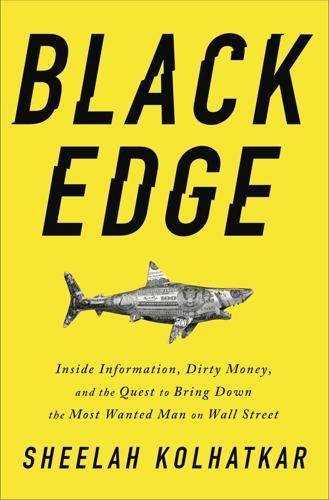
Black Edge: Inside Information, Dirty Money, and the Quest to Bring Down the Most Wanted Man on Wall Street
by
Sheelah Kolhatkar
Published 7 Feb 2017
During discussions with Cohen’s lawyers prior to the indictment of SAC, the U.S. Attorney’s Office had made it clear that, in order to resolve the case, Cohen would have to shut his hedge fund down. Cohen would still have close to $10 billion of his own money, however, which he would be allowed to trade and invest as a private family office. The government could not stop him from trading his own money. Until he was convicted, Cohen and his army of traders would still command respect from Wall Street’s major investment banks and have access to the best IPO allocations. The $10 billion number was important to Cohen. It sent a signal to the world that nothing had really changed.
…
“He also has just the right instincts, ones that can’t be learned from reading art history books.” Cohen had been working to cleanse his reputation on Wall Street as well, trying to create distance between himself and the legal scandal. As required by the criminal settlement with his company, Cohen had closed SAC and turned it into a private family office that invested only his own money, close to $10 billion. It was important to him, that $10 billion figure. In April 2014, three months after Martoma was convicted, Cohen changed his firm’s name from SAC Capital Advisors to Point72 Asset Management, a reference to its address at 72 Cummings Point Road in Stamford.
…
The agency wanted to bar him from the securities industry for life, but Cohen was fighting it. He hired the celebrity defense lawyer David Boies to join the legal team working on the SEC case. He told friends that he expected to run another hedge fund in the not-too-distant future, something that would likely be impossible if the SEC won its case. In the meantime, Cohen’s “family office” was earning him hundreds of millions of dollars a year. He was still trading billions, he was still buying art—eight years and every resource the government could direct at him couldn’t stop him. — Over the course of the three years in which I conducted the reporting for this book, I was in and out of contact with Cohen’s office, attempting to arrange an interview with him.
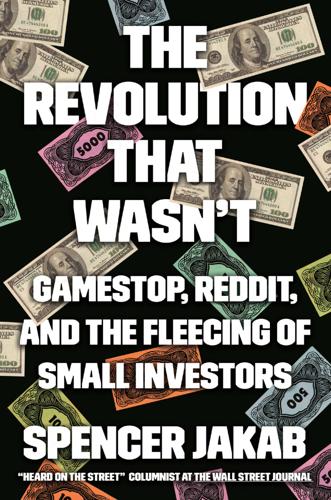
The Revolution That Wasn't: GameStop, Reddit, and the Fleecing of Small Investors
by
Spencer Jakab
Published 1 Feb 2022
Elon talks to people the way that people talk to their friends.” Palihapitiya burst onto young investors’ radar a bit later than Musk when he lambasted hedge fund managers and came out against aid to failing companies on CNBC as the market was plunging in the spring of 2020. “We’re talking about . . . a hedge fund that serves a bunch of billionaire family offices? Who cares?” he said. “They don’t get to summer in the Hamptons? Who cares?” He gained a lot of fans that day. “Through all the pain watching all of our portfolios go up in flames the past few weeks, this motherfucker came in and spoke for all us and really put a smile on my face,” wrote a poster on WallStreetBets at the time.[5] Later, at the height of meme-stock mania, on the day that Robinhood and others restricted purchases of certain stocks, Palihapitiya telegraphed his support for the retail traders who wanted to push GameStop to the moon, tweeting: In moments of uncertainty, when courage and strength are required, you find out who the true corporatist scumbags are.[6] “SPAC Jesus” What is the saying about people who live in glass houses?
…
Only Andrew Left had directly called them out, and both he and Gabe Plotkin, who had wisely stayed silent, had exited their short positions by January 26 with gigantic losses. Right on cue, a hedge fund billionaire stepped up to play the bad guy in a “let them eat cake” moment. Leon Cooperman, the seventy-eight-year-old manager of Omega Family Office, made his comments at lunchtime Thursday to CNBC. “The reason the market is doing what it’s doing is people are sitting at home getting their checks from the government, okay, and this fair share is a bullshit concept,” he said. “It’s just a way of attacking wealthy people.”[5] Dallas Mavericks owner Mark Cuban, a younger and much cooler billionaire and also a frequent guest on CNBC, took the opposite tack, writing in a Wednesday evening tweet that his eleven-year-old was on the forum and made money trading stocks: “got to say I LOVE LOVE what is going on with #wallstreetbets.
…
Morgan Asset Management, 255–56 JPMorgan Chase, 160, 217 K KaloBios, 39 Kearns, Alex, 103–4 Kindleberger, Charles P., 179 Klarman, Seth, 184 Koss, 132, 169, 188, 224 Kruger, Justin, 28 Kynikos Associates, 77 L Ladies’ Home Journal, 150 Lamberton, Cait, 54, 62 Lamont, Owen, 80 Langer, Ellen, 27 Langlois, Shawn, 45 Laufer, Henry, 237 Lay, Kenneth, 85 Lebed, Jonathan, 163 Leder, Michelle, 239 Ledger, Heath, 138 Left, Andrew, 39, 116–26, 148, 191, 214, 217 GameStop and, 120–24, 129, 130, 133, 146 harassment of, 122 WallStreetBets and, 121–23, 126, 129, 130, 133, 136, 238 Lehman Brothers, 80, 117 Lending Tree, 162 Levie, Aaron, 26 Lewis, Michael, 16, 88 Lindzon, Howard, 24, 49, 176 LinkedIn, 239 Livermore, Jesse, 78–79 locating a borrow, 72–73, 80 Loeb, Dan, 111 Lombardi, Vince, 8 Long-Term Capital Management, 260 Loop Capital, 128 Los Angeles Times, 215 loss aversion, myopic, 236 lotteries, 62, 239, 241, 242 Lowenstein, Roger, 260 Lucid Motors, 164 M Mad Money, 254 Madoff, Bernie, 117, 206 MagnifyMoney, 162 Mahoney, Seth, 19, 31, 176–77 Malaysia, 75 Malkiel, Burton, 253 Manias, Panics, and Crashes (Kindleberger), 179 Manning, Peyton, 64 Man Who Solved the Market, The (Zuckerman), 237 Maplelane Capital, 217 March Madness, 57 Marcus, 257 margin calls, 203–5 margin debt, 58–59, 62, 67, 138, 188 Markets Insider, 103 MarketWatch, 45, 180 MassMutual, 87, 131, 171 Mavrck, 142 Mayday, 48–50, 66 McCabe, Caitlin, 128–29 McCormick, Packy, 23, 35, 104, 202 McDonald, Larry, 99 McDonald’s, 154 McHenry, Patrick, 239 McLean, Bethany, 85 Medallion Fund, 237 MedBox, 117 Melvin Capital Management, 6–8, 56, 72, 94–96, 110–12, 114, 119, 121, 123, 128–30, 132, 135, 136, 146, 189, 190, 202, 205, 217, 218, 222, 227 meme stocks, xii–xiv, 5, 7–9, 11, 12, 14, 22, 30, 32–34, 36, 39, 40, 47, 54, 63, 67, 72, 73, 76, 100, 108, 123, 125, 127, 129, 132–33, 135, 137–40, 146, 147, 153–55, 157, 159, 160, 162, 164, 169, 170, 178, 179, 181, 183, 185, 191, 193, 194, 198–99, 204–5, 208, 219, 220, 222, 227, 229, 230, 237, 238, 240, 246 AMC, 39, 93, 125, 127, 132, 169, 188, 220–21, 224–26 Bed Bath & Beyond, 115, 133, 188 BlackBerry, 93, 115, 133, 169, 178, 188, 224 bot activity and, 165, 166 GameStop, see GameStop, GameStop short squeeze insiders of, 224 Koss, 132, 169, 188, 224 margin debt and, 58 Naked, 132, 188 Nokia, 169, 178, 188 payment for order flow and, 207 Robinhood’s trading restrictions on, 187–89, 194, 195–200, 203, 206 Merton, Robert, 101, 102, 108 Microsoft, 46, 93 Mihm, Stephen, 48 millennials, 21, 26, 27, 56, 71, 88, 142, 143, 148, 162, 242, 246, 255 Minnis, Chad, 126, 157, 242 MoneyWatch, 59 monthly subscription services, 32 Morgan Stanley, 28, 55, 178, 219 Morningstar, 216, 244, 245, 254, 255 Motherboard, 131–32 Motter, John, 215–17, 226 Mudrick, Jason, 220–21 Mudrick Capital Management, 220 Mulligan, Finley, 230 Mulligan, Quinn, 142, 214 Munger, Charlie, 183–84, 241 Murphy, Paul, 78 Musk, Elon, 19, 75, 82–83, 92, 124, 143, 149, 152–53, 155–57, 160, 161, 167, 212, 216 tweets of, x, 60, 82, 83, 124, 144, 152–54, 161, 170 Must Asset Management, 221 mutual funds, 139, 151, 221, 234, 244, 245, 254–56 myopic loss aversion, 236 N Naked Brand, 132, 188 Nasdaq, 60, 92, 98, 104 Nasdaq Whale, 98, 104–6, 108, 109, 227 Nathan, Dan, 192 National Council on Problem Gambling, 31, 57 National Futures Association, 118 Nations, Scott, 99 Nations Indexes, 99 NCAA Basketball, 57 Netflix, x–xi, 15, 50, 98, 133, 208 Netscape, 24 Neumann, Adam, 105 New Yorker, 143 New York Mets, 8, 161 New York Post, 124, 172 New York Stock Exchange, 49 New York University, 20, 82, 177 Nikola, 64 NIO, 120 Nobel Prize, 101, 260 Nokia, 169, 178, 188 nudges, 31–32, 235–36 Nvidia, 98 O Obama, Barack, 13, 38 Ocasio-Cortez, Alexandria, 160, 197 Occupy Wall Street movement, 12, 125 Odean, Terrance, 235, 238, 243 Odey, Crispin, 126 Ohanian, Alexis, 12, 37–38, 125 O’Mara, Margaret, 38, 156, 157 Omega Family Office, 191 O’Neal, Shaquille, 64 Oppenheimer, Robert, 83 options, 34–35, 99–107, 217 call, see call options delta and, 107, 108 losses and quick approval processes for, 103 put, 46, 99, 106, 111–12, 148 Robinhood and, 34–35, 102–4, 106, 108–9 Options Clearing Corporation, 102 P Pagel, Michaela, 235 Palantir Technologies, 120 Palihapitiya, Chamath, 143, 144, 152–53, 155, 157–58, 160, 164, 212, 234, 246, 253 Palm, 84 PalmPilot, 84 Pao, Ellen, 38 Paperwork Crisis, 49 Parker, Sean, 38 payment for order flow, 10, 33, 153, 196, 206–9 Penn National, 57 penny stocks, 60, 120, 133, 166, 167 Permit Capital, 223 Pershing Square Holdings, 56 Pets.com, 90 PetSmart, 89 Pew Research, 71 Physical Impossibility of Death in the Mind of Someone Living, The (Hirst), 7 Piggly Wiggly, 78–79 PiiQ Media, 166 PIMCO, 216 Plotkin, Gabriel, 41, 56, 67, 73, 80, 85, 86, 95–96, 110–12, 114–15, 116, 122, 123, 129, 130, 133, 140, 146, 148, 157, 158, 161, 191, 197, 213–14, 217, 218, 227, 240, 246, 250, 253 at congressional hearing, 6–11 Porsche, 77 Portnoy, Dave, 57, 152–55, 158–59, 161, 181, 188–89, 212 Povilanskas, Kaspar, 195 Pruzan, Jonathan, 219 Psaki, Jen, 192 Public.com, 196, 207, 209 pump and dump, 163 put options, 46, 99, 106, 111–12, 148 Q Qualcomm, 46 R RagingBull, 163 Random Walk Down Wall Street, A (Malkiel), 253 Raskob, John J., 150–52, 154, 156 Raytheon, 153–54 RC Ventures LLC, 114 Reagan, Ronald, 156, 234 Reddit, xi, xii, 11–12, 19, 22, 23, 25, 36–39, 41, 42, 107, 122, 125, 162, 164, 199 founding of, 37–38 Gill’s influence on, 141–42; see also Gill, Keith; WallStreetBets karma on, 47, 141–42 mechanics and demographics of, and GameStop, 37 offensive subreddits on, 38 r/ClassActionRobinHood, 196 r/GMEbagholders, 140 r/investing, ix, 46 r/wallstreetbets, see WallStreetBets Super Bowl ad of, 12 Volkswagen squeeze and, 78 Reddit Revolution, xv, 41, 42, 75, 99, 152, 170, 192, 206, 211, 219, 220, 230, 246, 261 see also GameStop, GameStop short squeeze; WallStreetBets rehypothecation, 80, 92 reinforcement learning, 35 Reminiscences of a Stock Operator (Lefèvre), 78 Renaissance Technologies, 237 retail trading, xiii, xiv, xvi, 4, 7, 9–14, 49, 56–59, 63–64, 66, 67, 81, 98, 140–41, 143, 169–70, 178, 181, 183, 186, 194, 218, 237, 238, 244, 247 retirement accounts and pension funds, 5, 13, 27, 31–32, 41, 69, 76, 77, 81, 171, 182, 234, 235, 245, 252, 255, 256 Rise of the Planet of the Apes, 135–36 RiskReversal Advisors, 192 Ritter, Jay, 63, 65 Roaring Kitty (Gill’s YouTube persona), 2, 18, 45, 48–49, 92, 130, 133, 144, 171, 174–75, 191, 211, 213 Roaring Kitty LLC, 171 Robinhood, xi, xiii, xv, 4–6, 13–14, 19, 22–35, 41–42, 50, 53, 55, 57, 61, 66, 70, 81, 98, 139, 141, 153, 154, 157, 158, 161, 176, 178, 183, 184, 187–90, 193, 194, 195–210, 212–13, 219, 237–38, 243, 245, 246, 259 account transfer fees of, 54 average revenue per user of, 66–67 Buffett on, 240–41 call options and, 97–98 Citadel and, 10, 11 clearinghouse of, 187 commissions and, 49, 50 customer loan write-offs of, 205 daily average revenue trades of, 59 daily deposit requirement of, 205 former regulators hired by, 239–40 founding of, 3, 23–25, 90 funding crisis of, 187–88, 193, 198, 203, 205–6 gamification and, 29–31 Gold accounts, 32, 58, 97, 202 growth of, 25–26, 50 herding events and, 238 Hertz and, 61 hyperactive traders and, 193, 202, 207, 236 initial public offering of, 200–201, 219 Instant accounts, 32 Kearns and, 103–4 lawsuits against, 196 margin loans of, 58–59, 205 median account balances with, 50, 54 options and, 34–35, 102–4, 106, 108–9 payment for order flow and, 10, 33, 196, 206–9 revenue from securities lending, 73 risky behavior encouraged by, 202–3 Robintrack and, 53, 61 SPACs and, 64 stimulus checks and, 56 Super Bowl ad of, 28, 30, 200 technical snafus by, 53–54 Top 100 Fund and, 61 trading restricted by, 187–89, 194, 195–200, 203, 206, 209 valuation of, 49 WallStreetBets and, 22–23 wholesalers and, 33–35, 49, 104, 106 Robin Hood (charitable foundation), 196–97 robo-advisers, xv, 27, 257–58 Betterment, 27, 54, 183, 193, 242, 257, 258, 261 SoFi, 27, 56, 57, 158 Rockefeller, John D., 9 Rodriguez, Alex, 64 Rogers, Will, 163 Rogozinski, Jaime, 23, 39, 46, 50, 53, 55, 70–71, 97, 122, 138, 144, 190, 231 Roper, Barbara, 29–30, 35, 54, 185, 241 Rozanski, Jeffrey, 46 Rukeyser, Louis, 156 Russell 2000 Value Index, 125, 191 S S3 Partners, 76, 81, 130, 133, 170, 217 SAC Capital Advisors, 7, 110 Sanders, Bernie, 65–66, 198 S&P (Standard & Poor’s), 83 S&P Dow Jones Indices, 70, 254 S&P 500, 76 Sanford C.
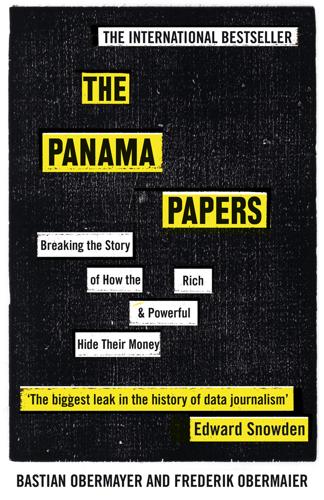
The Panama Papers: Breaking the Story of How the Rich and Powerful Hide Their Money
by
Frederik Obermaier
Published 17 Jun 2016
All perfectly organized by a professional family office. But is it normal to set up one offshore company here, one there, and another over there? In the world of the mega-rich, the answer is evidently: yes. [ ] At some point towards the end of the last century, a parallel universe emerged in which the ‘uber-wealthy’, a term used in America to describe the richest of the rich, park their assets somewhere offshore, simply as a matter of course. The number of very rich and very famous families in our data who have parked part of their assets in shell companies is in three figures. The asset managers of all the family offices, exclusive private banks and large VIP departments of the major banks assist with this.
…
In fact, according to the charity Oxfam, the top 1 per cent of the global population has more wealth than the rest of the world put together. It’s hardly surprising that a booming industry has formed around this 1 per cent, existing solely by adding to this tremendous wealth. Part of this industry is represented in our data, involving almost every country and thousands of companies. It’s the family offices, asset management companies, banks, investment advisers, tax experts, and of course Mossack Fonseca itself. All for the 1 per cent. [ ] One per cent. From that figure, an established political term has evolved to denote the richest 1 per cent of a country. In the US, the term was turned on its head to provide the slogan of a political movement: ‘We are the 99%’.
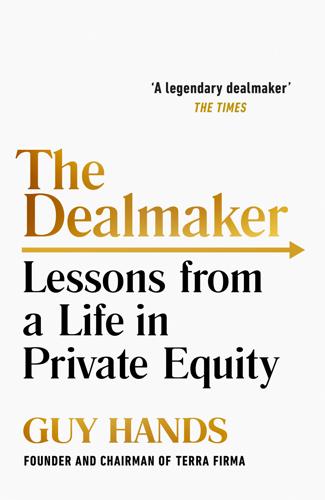
The Dealmaker: Lessons From a Life in Private Equity
by
Guy Hands
Published 4 Nov 2021
Or maybe it’s because I first met Julia on New Year’s Day. For me, as it was for the pagan festivals that predate Christmas, it’s about rebirth. It’s about a clean slate. It’s about a new chance. My aims as 2020 dawned, like the future, looked clear and bright: wind down the blind pool funds, focus on the big Hands Family Office deals (the individual businesses that I had been acquiring since 2012 that were not part of the blind pool funds), work with a small number of highly aligned investors, shrink the firm to a size where I could know everyone and be able to see them in person regularly, and travel around the world, staying close to my management teams and my co-investors, while delegating more and more those parts of the business I didn’t like and wasn’t good at.
…
The realisation that I was never going to raise another blind pool fund freed me up from having to be an asset manager acting on behalf of investors and allowed me to return to doing what I love best: doing great deals. With the full power of Terra Firma behind me – now focused on sourcing, executing, operating and ultimately exiting assets – I became its cornerstone investor, and the Hands Family Office has turned into the chief vehicle for my business ambitions. Not only have I returned to my entrepreneurial roots, I have also shifted my philosophy of business. Transformation for economic value isn’t enough. Each business in which I am involved needs not just to be a leader in its field but should set itself targets that involve making the world a better place.
…
K., 58 Chile, 277 China, 197, 206, 264, 273, 275 Chipstead, Kent, 29 Christmas albums, 171 Chrysalis, 223–4 Churchill Court, Sevenoaks, 139, 321 Churchill, Winston, 53, 57, 58, 139 Cillit Bang, 223 Cirque du Soleil, 133, 207, 258 Citigroup, 93–4, 123–4, 149, 161, 163 collateralised debt obligations (CDOs), 194 EMI and, 172–90, 194–99, 216–19, 222, 224, 226–8, 231–58 litigation against (2009–16), 232–58 losses (2008), 222 mortgage-backed securities (MBSs), 194 Clash, The, 229 Clayton, Dubilier & Rice, 266 Clinton, William ‘Bill’, 84 Clyde & Co, 233 cocaine, 195 Cochran, Eddie, 21 Coldplay, 210–11 Colindale, London, 301 collateralised bond obligations (CBOs), 80–81 collateralised debt obligations (CDOs), 194 Colnbrook, Berkshire, 5 Commonwealth, 5 communism, 25, 34 Conservative Party, 49, 50–59, 132, 295 Consolidated Pastoral Company (CPC), 276, 299 Cookham, Berkshire, 6–9, 12–13 Corzine, Jon, 72, 73, 78, 84, 86 Cosmopolitan, 52 Covid-19 pandemic (2019–21), 305–23 Cowell, Simon, 174 Cowley, Oxford, 51–3, 55, 57 Credit Suisse, 112 Critchley, MacDonald, 9–11, 14 Cummings, Peter, 183 Cyber Room, 121 Daily Mail, 114 Daiwa, 79 Dalio, Ray, 261 Daniel Patrick Moynihan US Courthouse, 248 Dartford Tunnel, 195 Davidson, Chuck, 68–9, 83, 261 de Brosses, Alexis, 311 debating society, 49–50 democracy, 48, 58 Denmark, 264–6 depression, 296–8 Deutsche Annington, xiv Deutsche Bank, 186, 314 diabetes, 32, 146, 255, 257, 291–2, 294, 296, 306 Discipline (Jackson), 207 Disney, 71 Disneyland Paris, 133 distressed loans, 129–30 Dixon, Denelle, 247–8, 249 ‘Dog Eat Dog’ (AC/DC), 167 Dolenz, Micky, 39 dot-com crash (2000), 193 Dowler, Andrew, 135, 220 Drake Passage, 277 Drogba, Didier, 182 drugs, 195–6, 203 Dubai Aerospace Enterprise, 159 Durban, South Africa, 3 dyslexia, xi, 8–11, 16, 39, 66, 97, 145, 239, 247 dyspraxia, 11 Eagles (band), 125 Easterbrook, Steve, 265 EBITDA, 300 Economist, The, 65 Edscha, 215 educational projects, 263 Eighth Wonder, 259 Elizabeth II, Queen, 185 EMI, xi, 39, 166, 169–90, 193–212, 216–28, 231–2, 267–8, 274, 284 Beatles renegotiation (2005–7), 207–9 Black Hands Gang, 196, 198 books, 197 business plan speech (2008), 219–22 CEO, 198, 206, 212, 217, 218 Citigroup and, 172–90, 194–90, 216–19, 222, 224, 226–8, 231–58 diversity, 199 ‘fruit and flowers’, 195–6 Jackson departure (2007), 206–7 job cuts (2008), 219–22 Project Blackjack, 219 Project Poker, 219 Radiohead departure (2007), 204 Rolling Stones departure (2008), 205–6 Spotify stake, 203 Stone departure (2009), 207 encyclopaedia selling, 36, 51 Engage Britain, 319–23 Escape The Fate, ix ESG, 324–5 Essex House hotel, New York, 248, 251 Eton College, Berkshire, 45, 54, 57, 150–51 Euratom, 78 European Union (EU), 54, 78 EverPower, 276, 285 FA Cup, 182 Fahnestock & Co, 170 Falconer, Charlie, Baron, 134, 135–6 family life, 87, 226, 257–8, 262, 277–9, 292, 294, 325 Farmers pub, Sevenoaks, 26 Farrant, David, 200 Fiji, 156 Financial Conduct Authority (FCA), 274 financial crisis (2007–8), 181, 186, 188, 193–4, 215, 235 Financial Security Assurance (FSA), 81–2 Finland, 264–6, 312, 314 fishing, 166 fixed income sales, 66, 67, 68, 72, 76, 85 Fleischer, Mort, 86–7 Food Folk, 283, 300, 309 football, 182, 289 Foster’s, 100, 107 Four Seasons Health Care, 268–70, 276, 281, 284, 295, 299 Fowey, Cornwall, xi Fox’s Biscuits, 220 France, 71 Franchise Finance Corporation of America (FFCA), 86, 91 Fraunces Tavern, New York, 80 Friedman, Stephen, 82, 86 fugu, 148 Galápagos Islands, 187 ‘Gambler, The’ (Rogers), 115 Garland, Judy, 181 gay marriage, 248 Géczy, Andrew, 266–7, 273, 274, 275, 277, 283, 284, 285, 295–6 Gerbeau, Pierre-Yves, 133 Germany, xiv, 39, 151–4, 264 Gildersleeve, John, 173 Glasgow, Scotland, 278–9 Global Asset Structuring (GAS), 83 Global Equity Opportunities Fund, 188 global financial crisis (2007–8), 181, 186, 188, 193–4, 215, 235 Glyndebourne, East Sussex, 264 goal setting, 261 ‘God Save the Queen’ (Sex Pistols), xi GOL Aerolineas, 157–8 Goldman Sachs, xii, 61, 65–88, 95, 102, 110, 117, 118, 128, 145, 261 Big Bang (1986), 77 computers, use of, 73–4 Euratom trade, 78 Eurobond desk, 76, 177 FFCA and, 86, 91 Global Asset Structuring, 83 Global Equity Opportunities Fund, 188 Japanese trade, 79–80 junk bonds, 79–81 Phoenix deal and, 107 Saks Fifth Avenue trade, 81–3 securitisation, 80–81, 83–6, 91, 98, 104, 120, 240, 313 tax avoidance, 69 Terra Firma Fund VI, 275 Tokyo office, 72–3 Goodfella’s pizzas, 220 Goodman, Julia, 315 Google, 198 Gore, Albert ‘Al’, 248 Gorillaz, 211 Govia, 108 Grabiner, Anthony, Baron, 138, 255, 257 Graham, Benjamin, 16 Grand Canyon, Arizona, 258 Grand Metropolitan, 100, 107, 121 great credit crash (2008), 181, 186, 188, 193–4, 235 Greater London Authority, 132 greed, 69, 261 Green, Damian, 59 Green, Philip, 174, 183 Greenhill, 177, 181, 189 grief, 325 group development, stages of, 95–6, 108, 112 Guardian, 113, 114, 117 Guernsey, 81, 180, 183, 233, 241, 246–7, 253, 262–3, 281, 291, 301 Covid-19 pandemic (2020–21), 305 Pea Stacks, 325–6 Terra Firma in, 225–6 Gulf War (1990–91), 82–3 Guy’s Hospital, London, 9 H/2 Capital, 270, 281 Hague, William, 55–7 Halloween, 246 Hambros, 109–10 Hamilton (Miranda), 3 Hand Picked Hotels, 103–4, 139, 218, 300–301, 306, 316–19 Hands, Alison, 8, 28, 47, 49 Hands, Chris, 3–6, 18–19 Hands, Julia, 31, 39–40, 43, 44, 46–7, 49, 51, 77, 87, 95, 118, 145, 169, 279, 293–4 Antarctica trip (2016), 277–8 business plan (1994), 85 Churchill Court property, 139 Citigroup litigation (2009–16), 235, 246 educational projects, 263 Guardian article (1998), 117 Guernsey move and, 226, 254, 262, 281, 289, 293 Halloween party (2010), 246 Hand Picked Hotels, 103–4, 139, 300–301, 306, 316–19 Mauna Kea property, 227 mother’s death (2016), 254, 257, 277 Pimlico property, 169 stroke (2018), 290 Tokyo transfer plan (1988), 84 tree-planting programmes, 263 wedding (1984), 72 Hands, Philip, 11, 49 Hands, Sally, 3–6, 206 Hands Family Office, 301, 324 Hanse Explorer, 278 Harman, 215 Harrison, Patricia, 208 Harrods, London, 39, 105 Harrow School, Middlesex, 45 Harry Potter franchise, 45 Havens, John, 226, 227, 232 ‘Having It All’ (Eighth Wonder), 259 Hawaii, United States, 157, 166, 190, 227, 305, 307 Hawaiian Airlines, 157 Hawaiian Telecom, 215 Heath, Edward, 54 ‘Help!’
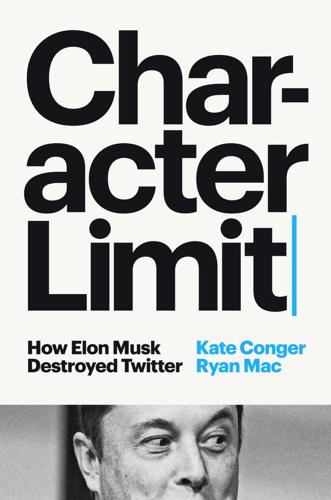
Character Limit: How Elon Musk Destroyed Twitter
by
Kate Conger
and
Ryan Mac
Published 17 Sep 2024
Birchall graduated from Brigham Young University in 1999, and a decade later donated to oppose a 2008 California ballot measure to legalize same-sex marriage. It was at Morgan Stanley, which he joined in 2010 after being fired from Merrill Lynch following a ten-year stint as a private wealth manager, that he first met Musk. The billionaire hired him from the bank in 2016, appointing him head of Excession LLC, his family office, named for an Iain M. Banks science fiction novel. Birchall catered to Musk’s every financial need, pledging himself to his boss’s every cause to gain an unprecedented level of trust. Birchall set out on his assignment to prove Unsworth was a creep. He paid $52,000 to someone he thought was a private investigator.
…
Dorsey quickly shared the board’s decision with Musk. “I heard good things are happening,” he texted. As Musk prepared to fly out of Berlin, Lane Fox scrambled to get the necessary paperwork in front of him. The sooner he signed, the better. Musk connected Lane Fox to Birchall and asked the head of his family office to deal with the “important paperwork” needed for him to join Twitter’s board. But when the documents came through, Musk wasn’t particularly happy with the arrangement. The agreement Lane Fox sent him capped the amount of shares he could buy and forbade him from making critical public statements about the company and its leaders.
…
If Musk wanted out, they would have to formally tell the SEC. And they would have to disclose his apparent overture to buy the company. “Acknowledging your text with Parag yesterday that you are declining to join the board. This will be reflected in our 8-K tomorrow. I’ve asked our team to share a draft with your family office today,” Taylor wrote to Musk, using a term for an SEC financial filing that Twitter was obligated to share with the public whenever major changes occurred at the company. “I’m looking forward to speaking today.” It took nearly two hours for the billionaire to respond. “Sounds good,” he wrote.
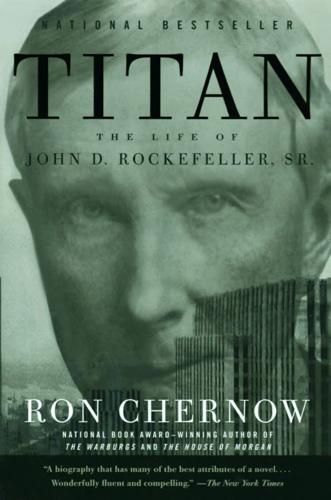
Titan: The Life of John D. Rockefeller, Sr.
by
Ron Chernow
Published 1 Jan 1997
Gates, George Rogers, and a telegrapher, Mrs. Tuttle, who had the dubious honor of opening Rockefeller’s crank mail—and “there was a great deal of it,” said Junior.25 Though he worked in the Standard Oil building, Junior was uninvolved in its management, and he belonged instead to the incipient Rockefeller family office. If his $6,000 annual salary, paid by father, seemed generous, it was a disguised allowance that kept Junior in a state of childlike dependence. Junior turned aside suggestions that he go to law school or treat himself to an around-the-world trip. “I felt that I had no time for either, that if I was going to learn to help Father in the care of his affairs, the sooner my apprenticeship under his guidance began, the better.” 26 Junior was again living at 4 West Fifty-fourth Street and had ample opportunity to sound him out, yet the taciturn Senior provided no clues about what he expected of his son, leaving him in limbo.
…
Around 1912, the once threadbare Minnesota preacher picked up at bargain prices twenty thousand acres of land near Hoffman, North Carolina, and set about growing cotton, corn, and oats and raising livestock on a thousand-acre farm with a peach orchard of seventeen thousand trees. In August 1912, Gates tendered his resignation from the business side of the family office to devote himself solely to the philanthropies. Long reliant upon Gates’s sound judgment, Rockefeller tried to sweet-talk him into staying: “Shall we not, dear friend, continue along life’s pathway together, both of us recognizing the propriety for ourselves of increasing freedom from care, but, nevertheless, both continuing to give what time we wisely and appropriately can, to the large and important questions, old as well as new, which we find ourselves in a position to help to solve?”
…
Give anything to be over it.” 23 In his final bleak college entry, John recorded, “Guess the reason I am glad to get through college is because I have made rather a mess of it; also haven’t really made hardly any friends.”24 After graduating, John traveled around the world before taking up his duties at 26 Broadway, where he placed himself at his father’s disposal. The family office was now an enormous bureaucracy staffed by more than one hundred people, including lawyers, accountants, money managers, and real-estate experts. If Rockefeller had let Junior wander confusedly during his early years at 26 Broadway, Junior handled his son in a much more direct and stifling manner.
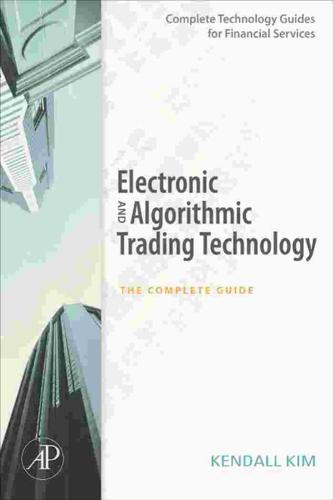
Electronic and Algorithmic Trading Technology: The Complete Guide
by
Kendall Kim
Published 31 May 2007
STN currently has Passport, and SunGard’s BRASS and Broker Direct U2. 15.3 Order Management Systems The source for information provided in this section is Capital Institutional Services, Inc. Fourth Quarter 2005. Advent Moxy Moxy (see www.advent.com) is licensed by bank trust departments, money managers, broker-dealers, wrap sponsors, financial planners, hedge funds, mutual funds, corporations, family offices, and insurance companies. 176 Electronic and Algorithmic Trading Technology The range of assets under management is from $100 million to over $40 billion, with the typical client having between $3 to $5 billion in assets under management. Moxy is currently licensed at over 630 firms and has a presence in the United States, Europe, Canada, Mexico, Australia, and the Far East.
…
Advent has licensed its products to more than 6,000 financial institutions in 36 countries for use by more than 60,000 concurrent users. The company’s common stock is traded on the NASDAQ National Market under the symbol ADVS. Antares Antares (see www.ssctech.com) is marketed and sold to buy-side money managers including hedge funds, family offices, institutional asset managers, proprietary trading desks, short-term (money market) desks, pension funds, and mutual funds. The range of assets under management for an Antares client is from $100 million for some of the smaller hedge funds, and up to $75 billion for the larger asset managers.
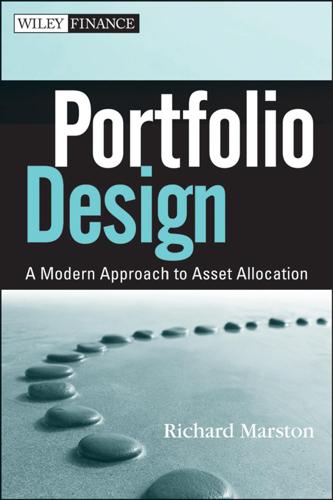
Portfolio Design: A Modern Approach to Asset Allocation
by
R. Marston
Published 29 Mar 2011
In this program, which Charlotte Beyer of the Institute for Private Investors and I founded in 1999, the investors themselves come to Wharton for a week to learn about how to invest their wealth. As of 2010, almost 600 ultra-high net worth investors have taken part in this program. This program has given me perspective from the investor’s side of the advisor-investor relationship. I have also had extensive experience as an advisor to the family offices of ultra-high net worth investors and as a consultant to pension funds and endowments. What I have learned is that investing isn’t easy. But as shown in this book, thoughtful asset allocation provides discipline to the investment process and gives the best chance of building and safeguarding wealth.
…
He has also given investment presentations throughout this country as well as in more than a dozen countries in Europe, Latin America, and Asia. Since 1999, he has directed the Private Wealth Management Program at Wharton, a program for ultra-high net worth investors. He also serves as an advisor to several family offices and investment companies. xvii P1: TIX/b FM P2: c/d QC: e/f JWBT412-Marston T1: g January 6, 2011 10:37 xviii Printer: Courier Westford P1: TIX/b FM P2: c/d QC: e/f JWBT412-Marston T1: g January 6, 2011 10:37 Printer: Courier Westford About the Book his is a book designed to be read by investment advisors.
…
Ibbotson SBBI returns are reported in SBBI Yearbooks (©2010 Morningstar). See Note 5. 3. David Swensen has written two books of interest to investors. Swenson (2005) is written for ordinary investors while Swensen (2009, 2nd edition) describes investment strategies for institutional investors (or family offices). 4. Technically, there have been ten recessions since 1951 because the recession in the early 1980s was actually a double dip downturn with a recession from January 1980 to July 1980 followed by a second recession from July 1981 to November 1982. In Table 1.1, only the second deeper recession is examined.
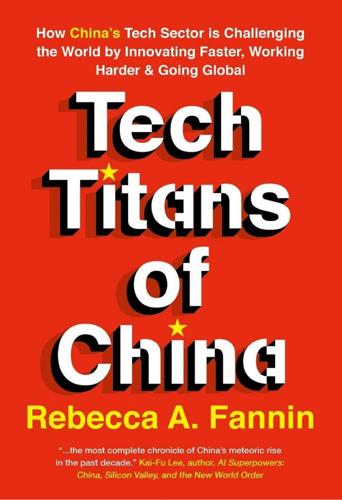
Tech Titans of China: How China's Tech Sector Is Challenging the World by Innovating Faster, Working Harder, and Going Global
by
Rebecca Fannin
Published 2 Sep 2019
•Social commerce: Nifty Pinduoduo lets shoppers buy directly on their mobile from merchandisers, get coupons, win prize drawings, and earn discounts when they put together a group purchase with their connections. Over the past decade, China’s great tech leap forward has been supercharged by an abundance of venture capital often sourced from Western pension funds, endowments, family offices, and foundations. Records keep getting set for funding sizes, IPOs, deals, and investment performance (see chapter five, page 127). China’s ride-hailing leader, Didi Chuxing, has pulled in $21 billion in funding since starting in 2012, and even took over rival Uber in China in 2016 in a groundbreaking $35 billion transaction.34 Several Chinese tech unicorns have scored blockbuster IPOs: Chinese smartphone maker Xiaomi nabbed a market capitalization of $54 billion and food services app Meituan attracted $53 billion, while shopping app Pinduoduo took only three years to go from zero to a $24 billion IPO in New York.
…
Wei Zhou Founder and managing partner, China Creation Ventures More capital is flowing to proven Chinese venture firms from large US pensions such as CalPERS (California Public Employees’ Retirement System) and CalSTRS (California State Teachers Retirement System); sovereign wealth funds, including Singapore’s Temasek and GIC; rich serial entrepreneurs; family offices; fund of funds; and university endowments, including Yale, Princeton, Northwestern, and Duke. Money also has flowed from Chinese government–backed investor groups into Chinese currency RMB funds that can invest directly in Chinese startups and take them public in China, such as the Nasdaq-style ChiNext in Shenzhen and16,17 the new Shanghai Science & Technology Innovation Board for China’s emerging companies to list.
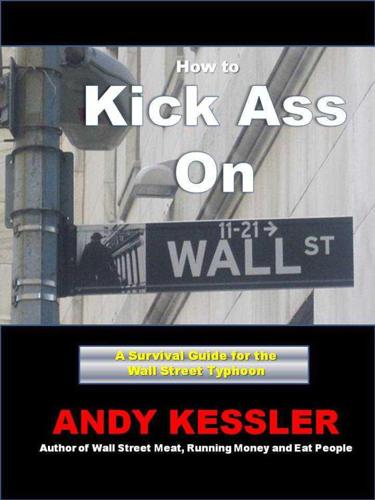
How to Kick Ass on Wall Street
by
Andy Kessler
Published 4 Jun 2012
Another reason to pick the right mentor. I think your goal is to visualize and what the heck, actually draw a picture of how money flows or, as I like to say, sloshes around Wall Street. You need to see how the pieces are interconnected. Start with the asset managers on the buy side, the hedge funds, family offices, endowments, pensions, sovereign wealth funds, thrifts, insurance companies, venture capital firms, private equity firms, financial investors, rich dudes, who is servicing who and how does the money end up in the right hands. Then on the sell side, start connecting the dots between the bulge bracket firms, universal banks, broker dealers, wire houses, wealth platforms and intermediaries.
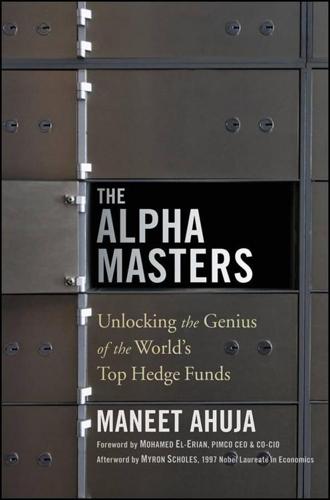
The Alpha Masters: Unlocking the Genius of the World's Top Hedge Funds
by
Maneet Ahuja
,
Myron Scholes
and
Mohamed El-Erian
Published 29 May 2012
Bass Group, then a client of the firm, offered to provide Cowen with virtually all of the capital. After Cowen refused to take all of the Bass capital, the siblings decided to leave the firm and go work for Bass. “Once we got to the Bass organization, we realized it was a pretty unique place. It’s difficult now to fathom, but back then the only people who really had capital were wealthy family offices,” remembers Lasry. The Robert M. Bass Group, later called Keystone, Inc., had been known as a breeding ground for some of the world’s top private equity investors, including David Bonderman, who went on to found Texas Pacific Group (TPG), and Richard Rainwater. When Marc and Sonia joined the Bass Group, they were given a portfolio of $75 million to invest in trade claims, bank debt and senior bonds.
…
Investors appreciate that level of focus on the portfolio, which is part of the reason Avenue has been able to continue to raise new funds over the years. The firm’s investor base has undergone a dramatic evolution from its start in 1995, when its capital came from friends and family. At the end of 2011, public and corporate pension fund capital comprised over 50 percent of the firm’s assets. Foundations, endowments, family offices, and insurance companies made up much of the remainder, with less than one percent drawn from high-net-worth individuals. Charles Spiller, Director of the Pennsylvania Public School Employees Retirement System, started investing with Avenue after an introduction from New York Life in late 2000 and has seen a 10-year track record in their private equity portfolio of between 15 percent and 17 percent.
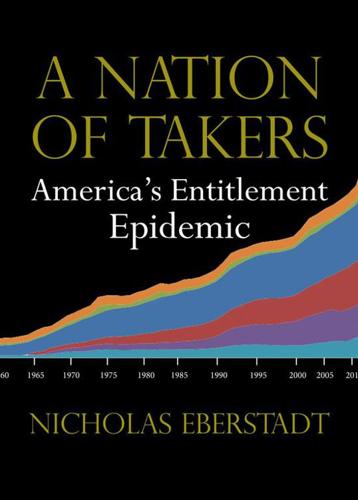
A Nation of Takers: America’s Entitlement Epidemic
by
Nicholas Eberstadt
and
Nick Eberstadt
Published 18 Oct 2012
See http://www.socialsecurity.gov/policy/docs/statcomps/supplement/2000/9g.pdf; more precisely, the 1960 average monthly adult caseload AFDC was 1.73 times as great as the December 1960 total for workers receiving disability benefits. 40. U.S. Department of Health and Human Services, Administration for Children and Families, Office of Family Assistance, TANF: Total Number of Families, Fiscal and Calendar Year 2010 as of 05/16/2011. See http://www.acf.hhs.gov/programs/ofa/data-reports/caseload/2010/2010_family_tan.htm. 41. Derived from U.S. Social Security Administration, Annual Statistical Report on the Social Security Disability Insurance Program, 2011, Disabled Workers, Table 19.
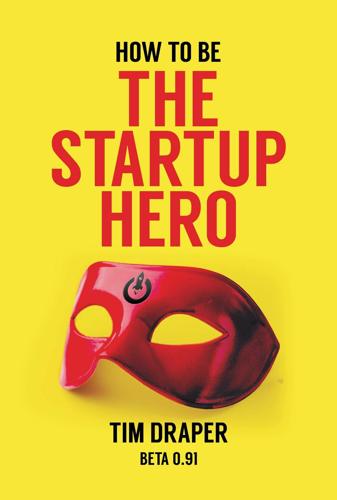
How to Be the Startup Hero: A Guide and Textbook for Entrepreneurs and Aspiring Entrepreneurs
by
Tim Draper
Published 18 Dec 2017
I recruited John Fisher and Larry Kubal to join me. I knew Larry through my sister Becky, who went to Stanford’s Graduate School of Business with him. He had occasionally coinvested with me while I managed the SBIC. Larry agreed to work part time with me because he also was running a family office. Having a wealthy family office connected to us was helpful because we could commit to larger investments than we could make alone, and “wrestle above our weight class.” Larry had a great sense of humor, which would keep us laughing through our successes and our pitfalls. John Fisher was brilliant, ambitious and hardworking.

My Friend Anna: The True Story of a Fake Heiress
by
Rachel Deloache Williams
Published 15 Jul 2019
If they find you guilty, you’re gonna be in jail. They’re not gonna just say, ‘Oh, here’s a fine.’ ” “There is no debtors’ prison,” said Anna, as if stating a fact. “No one is gonna go to jail.” “How are you paying for any hotel?” I asked. “My family office,” Anna said. Kacy interjected to say she’d called the Greenwich and there’d been no reservation under Anna’s name. “My family office did that,” Anna told her. “It’s under their name . . . I dunno.” How could one possibly check into a hotel without knowing the name on the reservation? “So, Anna,” Kacy resumed, “is there any way that we can at least talk to your parents?”
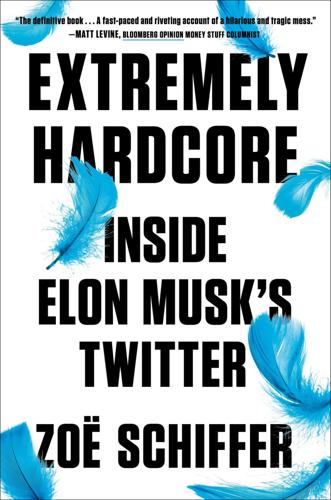
Extremely Hardcore: Inside Elon Musk's Twitter
by
Zoë Schiffer
Published 13 Feb 2024
I thought that was how folks were doing it . . . just wanted to support the effort.” Later he added: “There is *massive* demand to support your effort btw . . . people really want to see you win.” Musk didn’t seem to believe him. He’d talked it over with Jared Birchall, a wealth manager who ran his family office and acted as CEO of Musk’s brain-implant company, Neuralink, and told Calacanis that Birchall was suspicious of his motives. “Morgan Stanley and Jared think you are using our friendship not in a good way,” Musk texted the angel investor. “This makes it seem like I’m desperate. Please stop.” “Only ever want to support you,” Calacanis replied, appearing chastised.
…
It was the principle of Musk asking people to resign for a policy he had just created. If Musk wanted to fire them, so be it. She didn’t want her colleagues to do the CEO’s dirty work for him. “I was acting in the spirit of the old company values, doing what I thought was right,” Yue says. * * * — Later that evening, Jared Birchall, the manager of Musk’s family office, called Roth and asked him to reconsider his resignation. Roth declined. Birchall asked if Roth would talk to Musk, in an informal exit interview. When the CEO got Roth on the phone, Roth was careful to stick to his talking points. He’d left because “rapid and chaotic product development is setting fire to brand equity,” he said.
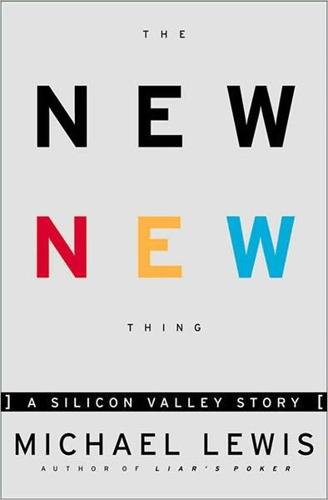
The New New Thing: A Silicon Valley Story
by
Michael Lewis
Published 29 Sep 1999
He disliked stock brokersso much that he ignored their advice to diversify and kept all his wealth in Netscape and Healtheon. He disliked venture capitalists and investment bankers and, in general, the phalanx of financial intermediaries who sat between the creators of wealth and their just desserts. At first he decided that what he really wanted was what rich people have always had: a family office. The rich man's family office is normally a staff of people who do nothing but take care of the rich man's money. Money butlers. Pretty quickly, however, he realized he wanted more than a money butler. He wanted to be able to watch what his money butlers did. He wanted to be able to take in every aspect of his money at a glace, no matter where on earth he happened to be, and at what time.
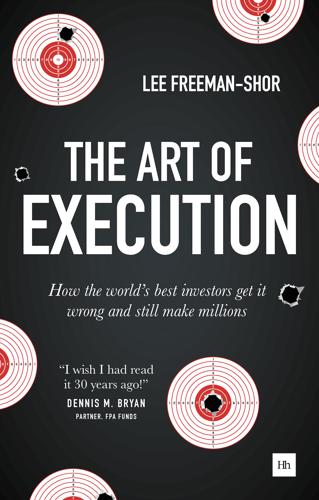
The Art of Execution: How the World's Best Investors Get It Wrong and Still Make Millions
by
Lee Freeman-Shor
Published 8 Sep 2015
, EFA, by Brad Barber and Terrance Odean (1999). 40 ‘Trading is hazardous to your wealth: the common stock investment performance of individual investors’, The Journal of Finance, by Brad Barber and Terrance Odean (2000). 41 Kahneman and Tversky (1979). 42 ‘Focusing on the Forgone: How Value Can Appear So Different to Buyers and Sellers’, Journal of Consumer Research, by Ziv Carmon and Dan Ariely (2000). 43 The Psychology of Finance, by Lars Tvede (1999). 44 More Than You Know, by Michael Mauboussin (2006). 45 Mauboussin (2006). 46 Mean Genes, by Terry Burnham and Jay Phelan (2001). 47 Lynch (2000). 48 Thaler and Johnson (1990). 49 ‘Returns to Buying Winners and Selling Losers: Implications for Stock Market Efficiency’, Journal of Finance, by Narasimhan Jegadeesh and Sheridan Titman (1993). 50 ‘Do Stock Prices Move Too Much to Be Justified by Subsequent Changes in Dividends?’, American Economic Review, by Robert Shiller (1981). 51 Druckenmiller is a very famous investor who achieved compounded returns of ~30% from 1986 to 2010 before announcing he was returning all outside investor capital from his Duquesne fund and forming a family office. 52 Schwager (1994). 53 Those of you with a keen eye will note that this was the same date as for Spirax-Sarco. The reason is simple. That’s when I gave him the money to invest. 54 ‘Best Ideas’, by Randolph Cohen, Christopher Polk, Bernhard Silli (2010). Available at SSRN: ssrn.com/abstract=1364827 55 Active weight, not absolute weight. 56 Cohen, Polk and Silli (2010).
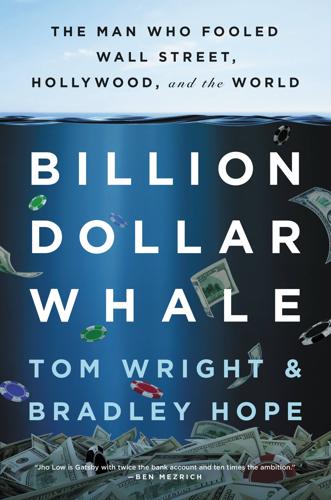
Billion Dollar Whale: The Man Who Fooled Wall Street, Hollywood, and the World
by
Tom Wright
and
Bradley Hope
Published 17 Sep 2018
But his relations with Obaid soon deteriorated, as his young friend seemed paranoid and arrogant after the 1MDB deal, while at the same time failing to deliver the proposed millions. Seemingly intoxicated by the extent of his newfound wealth, Obaid began flying to Saudi Arabia and elsewhere in the Middle East on private jets and, like Low, renting yachts in the south of France. His brother suggested setting up a family office to manage all the money. To some observers, Obaid started to act erratically. He always had been a hypochondriac, complaining of vague illnesses, and after the money started flowing he wrote to the Mayo Clinic in the United States to get a full medical check-up, despite being in his midthirties.
…
The $2.2 billion acquisition of EMI, finalized a month earlier, was led by Sony Music Holdings, the Estate of Michael Jackson, and U.S. private equity giant Blackstone Group. Low’s Jynwel Capital had invested alongside Mubadala, the Abu Dhabi fund run by Khaldoon Al Mubarak. His share, just over $100 million, was by far his most legitimate-looking deal to date. Low had set up Jynwel with his brother, Szen, and told financiers it was his “family office,” investing his grandfather’s billions. His partners in the EMI deal had fallen for it. Low’s share, in truth, was financed by the 1MDB bonds that Goldman had sold for the fund. To hide the origin of the money, Low used an old trick, getting his associate Fat Eric to set up an offshore shell company called Blackstone Asia Real Estate Partners.
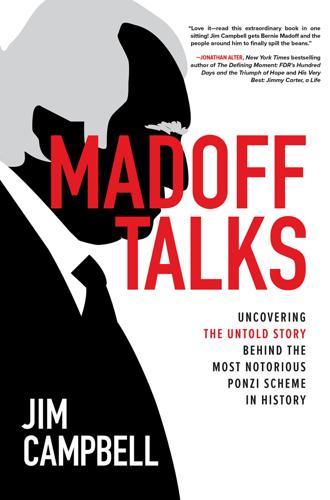
Madoff Talks: Uncovering the Untold Story Behind the Most Notorious Ponzi Scheme in History
by
Jim Campbell
Published 26 Apr 2021
Neil Chelo understood the hedge fund business and would run a sting on Madoff’s biggest feeder fund, while Harry Markopolos would take Frank’s intel and pull together the litany of red flags to nail Madoff, hopefully, before he inflicted massive damage. Frank was trying to gather assets for Rampart to manage: “I was calling around to people back in 1998 and ’99, institutions and super wealthy people in family offices,* who were saying: ‘Ah, Frankie, if you just give me 1 percent a month, but I don’t want to lose any money.’”9 Frank wondered how a steady 1 percent a month was even doable. These money managers were demanding 12 percent investment performance, with improbably consistent (always positive) and smooth (always the 1 percent a month) returns.
…
It specializes in equity derivatives clearing, providing central counterparty clearing and settlement services to 16 exchanges. § The Chicago Board Options Exchange (CBOE) is the largest US options exchange. CBOE offers options on over 2,200 companies, 22 stock indices, and 140 exchange-traded funds. * “Family offices” refers to high net worth investors and money managers who manage their own money. * A “structured note” is a hybrid debt product whose return is linked to the performance of one or more underlying assets or benchmarks, such as derivatives. * Prime brokerage includes a bundled package of services provided by investment banks and securities firms for hedge funds: borrowing facilities; acting as an independent clearing entity and custodian of securities safeguarding customer assets.
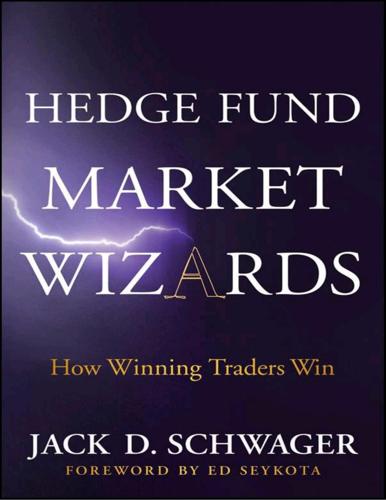
Hedge Fund Market Wizards
by
Jack D. Schwager
Published 24 Apr 2012
Ironically, based on the trades Lewis described, I drew a very different impression about the balance between luck and skill in driving the success of Cornwall Capital (Mai’s firm) than Lewis himself did. Lewis’s colorful narrative of Cornwall as a hedge fund started in a shed on a shoestring budget, trading a small brokerage account, gave no hint of the firm’s institutional context. The reality is a bit duller. Cornwall was originally founded as a family office to diversify the capital of Mai’s father, who ran AEA Investors, a prominent, long-standing private equity firm that was recently rated one of the 10 most consistent performing buyout fund managers in the world. Shortly after he started Cornwall, Mai was joined by Charlie Ledley, a former colleague from a private equity firm at which they had both worked.
…
Although this particular trade was unusually profitable—Cornwall ultimately made about 80 times the initial premium they paid out for subprime default protection—it was entirely representative of the types of trades Cornwall seeks out. Beginning in May 2011, Cornwall switched to a new fund structure open to outside investors. Through the years, Mai had encountered several outstanding trade opportunities that could easily accommodate far more capital than his family office could invest. In a few of those instances, he explored the possibility of raising outside investor money to participate in the trade idea, but decided the lag involved was too long. The catalyst that finally convinced Mai to restructure the fund to accommodate investors was born of the frustration of being unable to participate in a rare pure arbitrage opportunity in 2008 because he lacked sufficient assets.1 Mai decided to open the fund to only a handful of like-minded, sophisticated investors with whom he could be reasonably transparent and share ideas, rather than seeking to maximize assets under management.
…
It is, though in fairness to Michael he had one major constraint in telling our story, which was that he had to leave my family out of it. My father has run one of the oldest leveraged buyout firms in the United States for over 20 years, and before that he ran the investment bank for Lehman Brothers. Cornwall Capital is a family office he and I formed together in 2002. The whole conceit of three dropouts lacking in direction and operating on a shoestring budget made good copy while preserving my family’s privacy, but it didn’t accurately reflect the fact that we had capital and a clear idea of how we wanted to evolve our investment approach.
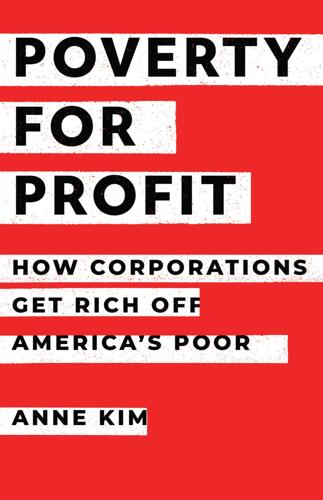
Poverty for Profit
by
Anne Kim
Center on Budget and Policy Priorities, Policy Basics: The Earned Income Tax Credit (Washington, D.C.: Center on Budget and Policy Priorities, 2023). 61. Annual federal spending on TANF has been frozen at $16.5 billion since 1996. “Temporary Assistance for Needy Families,” U.S. Department of Health and Human Services, Administration for Children and Families, Office of Family Assistance, last modified June 29, 2022, https://www.acf.hhs.gov/ofa/programs/temporary-assistance-needy-families-tanf. 62. Interview with author. 63. Interview with author. 64. Michael Best, Chi Chi Wu, and Lauren Saunders, Report: 2021 Tax Season—Higher Costs for Vulnerable Taxpayers During the COVID Economic Crisis (Washington, D.C.: National Consumer Law Center, 2021). 65.
…
“Coffee Impact Report: 2020,” Fair Trade America, September 16, 2021, https://www.fairtradeamerica.org/why-fairtrade/global-impact/reports-trends/coffee-impact-report-2020/. 3. Jens Hainmueller, Michael J. Hiscox, and Sandra Sequeira, “Consumer Demand for Fair Trade: Evidence from a Multistore Field Experiment,” Review of Economics and Statistics 97, no. 2 (May 2015): 242–56. 4. U.S. Department of Health and Human Services, Administration for Children and Families Office of Child Care, “Profiles: Successful Public-Private Partnerships,” https://childcareta.acf.hhs.gov/sites/default/files/public/utah_profile.pdf. 5. Ibid. 6. Anne Kim, “Mayor Ben McAdams of Salt Lake County: Financing Preschool with ‘Social Impact Bonds,’” Republic 3-0.com, March 2014, https://web.archive.org/web/20160320232709/http://republic3-0.com/qa-paying-for-success-in-salt-lake-county/. 7.
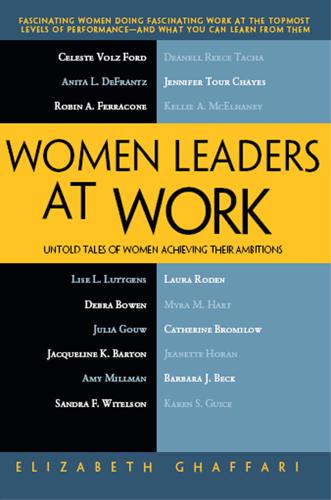
Women Leaders at Work: Untold Tales of Women Achieving Their Ambitions
by
Elizabeth Ghaffari
Published 5 Dec 2011
Those were the people who continued to give me strength throughout my early background and career. I have a wonderful husband, four great step-children, and two “feline” children. My step-kids range in ages from twenty-two to thirty-two years old. My husband, Stewart Smith, manages investments—the family office—for his family. He is very involved in philanthropy and gives generously of his time, skill, and money. Ghaffari: Do you find it easy to balance work and the rest of your life? Ferracone: I don’t see it as work-life balance. I see it as successfully blending work-life priorities. I work extremely hard and a lot of hours.
…
Laura Roden is founder and managing director of VC Privé, LLC, a boutique investment bank that, since its establishment in January 2007, has raised money for high-quality, alternative asset funds such as venture capital funds, hedge funds, and distressed debt funds. Her firm specializes in marketing funds to private investors, including high-net-worth individuals, family offices, foundations, endowments, and independent financial advisors. Ms. Roden holds Series 7, 66, and 79 licenses to sell securities and provide investment advisory services. Previously, Ms. Roden was managing director of The Angels’ Forum, a leading association of individual and corporate early-stage investors, and was president and CEO of the Silicon Valley Association of Startup Entrepreneurs (SVASE), the largest nonprofit in Northern California dedicated to helping technology entrepreneurs.
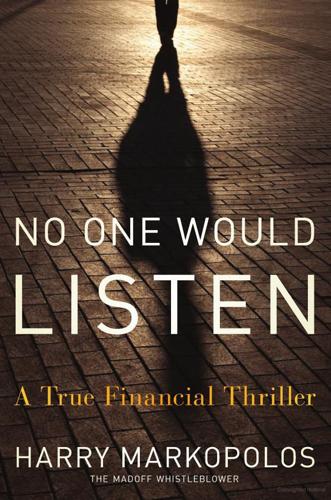
No One Would Listen: A True Financial Thriller
by
Harry Markopolos
Published 1 Mar 2010
Point by point Ocrant confirmed Frank’s claims about Madoff. And just as had happened to us, the more he learned the more intrigued he became. Madoff’s name began slipping into most of his conversations. He was on the phone one afternoon with Hunt Taylor, the former chairman of the Cotton Exchange who was then managing the family office for the Stern family, owners of Hartz Mountain. Whatever the original purpose of the call, eventually Ocrant found himself asking the now-familiar question: “Have you ever heard about Bernie Madoff managing money?” “God,” Taylor responded. “It’s funny you should mention that, because I just came back from a conference, and me and a bunch of guys were sitting around the table talking about that.
…
The acknowledged Madoff feeder funds—New York-based Fairfield Sentry and Tremont Advisors’ Broad Market; Kingate, operated by FIM of London; and Swiss-based Thema—derive all the incentive fees generated by the program’s returns (there are no management fees), provide all the administration and marketing for them, raise the capital and deal with investors, says Madoff. Madoff Securities’ role, he says, is to provide the investment strategy and execute the trades, for which it generates commission revenue. [Madoff Securities also manages money in the program allocated by an unknown number of endowments, wealthy individuals and family offices. While Bernie Madoff refuses to reveal total assets under management, he does not dispute that the figure is in the range of $6 billion to $7 billion.] Madoff compares the firm’s role to a private managed account at a broker-dealer, with the broker-dealer providing investment ideas or strategies and executing the trades and making money off the account by charging commission on each trade.
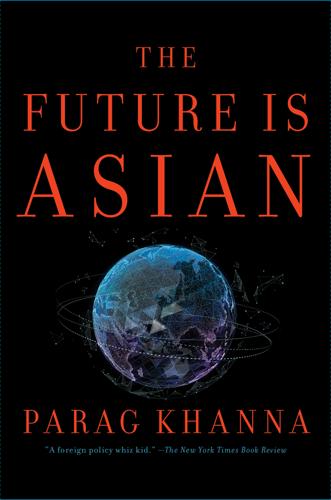
The Future Is Asian
by
Parag Khanna
Published 5 Feb 2019
With 85 percent of Asia’s wealthy being first generation, the next two decades will witness one of the largest wealth transfers in history. Asia will soon have more billionaires and millionaires and a larger middle class than any other region. The wealth management industry is thriving in Asia as hundreds of new family offices set up in key cities, with banks often mere custodians. As one executive of a European bank put it, “In the US, American banks face little competition to service wealthy clients. In Europe, both European and American banks compete for the market. And in Asia, European, American, and Asian banks are all competing for wealthy customers.
…
China now has more than fifty “unicorn” companies with billion dollar–plus valuations (slightly less than the United States), while India has about a dozen and ASEAN just under ten, with many more such pre-IPO companies gathering steam. The global asset management industry is only about 5 percent exposed to Asia, something Western institutional investors—from asset managers and pension funds to family offices—are scrambling to correct as they search for high-yield fixed-income investments such as Asian currencies, sovereign debt, and corporate bonds. Tencent, Alibaba, and Baidu already rank among the largest companies in the world by market cap, but their rapid expansion of customer base and services makes them attractive as core elements of a Western retiree’s portfolio to augment the struggling blue-chip companies such as GE and HP.
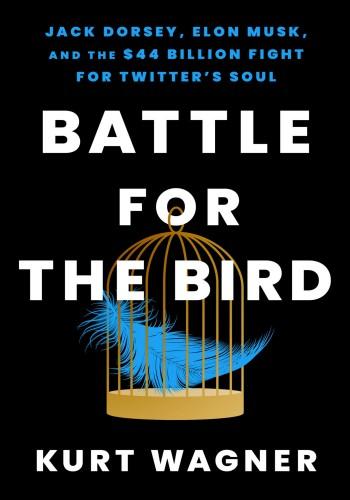
Battle for the Bird: Jack Dorsey, Elon Musk, and the $44 Billion Fight for Twitter's Soul
by
Kurt Wagner
Published 20 Feb 2024
He was particularly worried about Agrawal, who seemed like a nice enough guy, but not the kind of cutthroat leader that Musk felt should be running Twitter. “What Twitter needs is a fire-breathing dragon,” he told his biographer Isaacson after the meeting. “Parag is not that.” Still, Musk looped in Jared Birchall, who helped manage his wealth as the head of his family office, to start the paperwork that would officially make him a Twitter board member. Later that same evening, Musk got another text from Dorsey: “I heard good things are happening.” Musk’s ownership stake in Twitter was made public on April 4 in a securities filing that was published online before the stock market opened.
…
There were several venture capitalists, including David Sacks, who was hosting Musk at his house in San Francisco; Jason Calacanis, another friend and angel investor; and Sriram Krishnan, a former Twitter product executive who had recently joined the venture capital firm Andreessen Horowitz, which invested $400 million in Musk’s Twitter deal. He also called in loyalists from his other companies and business ventures. Jared Birchall, the head of his family office, was there, and so was Alex Spiro, his lawyer who had just spent months fighting Twitter in court. Antonio Gracias, another venture capitalist who’d been on the board of directors at both Tesla and SpaceX, quickly became a powerful presence. Dozens of SpaceX and Tesla engineers, led by Musk’s cousins James and Andrew, also showed up to meet with Twitter engineers and review the company’s code.
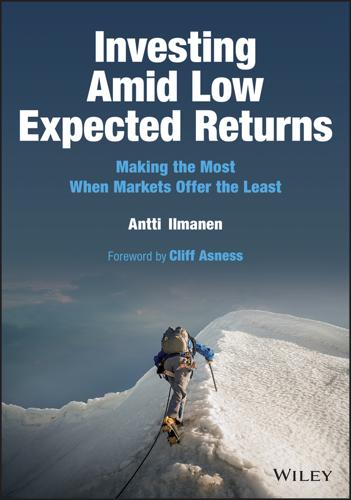
Investing Amid Low Expected Returns: Making the Most When Markets Offer the Least
by
Antti Ilmanen
Published 24 Feb 2022
Another distinction is that a foundation is often established with a pot of money and no further funds may be added to it, whereas endowments can fundraise on an ongoing basis (arguably giving them a longer horizon). A family office is a little more mercenary; the goal is not to give the money away but to keep it in the family and grow it for the benefit of future generations, or at least spend it in a controlled fashion. A sovereign wealth fund is often thought as a pension fund but is perhaps better viewed as a family office, albeit for a very large family; it is supposed to take care of national wealth for the benefit of future generations. Among my three stylized investor types, sovereign wealth funds are closest to endowments.
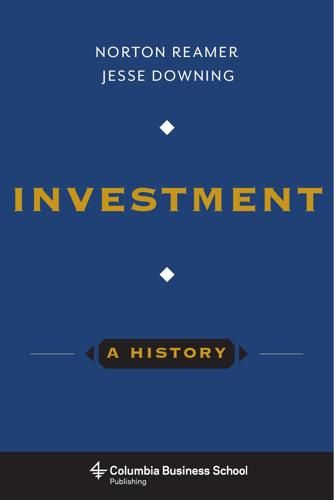
Investment: A History
by
Norton Reamer
and
Jesse Downing
Published 19 Feb 2016
Separate account management is usually highly customized and responsively provided, which means that qualifying clients normally find such investment services attractive and convenient. In the past few decades, a broad system of private wealth management has been created, bringing the features of a family office to a wider, albeit still limited, audience. This system takes into account the complicated needs of wealthy individuals, providing for estate planning and, importantly, keeping an asset base secure. Unlike a dedicated family office, private banking does not involve an entire organization devoted to the wealth of a single individual or family. However, private banking does require investors to have a high level of assets, and it provides personally tailored investment advising and other services that commercial bank branches and retail brokerages do not offer.52 J.
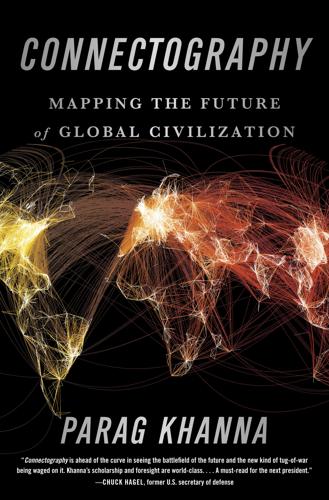
Connectography: Mapping the Future of Global Civilization
by
Parag Khanna
Published 18 Apr 2016
Like the sturdy iron Silk Roads stretching across Eurasia, these vectors form a new “permanent capital” with longer time horizons, greater ability to withstand volatility, and stronger appetite to invest globally. The world’s billionaires, whose total number has doubled since the financial crisis to more than two thousand, are emblematic of this trend. Billionaires are both individuals and instividuals—institutional individuals—that can operate on the scale of companies through their own family offices. Their financial orbits represent the world’s single largest pool of capital at $46 trillion. They are joined by pension funds whose investable capital is over $40 trillion. While European pension portfolios lead the way in infrastructure investments abroad, Asian funds (which represent half of the top twenty) are aggressively joining them in scouring ever more globally for returns to meet their rising domestic obligations, along the way lobbying aggressively for China, India, Nigeria, Turkey, Mexico, and others to raise their quotas for foreign investment in specific sectors such as real estate, telecoms, financial services, and infrastructure.9 Insurance funds represent another $30 trillion in assets that have been historically rooted in national portfolios but today have also become more like capital networks looking for greater exposure to local markets.
…
Furthermore, countries that export lucrative services such as computer programming, back-office research, and medical X-ray consultation get the double bonus of attracting far more foreign investment into these sectors: more investment in, more exports out. The cost of financing technology companies has also plummeted. Venture capitalists and Wall Street banks now coexist in a much larger funding ecosystem alongside family offices, angel investors, and crowd-funding platforms such as Kickstarter, collectively delivering more capital more effectively than cumbersome public markets did in the past. But the new economy needs the old economy: Digital services advance through modernized infrastructure. It is the combination of improved physical infrastructure and e-commerce that makes the supply chain world an increasingly seamless physical-virtual hybrid marketplace of goods, services, payments, and delivery.
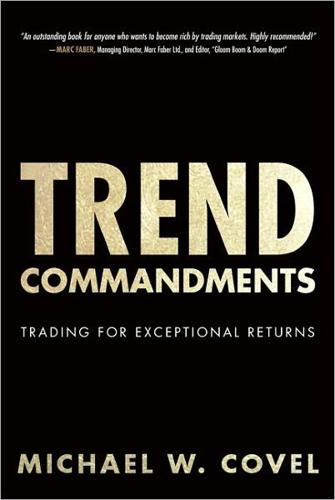
Trend Commandments: Trading for Exceptional Returns
by
Michael W. Covel
Published 14 Jun 2011
The guy who misses the best is going to win.3 One trend trader countered: “If you are going to give a systems trader the label ‘black box’ then all those guys predicting the future, at least have the consistency to call them the crystal ball.”4 Wall Street needs a spin or a narrative to sell, and they all sell similar stories. Pension funds, family offices, fund of funds, and others who allocate money, like to herd. These gatekeepers always move in lockstep. They blindly follow the worst investing schemes, and continually knock sound strategies such as trend following—with terms like black box.5 Why? So many are motivated by what matters least.
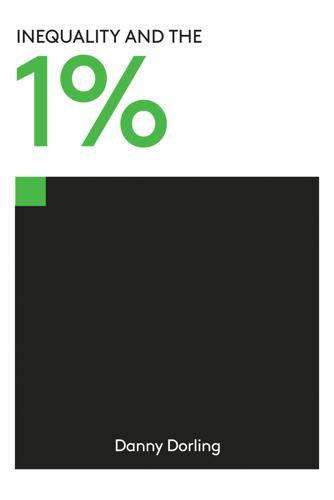
Inequality and the 1%
by
Danny Dorling
Published 6 Oct 2014
According to the New York Times, awaydays for the children of the extremely rich are now arranged that cover ‘topics as various as financial literacy, prenuptial agreements and managing family dynamics [and] are offered by large financial institutions like Citi Private Bank, business schools and organizations for wealthy families like the Family Office Exchange and the Institute for Private Investors’.33 These are events in which wealthy children can get together and feel comfortable with their wealth, and learn how to hold on to their family money – including protecting it from their spouses. Some top private banks now include psychologists as part of their private client banking package.
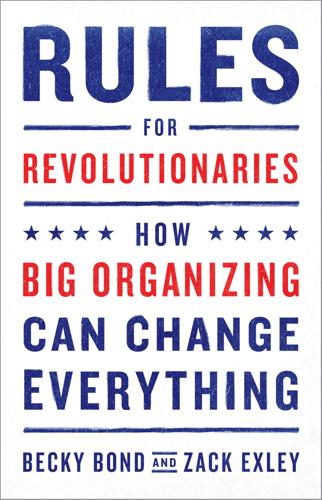
Rules for Revolutionaries: How Big Organizing Can Change Everything
by
Becky Bond
and
Zack Exley
Published 9 Nov 2016
We also see it in the immigration movement (in particular the Dreamers), the movement to defend black lives, and to some degree in movements on the right such as the campaign of Ron Paul in 2004, the rise of the Tea Party, and even some elements of the madness that was the Trump campaign. Big organizing is what leaders do in movements that mobilize millions of people. Not everyone in these movements is a leader, but in big organizing, volunteer leaders emerge by the thousands from every classroom, family, office and work area, neighborhood, and prison block. The movement doesn’t need to awaken or even train them—these leaders emerge ready to make change, and they bring their full selves and life experience to the task of building a movement that works. Our families, workplaces, schools, social networks, and other institutions are all inherently political.
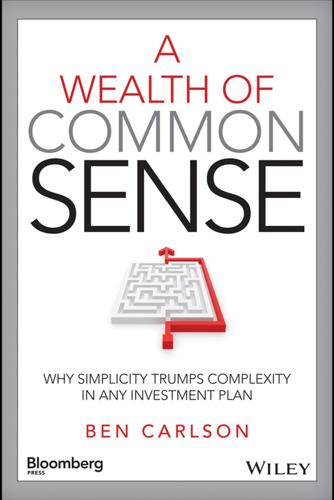
A Wealth of Common Sense: Why Simplicity Trumps Complexity in Any Investment Plan
by
Ben Carlson
Published 14 May 2015
Fifty years ago, the little guy controlled the stock market, as individuals made up more than 90 percent of trading volume on the New York Stock Exchange. Today those roles are reversed, as institutions handle more than 95 percent of all trades in listed stocks while trading almost 100 percent of all other investable securities. Institutional investors such as pension funds, endowments, foundations, sovereign wealth funds, and wealthy family offices have trillions of dollars at their disposal to invest.3 Warren Buffett is probably the most well-known investor to the average guy or gal on the street. Not as many individual investors know who David Swensen is. Swensen is Warren Buffett in the world of institutional money management. He's one of the greatest institutional investors of all time.
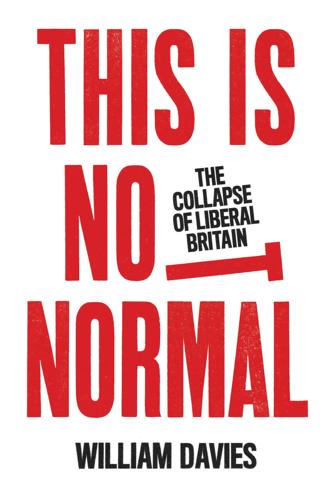
This Is Not Normal: The Collapse of Liberal Britain
by
William Davies
Published 28 Sep 2020
However, it should also be recognised that this class is defined partly by its ability to buy its way out of jurisdictional limits when it needs to. ‘Citizenship services’ mean that passports can be bought; ‘tax efficiency services’ mean that the mega-wealthy can avoid ever having to pay for local social goods; ‘family offices’ exist to manage the international affairs (houses, education, leisure) of super-rich families. So long as these services exist, decisions about national sovereignty and international law have relatively little effect on the freedom of the extremely rich. The extremely wealthy are Brexit-proof.
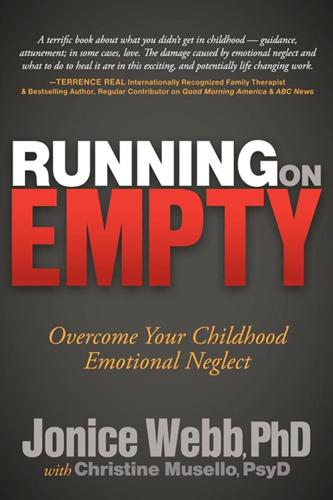
Running on Empty: Overcome Your Childhood Emotional Neglect
by
Jonice Webb
Published 1 Oct 2012
They hold grudges, blame failures on others, banish people to the doghouse, and tantrum when things don’t go their way. They don’t like to be wrong. They like to hear themselves talk. But perhaps their most damaging trait is that they often judge others and find them sadly lacking. They are the Kings and Queens of any family, office or enterprise. You can imagine that when narcissists become parents, they demand perfection from their children or at the very least, no embarrassment. While healthy parents may cringe a little when their child fails to catch the fly ball in the big game, the narcissist parent of that child is angry and feels personally humiliated.
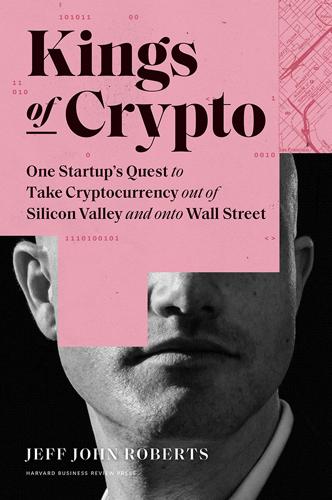
Kings of Crypto: One Startup's Quest to Take Cryptocurrency Out of Silicon Valley and Onto Wall Street
by
Jeff John Roberts
Published 15 Dec 2020
That half-mile of road in Lower Manhattan—famously described as a “street that begins with a graveyard and ends in a river”—and the blocks around it are home to a collection of skyscrapers that control the keys to trillions of dollars of investment capital: hedge funds, pension funds, private equity firms, family offices. Even in 2016, seven years after bitcoin launched, very little of that capital had flowed into the cryptocurrency economy. Sure, crypto was flourishing in the contained community of advocates and believers, but Brian and others believed that a true breakout would arrive only when banks and other giant financial institutions took it seriously.
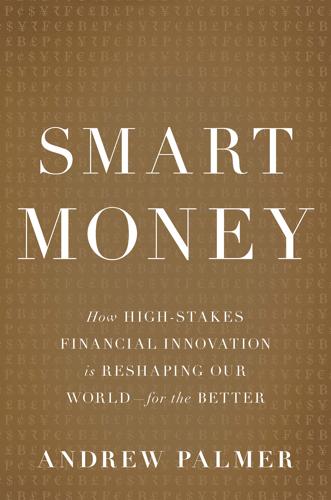
Smart Money: How High-Stakes Financial Innovation Is Reshaping Our WorldÑFor the Better
by
Andrew Palmer
Published 13 Apr 2015
This sort of foolishness is not just restricted to retail investors. MarketInvoice, an electronic platform in London that allows small firms to sell off their outstanding invoices at a discount, also used to run auctions. Its investors were not members of the public, but high-net-worth individuals, family offices, and specialist funds. Even so, it observed exactly the same kind of behavior, with investors determined to invest their allocation of money no matter what and bidding discounts down to minuscule levels. Prosper’s experiment with an auction system has long since ended. It now assesses borrowers itself and puts them into risk bands that come with a preordained interest rate attached.
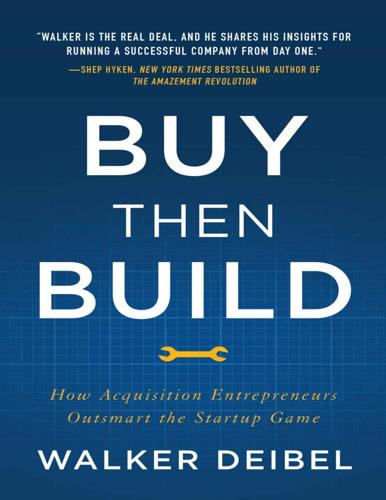
Buy Then Build: How Acquisition Entrepreneurs Outsmart the Startup Game
by
Walker Deibel
Published 19 Oct 2018
The financing of these deals is typically done in one fell swoop, with you bringing a “down payment” or “equity infusion” and the bank providing the balance. In addition, raising money from a bank also means that you get to own 100 percent of the company yourself. If you require investors or other backing for the initial equity infusion, you have options. You can bring on partners, raise from friends and family, or pitch family offices or angel investors who will be attracted to the better economics when compared to startups. There has also been an increasing trend in new search funds. These funds are dedicated to helping acquisition entrepreneurs buy businesses. These funds can also assist in helping you acquire significantly larger companies than you could do on your own, effectively allowing you to stretch well into the middle market (which I’ll define here, as those companies generating between $5 and $100 million in 4 revenue ) or provide additional capital to lower the debt profile.
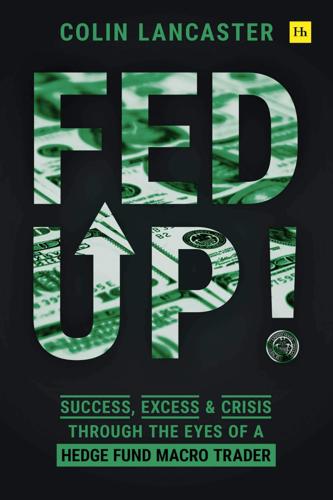
Fed Up!: Success, Excess and Crisis Through the Eyes of a Hedge Fund Macro Trader
by
Colin Lancaster
Published 3 May 2021
We are paid to compound wealth, generate alpha, deliver absolute returns, and make money in all market environments. We definitely have a lot to think about. Particularly since I’ve been in a slump. It has been a couple of years since I outperformed the market, back when I was the top dog. But I’m no longer in the Bigs playing shortstop for the Yankees. Now, I’m a family office guy. But screw all that. We are making money again and t’s time to party. I take the team to our favorite sushi spot near St. James’s. The waitress knows our order. spicy edamame three orders of yellowtail jalapeño two orders of salmon tartar three orders of sashimi salad Kobe beef sliced thin with ponzu sauce two orders of rock shrimp and king crab tempura three orders of black cod and some sushi: eel, toro, shrimp, yellowtail, and softshell crab rolls.
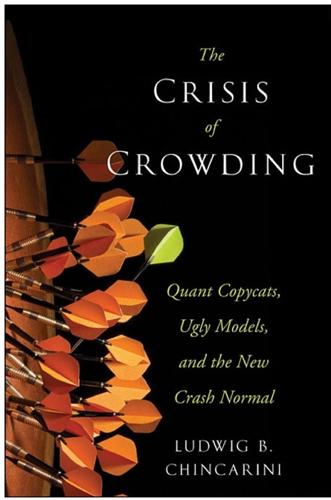
The Crisis of Crowding: Quant Copycats, Ugly Models, and the New Crash Normal
by
Ludwig B. Chincarini
Published 29 Jul 2012
On August 26, Eric Rosenfeld and John Meriwether asked Warren Buffett for money. The next morning, Larry Hilibrand went to Omaha, Nebraska, to talk to Buffett. Buffett declined to invest because he thought the portfolio was too complicated. Myron Scholes called William Sharpe, another Nobel prizewinner in economics, to ask him for money from a family office that Bill Sharpe was advising. Again, LTCM’s trades looked too complicated. Despite the many negative responses, it seemed that LTCM had enough commitments for capital. On the anticipated closing day, August 31, George Soros’s Quantum Fund pulled out its large stake: $500 million. That was it.
…
To classify as a foreign private advisor means to have no place of business in the United States fewer than 15 U.S.-based clients and investors in the funds, have assets under management attributable to U.S. clients of less than $25 million or a higher amount approved by the SEC, and do not advertise themselves to the U.S. public as an investment advisor. Third, advisors to small business companies and family offices are exempt. Finally, advisors to one or more private funds with less than $150 million will not have to register, but will still have to file reports with the SEC. These rules will affect roughly 20% of the hedge fund world in terms of the number of hedge funds and about 97% in terms of assets under management.
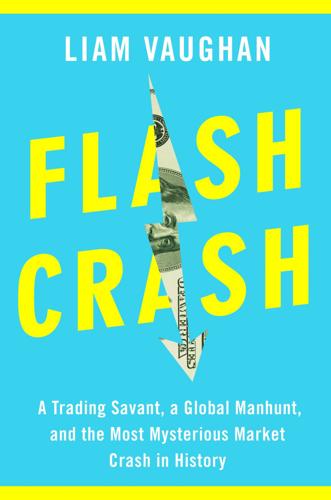
Flash Crash: A Trading Savant, a Global Manhunt, and the Most Mysterious Market Crash in History
by
Liam Vaughan
Published 11 May 2020
Nav erected an impenetrable wall between his home life and his business affairs, and when Daljit, his mother, left the house each morning to work behind the till at a local chemist, or Nachhattar, his father, walked to the doctor’s office to pick up a prescription, they did so with no inkling that their son was a multimillionaire. Money for Nav was an abstraction, and the more of it that flooded in, the more he turned to MacKinnon and Dupont for guidance. By now the pair had taken to describing themselves as Nav’s “family office”—a kind of one-stop shop that handles every aspect of a high-net-worth individual’s financial and investment affairs—and not long after the wind deal was finalized, they introduced him to another opportunity, this one involving a mysterious young Mexican businessman named Jesus. Jesus Alejandro Garcia Alvarez was the owner and CEO of a Zurich-based company called IXE, an Aztec word apparently meaning “one who shows their face and keeps their word.”
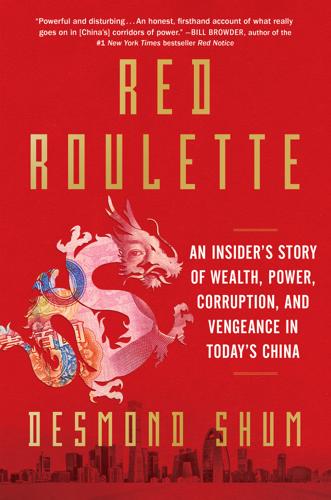
Red Roulette: An Insider's Story of Wealth, Power, Corruption, and Vengeance in Today's China
by
Desmond Shum
Published 6 Sep 2021
I was at the start of my career and this was my earliest lesson in the China trade. It set the tone for my future work and showed me the path forward in China. Theleen was a master at wowing Westerners with his knowledge of Asia. In the fall of 1994, ChinaVest held a meeting with its key investors in Beijing, including representatives from family offices from the Midwest and large investors such as the Ford Foundation and the California Public Employees’ Retirement System. Bob wanted to put on a show and sent me to China to help organize the affair. At the airport, I greeted the guests in three Red Flag limos, China’s clunky version of the Lincoln Continental.
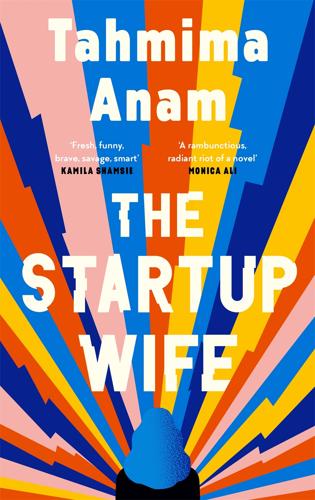
The Startup Wife
by
Tahmima Anam
Published 2 Jun 2021
And how can we come together in our inquiry as communities of belief, human-made groups of people who commit ancient and modern acts that frame the pivotal moments of our brief time on earth, our births, our marriages, our deaths? We at WAI believe that community is about shared beliefs, whatever those may be, and that technology can help us to strengthen those ties, rather than leaving us atomized by the pull of technological progress.” Cyrus’s pitch received two bids: one from a small family office run by the errant son of a Texan oil magnate, and another from Rupert. No question where we chose to get our money from, even though the magnate, Ed Junior Jr., promised us more money on better terms. No, we chose Rupert, who, after a bit of negotiation with our new lawyer, agreed to 25 percent equity and wired the money to our bank account exactly six weeks after Cyrus posted his video.
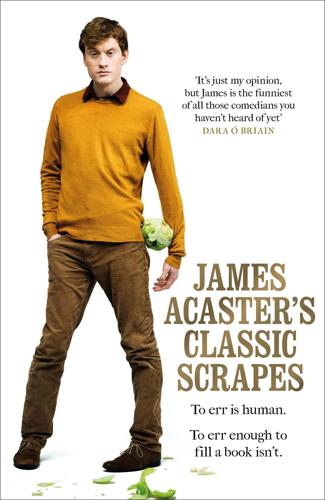
James Acaster's Classic Scrapes - the Hilarious Sunday Times Bestseller
by
James Acaster
Published 4 Dec 2018
So back we went, safe in the knowledge that as Christians they were contractually obliged to show us kindness and mercy and give us shelter for the evening. And that they did. A very kind and very merciful family put us up for the night. They were lovely. I stayed in the spare room and George slept on the pull-out bed in the family office. The next morning we had breakfast with the nice family before leaving. I asked the dad what he did for a living. ‘I’m a GP,’ he replied, while buttering his toast. George pointed at him. ‘I knew you were a doctor,’ he declared confidently, ‘because before I went to sleep last night I was looking through your letter rack in the office and I found a photo of a breast.’
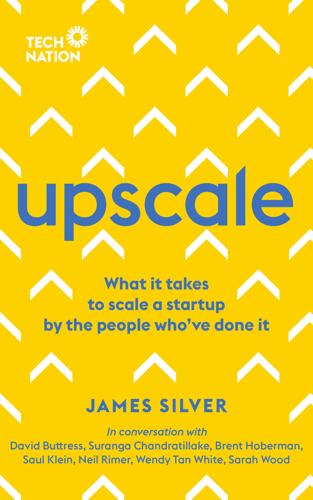
Upscale: What It Takes to Scale a Startup. By the People Who've Done It.
by
James Silver
Published 15 Nov 2018
Yes, of course, VCs investing exorbitant sums of money, large multimillion-dollar sums, into a business - or even individual [investors] doing that - massively turns up the pressure dial. And what many startups perhaps don’t see is that those individuals are under even more pressure from their LPs. Those investors will be under a huge amount of pressure from the pension funds or the institutional investors or the family offices or the fund of funds which have given them $100m, $500m or even a billion dollars. That pressure just kind of trickles down, and it does make honesty exceptionally hard. ‘But you, as a founder, have chosen that route - and that narrative is quite clear now. In a fairly well-developed startup ecosystem, people know that if you’re going to go down that VC path, it’s going to be really hard work.
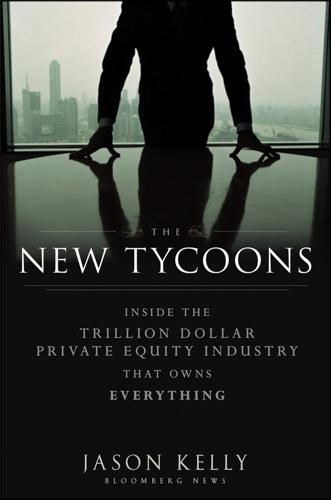
The New Tycoons: Inside the Trillion Dollar Private Equity Industry That Owns Everything
by
Jason Kelly
Published 10 Sep 2012
A 1992 story described Bonderman as “a facile negotiator and deal maker with a finely honed sense of moral outrage and persuasion.”4 His persuasion worked to great effect in Fort Worth. Bonderman helped prevent the freeway project, winning the admiration of Robert Bass, who was mulling a way to turn his inherited fortune into something even bigger, following the model of his older brother, Sid, who’d created a family office of his own, working with an investor named Richard Rainwater. Bonderman joined Robert Bass, eventually becoming the chief operating officer of the Robert M. Bass Group. As Bonderman and Bass began to assemble a team to sniff out deals, Bonderman was introduced to a young investment banker named Jim Coulter.

Rich and Pretty: A Novel
by
Rumaan Alam
Published 6 Jun 2016
Meredith is so deeply within her own agony she doesn’t even have it in her to properly tease/needle/blackmail Lauren about what she’s witnessed. Lauren pokes at the flesh of the papaya with her fork and feels ill. “It’s that time of year,” she says gamely. Meredith looks puzzled. “What time of year?” “Oh, the holidays, you know.” Lauren gestures helplessly. “That time of year. The bad time of year. Family. Office parties, presents, money, Christmas music, tourists, love and joy, all that shit.” “Oh, you mean it’s hard to be alone this time of year.” Meredith nods. “Yeah, I guess that’s true.” In fact, that’s not what she meant. What she meant is what she said, general as it was. The warm air outside means she feels disconnected from the time of year, but the awareness lingers: It is that time of canned love and joy and peace and it’s irritating.
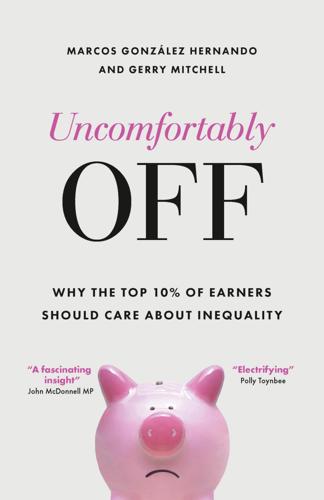
Uncomfortably Off: Why the Top 10% of Earners Should Care About Inequality
by
Marcos González Hernando
and
Gerry Mitchell
Published 23 May 2023
by Peter Schrank Source: © Peter Schrank/The Independent Enabling the wealthy Many in the top 10% have jobs whose purpose is to service, support and protect the wealth of the top 1%. Indeed, whole cottage industries have sprung up to supply the needs and whims of those with the most capital: from furnishers of high-end 131 Uncomfortably Off consumer products to family offices concentrated in London that provide expert services to manage the wealth of some of the highest-net-worth individuals in the world. As we saw in Chapter 3, quite a few high earners also see the public role of the private sector only as paying taxes, increasing value for shareholders and creating jobs.
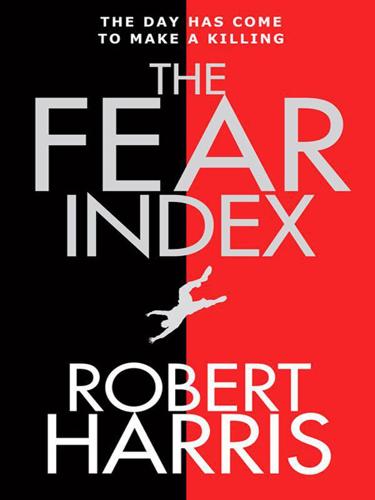
The Fear Index
by
Robert Harris
Published 14 Aug 2011
‘The only thing that keeps me awake at night is the thought of a paternity suit.’ ‘RIGHT,’ SAID QUARRY, when Genoud had gone, ‘let’s talk about this presentation – if you’re still sure you’re up for it?’ ‘I’m up for it.’ ‘Okay, thank God for that. Nine investors – all existing clients as agreed. Four institutions, three ultra-high net worths, two family offices, and a partridge in a pear tree.’ ‘A partridge?’ ‘Okay, not a partridge. There is no partridge, I concede that.’ Quarry was in great high spirits. If he was three parts gambler he was also one part salesman, and it was a while since that crucial part of him had been allowed its head. ‘Ground rules are: first, they have to sign a non-disclosure agreement regarding our proprietary software, and second, they’re each permitted to bring in one designated professional adviser.
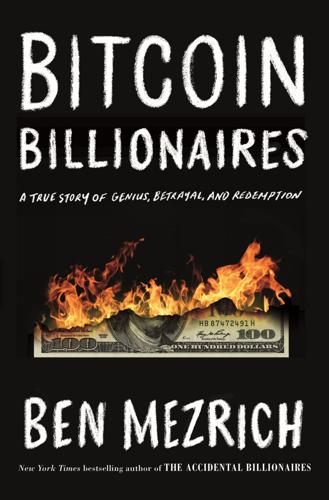
Bitcoin Billionaires: A True Story of Genius, Betrayal, and Redemption
by
Ben Mezrich
Published 20 May 2019
Few people in the world understood the cross-section of the finance, fashion, entertainment, and politics better than Matthew Mellon II. Mellon fit perfectly into Tyler and Cameron’s ongoing Bitcoin tour. Although they usually met with institutions like hedge funds, proprietary trading firms, family offices, and other financial companies, they’d decided to expand their outreach leading up to the Bitcoin 2013 conference to anyone interesting enough, and interested enough, to take their calls. It was a strategy that had landed them in front of some pretty spectacular people. Only days earlier, they’d dined with Richard Branson, the Virgin billionaire, at the Soho Beach House in Miami.
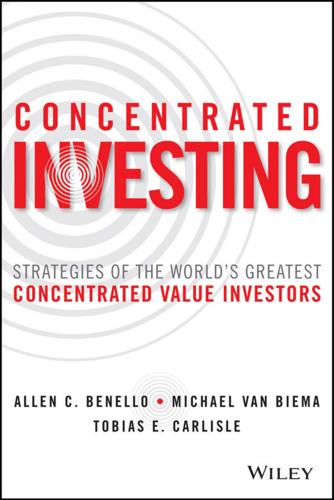
Concentrated Investing
by
Allen C. Benello
Published 7 Dec 2016
The experience showed Greenberg the type of fund manager he wanted to be. Arthur Ross’s Tennis Shoes After five years at Morgan Guaranty, Greenberg saw that he was not going to learn how to manage money by remaining at the firm. He wanted to work for someone he could learn from. He joined the family office of Central National-Gottesman, which was based in New York and run by a littleknown money manager named Arthur Ross. Greenberg thought he was a “brilliant, brilliant investor.”30 Nobody’s ever heard of him because he handled private money and he didn’t get written up in books or get quoted in the newspapers, but he was a really phenomenal investor.
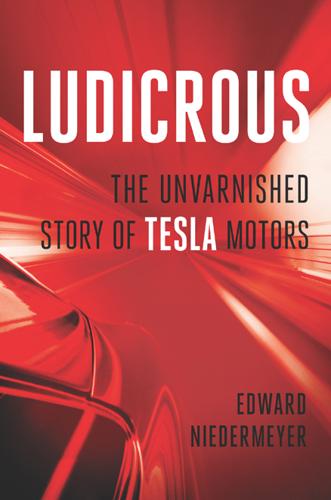
Ludicrous: The Unvarnished Story of Tesla Motors
by
Edward Niedermeyer
Published 14 Sep 2019
In late 2015, an account known as Montana Skeptic began posting critical analyses of Tesla at Seeking Alpha using an etching of Galileo Galilei as an avatar. Unlike Spiegel and Chanos, Montana wasn’t a professional short investor, and he’d been attracted to Tesla because of his fascination with the story rather than through pure financial analysis alone. A former lawyer who now ran a billionaire’s family office, Montana never shorted Tesla professionally but after writing about the company for some time, he eventually opened a small “put” position so that he would have some “skin in the game.” In many of his more than one hundred posts on the subject, he actually warned readers against shorting Tesla for the very reason he was so interested in the company: the almost religious faith of Tesla’s fans and investors made it virtually impossible to say when confidence in the company might be lost.
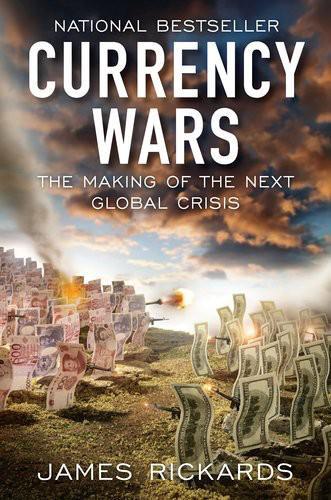
Currency Wars: The Making of the Next Gobal Crisis
by
James Rickards
Published 10 Nov 2011
Participation in currency wars today is no longer confined to the national issuers of currency and their central banks. Involvement extends to multilateral and global institutions such as the IMF, World Bank, Bank for International Settlements and United Nations, as well as private entities such as hedge funds, global corporations and private family offices of the superrich. Whether as speculators, hedgers or manipulators these private institutions have as much influence over the fate of currencies as the nations that issue them. To see that the battle lines are global, not neatly confined to nation-states, one need only consider the oft-told story of the hedge fund run by George Soros that “broke the Bank of England” in 1992 on a massive currency bet.
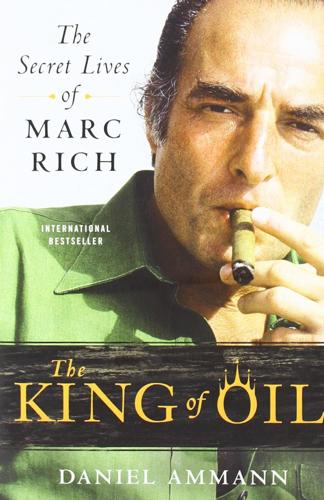
The King of Oil: The Secret Lives of Marc Rich
by
Daniel Ammann
Published 12 Oct 2009
This is primarily—but not solely—connected to Green’s skills as a traffic manager. It was Pinky, as all his acquaintances call him, who was able to make the crucial contacts in Iran. These contacts formed the basis for the company that would become Marc Rich + Co. AG. Iran played such an important role in Green’s career that he named the family office, i.e., a private company managing the family wealth, that he constructed after his retirement, Yeshil Management AG. Yeshil is the Farsi word for green. Pinky Green was indicted in 1983 on exactly the same charges as Marc Rich, and he was pardoned in 2001 by President Bill Clinton at exactly the same time.
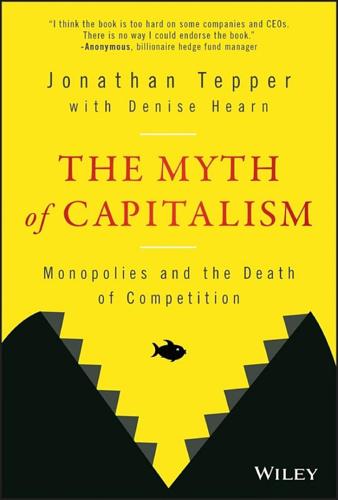
The Myth of Capitalism: Monopolies and the Death of Competition
by
Jonathan Tepper
Published 20 Nov 2018
About the Authors JONATHAN TEPPER is the coauthor of Endgame, a book on the sovereign debt crisis, and Code Red, a book on unconventional monetary policy after the global financial crisis. Jonathan is founder of Variant Perception, a macroeconomic research group that caters to hedge funds, banks, and family offices. Jonathan has worked as an equity analyst at SAC Capital and as a vice president in proprietary trading at Bank of America. Jonathan is a founder of Demotix, a citizen-journalism photo agency. In 2012 he and his partner Turi Munthe sold Demotix to Corbis, which was owned by Bill Gates. He received a BA with highest honors in history and honors in economics from the University of North Carolina at Chapel Hill.
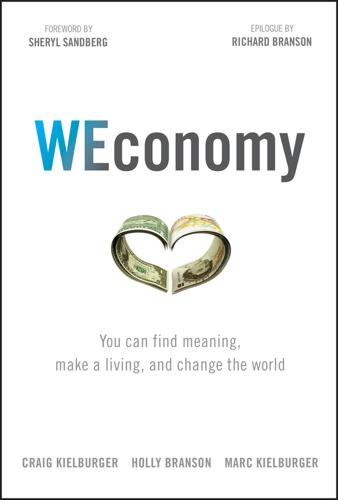
WEconomy: You Can Find Meaning, Make a Living, and Change the World
by
Craig Kielburger
,
Holly Branson
,
Marc Kielburger
,
Sir Richard Branson
and
Sheryl Sandberg
Published 7 Mar 2018
We concentrated on the following key areas: Nature and measurability of impact, and how this might evolve Achievability of the go-to-market strategy, particularly across developed and developing markets Intentions and motivations of our co-investors, particularly the lead investor in this seed funding round It is the final point that's worth dwelling on. “Intentions and motivations of our co-investors” is very close to the fundamental principles we use to invest under at Virgin in the broader sense. As a multifaceted family office with investments in sectors ranging from financial services to space tourism, we have always been very keen to bring in co-investors who align with our goals, but who also bring sector-specific expertise. Infant Mortality in the Developing World: A Tragedy in Numbers According to a World Health Organization (WHO) analysis, an estimated 15 million babies are born prematurely each year (less than 37 completed weeks of gestation), and the number is rising.
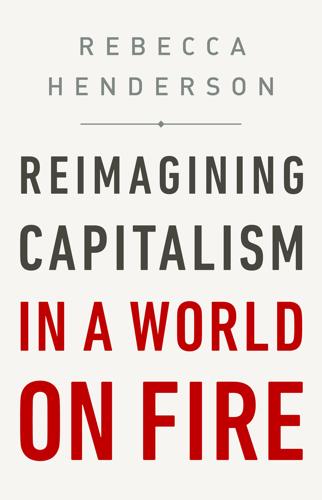
Reimagining Capitalism in a World on Fire
by
Rebecca Henderson
Published 27 Apr 2020
It’s nearly always the people on the ground who know what can be done, not the people in the corner office. If you’re a consultant, push your clients to think about the risks and opportunities that the big problems represent. Be the catalyst for change in how they think about the world. If you’re an accountant, do the same thing. Help rewire the capital markets. Work for an impact investor or a family office or a venture capitalist or a private equity firm that understands that there’s lots of money to be made in saving the world. Ray Rothrock, an old friend who works at Venrock Ventures, helped raise hundreds of millions of dollars to fund a company called Tri Alpha Energy that is developing a fusion-based technology that could deliver commercially competitive baseload electric power.25 Work for an NGO and shame firms into changing—as Greenpeace does, or help them understand how to go about doing it—as organizations like Proforest or Leaders’ Quest do.26 Michael Peck founded 1worker1vote to support worker-owned cooperatives all over the country.
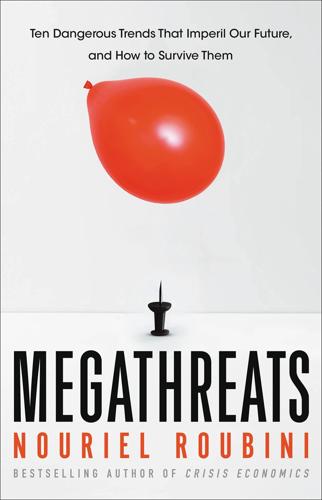
MegaThreats: Ten Dangerous Trends That Imperil Our Future, and How to Survive Them
by
Nouriel Roubini
Published 17 Oct 2022
But given the current high and frothy P/E ratio for the Nasdaq 100, you may want to wait until the next severe recession depresses this index further rather than buying it at inflated levels. The right portfolio mix and components of stocks and bonds can be debated, this much is clear: sovereign wealth funds, pension funds, endowments, foundations, family offices, and individuals following the 60/40 rule should start to think about diversifying their holdings to hedge against rising inflation, negative growth shocks, political and geopolitical, technological, health, and environmental risks. While these risks will disrupt and/or wipe out many individual jobs, firms, and entire industries, any type of individual or institutional investor can start protecting their savings and investments from the coming financial instability and chaos.
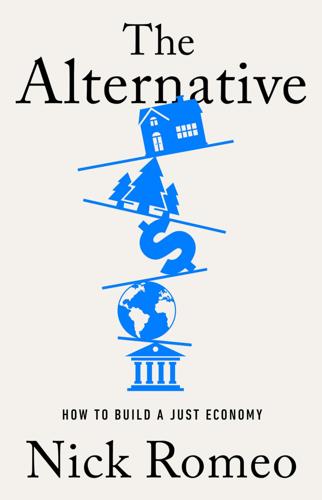
The Alternative: How to Build a Just Economy
by
Nick Romeo
Published 15 Jan 2024
If a large pension plan only makes investments starting at the $100 million level, for example, and its capital cannot be more than 20 percent of a given fund, only funds larger than $500 million will be eligible. Mosaic is currently raising money for a second, larger fund between $200 and $300 million. Its investors include impact funds, family offices, high-net-worth individuals, institutional investors such as pension funds and endowments, and loans through a SBA (Small Business Administration) program that supports funds that invest in small businesses. Their investors have become more familiar with employee ownership and more open to supporting it.
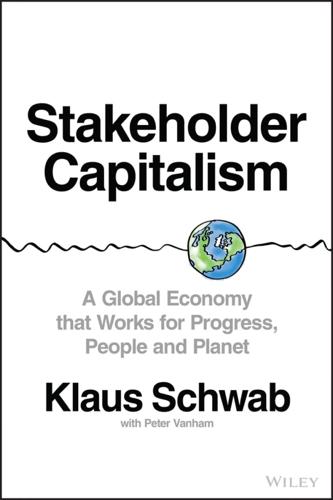
Stakeholder Capitalism: A Global Economy That Works for Progress, People and Planet
by
Klaus Schwab
Published 7 Jan 2021
Its goal was “to democratize information and to become the voice of Millennials and Gen Z in Indonesia.”1 They wanted to solve the information gap that had been happening in Indonesia for decades. It proved more successful than even the Utomo brothers could imagine. Investors from Singapore, New York, Hong Kong, Japan, Korea, and Thailand soon joined in, thanks to the brothers’ connections from Singapore and California, as well as several local Indonesian family offices. Six years after its founding, the company's content platform had grown to one of the leading content platforms in Indonesia, with over 60 million unique monthly users.2 It had over 500 employees and hundreds of thousands of community members. And when we visited, the company had just opened its new marquee space in Jakarta: a skyscraper that held its name, IDN Media HQ.
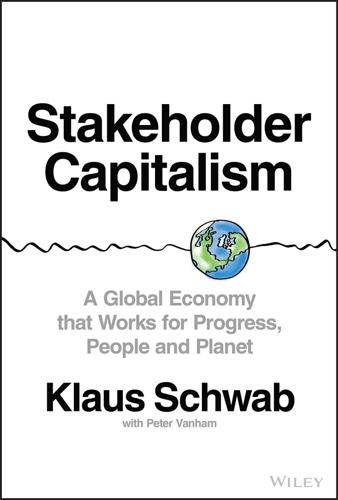
Stakeholder Capitalism: A Global Economy That Works for Progress, People and Planet
by
Klaus Schwab
and
Peter Vanham
Published 27 Jan 2021
Its goal was “to democratize information and to become the voice of Millennials and Gen Z in Indonesia.”1 They wanted to solve the information gap that had been happening in Indonesia for decades. It proved more successful than even the Utomo brothers could imagine. Investors from Singapore, New York, Hong Kong, Japan, Korea, and Thailand soon joined in, thanks to the brothers’ connections from Singapore and California, as well as several local Indonesian family offices. Six years after its founding, the company's content platform had grown to one of the leading content platforms in Indonesia, with over 60 million unique monthly users.2 It had over 500 employees and hundreds of thousands of community members. And when we visited, the company had just opened its new marquee space in Jakarta: a skyscraper that held its name, IDN Media HQ.
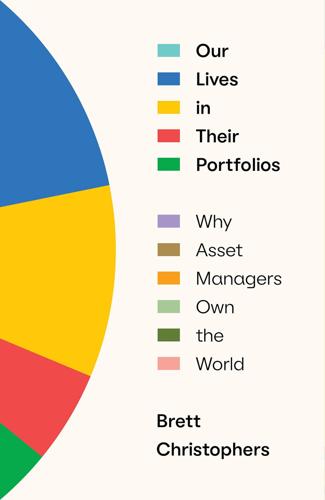
Our Lives in Their Portfolios: Why Asset Managers Own the World
by
Brett Chistophers
Published 25 Apr 2023
In the event, demand from clients exceeded expectations, and when the fund was closed to new investors in December 2019 some $22 billion had been committed to it, making it the largest infrastructure fund ever raised.2 In total, 240 external investors from around the world put money into GIP IV, including public and private pension plans (the New York State Common Retirement Fund committed $500 million, for example, in one of the largest single investments), sovereign wealth funds, and insurance companies. Approximately 70 per cent of these external investors were existing GIP clients, having invested in previous GIP funds. Although high-net-worth individuals and family offices sometimes feature among investors in real-asset funds, the vast bulk of investors, as in the case of GIP IV, are always institutional, and are typically led by pension plans. There is nothing mysterious about this: investing in such funds requires not just large amounts of capital but a willingness to commit it for several years, and pension plans are the world’s largest custodians of capital meeting these two criteria.
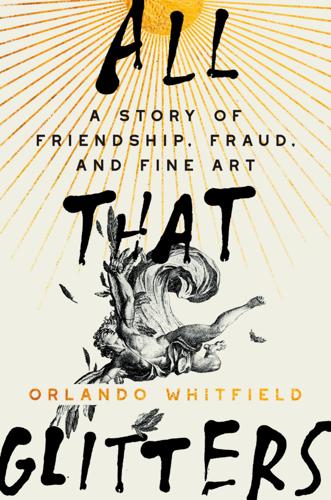
All That Glitters: A Story of Friendship, Fraud, and Fine Art
by
Orlando Whitfield
Published 5 Aug 2024
He continued to make attempts to persuade Schiedemann to restore the painting, even visiting him in his studio to press his case in person, but the conservator stuck to his guns and so the painting remained in Inigo’s storage, its fate uncertain. Then, without warning or precedent, in the autumn of 2018, Steinberg informed Inigo that his business manager, who ran his family office, would be coming to do an audit of the artworks that the fund held. In addition to the damaged Stingel, catalogued as having been bought directly from the artist’s studio, this visit presented a number of other problems. In the inventory there was, for instance, a Félix González-Torres piece, Untitled (Welcome), which Inigo was meant to have bought for the fund but in the end hadn’t.
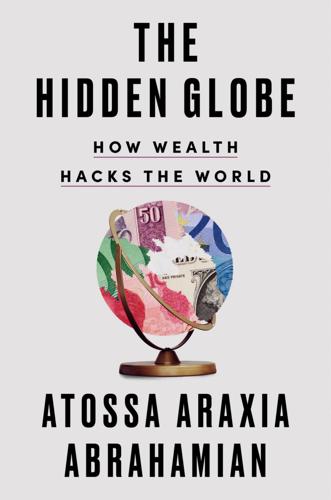
The Hidden Globe: How Wealth Hacks the World
by
Atossa Araxia Abrahamian
Published 7 Oct 2024
After the 2008 financial crisis, when more ordinary assets were generating anemic returns for investors at best, art seemed like a better place to put money than stocks, bonds, or real estate. It became more commonplace to speculate on the works of a contemporary artist as though they were so many stock shares: buy low, sell high. Wealthy people, as well as institutional investors like family offices or funds, could put up a Monet as collateral when borrowing to buy a mansion, a yacht, or a Picasso. And the transactions could be as discreet as they pleased. A clever accountant could easily obscure the real owner of a sculpture behind a labyrinth of shell companies and private trusts, to ensure against its eventual seizure by a reviled ex-spouse or estranged relative.
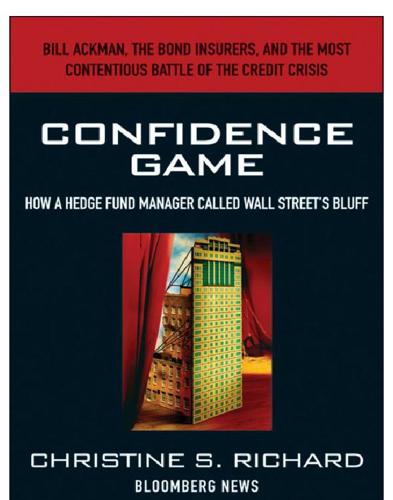
Confidence Game: How a Hedge Fund Manager Called Wall Street's Bluff
by
Christine S. Richard
Published 26 Apr 2010
These were Ackman’s favorite books on investing, and he wanted White to read them all. Ackman made his reputation on Wall Street as an activist investor, a high-profile role that requires a knack for showmanship. But those who know Ackman well say he is an analyst at heart. “He is the smartest analyst I’ve ever met,” says Rafael Mayer, managing director of Khronos LLC, a family office and fund of funds investor, and a friend of Ackman’s. “He looks at something and he just decomposes it.” That process began with questions, lots of questions, including the one Ackman had badgered White with so many times while they were fishing: “Why?” It was also the question Ackman had tried to answer when he looked at the MBIA reinsurance transaction now being investigated by regulators.
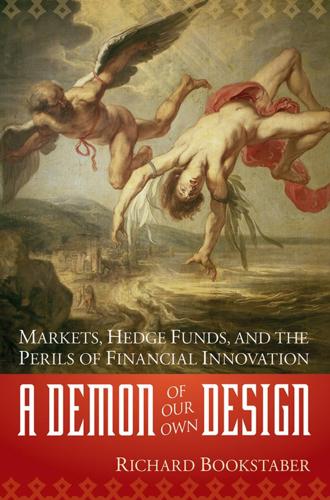
A Demon of Our Own Design: Markets, Hedge Funds, and the Perils of Financial Innovation
by
Richard Bookstaber
Published 5 Apr 2007
In any case, Scribe Reports was a business that was not well suited to marketing while I was at Moore, because Moore was a large and strong 201 ccc_demon_165-206_ch09.qxd 7/13/07 2:44 PM Page 202 A DEMON OF OUR OWN DESIGN competitor for investor dollars for most of my potential clients. I went from Moore to Ziff Brothers Investments, and while there I continued to pursue this venture. ZBI traded only with internal funds—those of the Ziff family, of publishing fame—in what is termed in the investment world a family office; it was never chasing after other hedge funds’ investor dollars. Not long after I joined ZBI I moved from risk management to portfolio management. I redirected the efforts of a small group of PhDs who had been providing quantitative analysis for the traditional portfolio managers toward running an internal portfolio based on quantitative trading models.
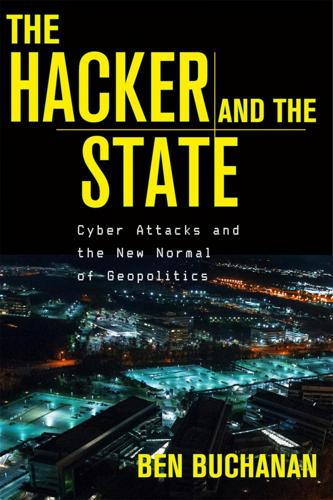
The Hacker and the State: Cyber Attacks and the New Normal of Geopolitics
by
Ben Buchanan
Published 25 Feb 2020
“Russia, if you’re listening,” he crowed at a July 27 press conference, “I hope you’re able to find the thirty thousand emails that are missing,” in obvious reference to the emails that had been selectively deleted from the unsecure private server Clinton used as secretary of state in President Obama’s first term.39 Within five hours, the Russians launched spear-phishing attempts at the Clintons’ family office accounts for what appears to be the first time.40 The second notable group is other political campaigns. While most ignored the leaks, one actively reached out to the GRU for information they might be able to use. Aaron Nevins, a Republican consultant to Florida candidates, contacted Guccifer through Twitter, writing, “Feel free to send any Florida based information.”41 The Russians complied, sending over several gigabytes of voter turnout information and population modeling taken from the DCCC.
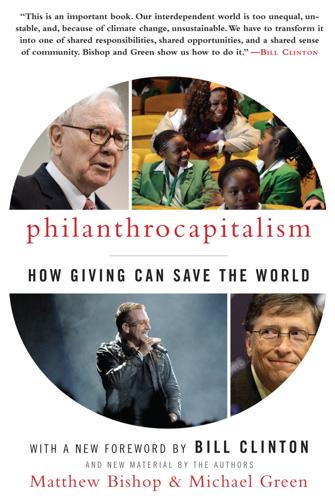
Philanthrocapitalism
by
Matthew Bishop
,
Michael Green
and
Bill Clinton
Published 29 Sep 2008
Some people give to the foundation as its need for the money arises, others endow the foundation up front with a large sum of money that can be given away over many years. Investment income earned on the endowment in future years is also typically exempt from tax. For the seriously wealthy, a foundation can be run out of a family office, along with their other financial affairs, or independently staffed with philanthropy professionals (so-called philanthropoids or philanthrocrats). Most foundations limit themselves to giving out money to support the work of other organizations (charities and other NGOs, hospitals, and so forth), and in the best cases, monitoring how the money is used.
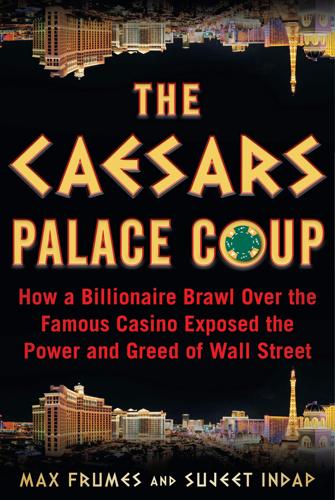
Palace Coup: The Billionaire Brawl Over the Bankrupt Caesars Gaming Empire
by
Sujeet Indap
and
Max Frumes
Published 16 Mar 2021
The steady economy and low interest rates had limited distressed opportunities to fading retailers and volatile energy companies, and the flood of billions into the distressed debt funds left the industry as cutthroat as ever. David Tepper, whose firm, Appaloosa, made a profit approaching $1 billion, on its Caesars position had little to prove on Wall Street. Tepper would buy the Carolina Panthers football team in 2018 for a record-setting $2.3 billion. Appaloosa converted itself into a family office, which essentially managed Tepper’s wealth alone. Andrew Milgram’s Marblegate Asset Management, had even moved into speculating in New York City taxi medallions. Bruce Bennett’s string of novel assignments continued. The Northern California utility, PG&E, filed for bankruptcy in early 2019, hoping to use the court process to sort out $30 billion of liability for wildfires that had killed dozens and destroyed thousands of structures.
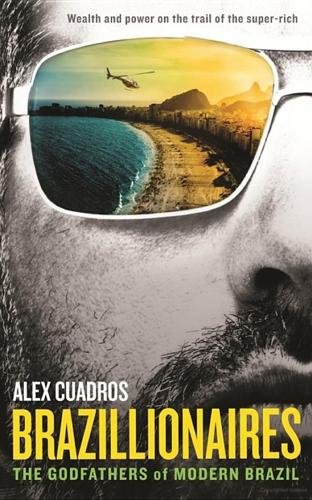
Brazillionaires: The Godfathers of Modern Brazil
by
Alex Cuadros
Published 1 Jun 2016
They put their assets in a variety of exotic structures in a variety of exotic locales—Uruguay, Liechtenstein, the South Pacific island of Niué. The problem becomes taking care of your stuff. With a hundred million dollars, you might have bodyguards and assistants and a permanent staff to care for your homes. With a billion, you need someone like Santiago. With a few billion, you need a family office of your own, a whole company to manage your assets and affairs. Abilio Diniz’s occupies multiple floors of an office building in São Paulo. Sometimes not even that’s enough. I met a former management consultant named Natasha Pearl who tends to the trickier aspects of life for the ultrarich. She knows what numbers to call if you want to buy a racehorse or sell a diamond necklace.
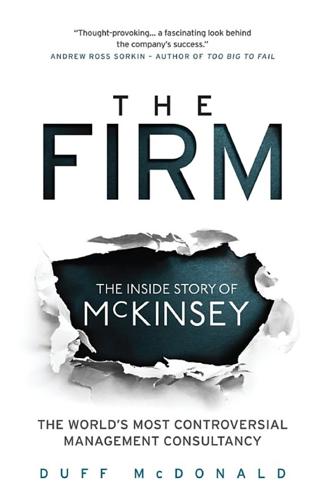
The Firm
by
Duff McDonald
Published 1 Jun 2014
McKinsey partners had always done well; now top directors were pulling down as much as $500,000 a year. That’s the kind of thing that happens when your income growth far outstrips growth in head count. The firm had accumulated so much money that in 1985 it established the McKinsey Investment Office, which operated as a kind of internal family office/fund of funds from that point forth. At a later conference of firm partners in Boca Raton, Marvin Bower asked his partners: “Do you know when you’re making too much money? When you need someone else to manage it for you.” While those in attendance nodded in agreement with the old man, they still wanted to know what their bonuses would be that year.
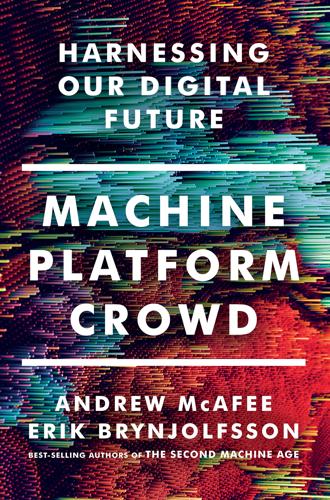
Machine, Platform, Crowd: Harnessing Our Digital Future
by
Andrew McAfee
and
Erik Brynjolfsson
Published 26 Jun 2017
At least one stalwart of the investment community’s core believes enough in Quantopian to trust it with his own money. In July of 2016, Steven Cohen, one of the best-known hedge fund managers of all time, announced that he was making a venture investment in Quantopian and also giving it $250 million from his family office to invest in its crowdsourced portfolio of quant algorithms. Matthew Granade, Cohen’s head of research and venture investment, said that “the scarce resource in quantitative investing is talent, [and] Quantopian has demonstrated an innovative approach to finding that talent.” We find Quantopian fascinating because it illustrates all three of the technology trends that are reshaping the business world.
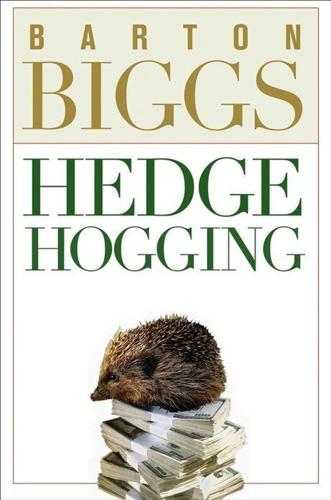
Hedgehogging
by
Barton Biggs
Published 3 Jan 2005
After that, investors can get their money on a quarterly basis. There is also a provision for emergency withdrawals. However, the Swiss make no bones about not liking our first-year lockup. Then there is the rest of the crowd, the amateurs, mostly wealthy individuals and small, wannabe funds of funds. Germans with bulging eurobellies from family offices mingle with bloated Arabs in pale suits and white shirts, their handshakes as cool and clammy as snakeskin. Former investment bankers exchange distinguished lies with portly exdiplomats, permanently deformed by self-importance. Wrecked old Texans with faces like road maps, sour breath, and fitted Hawaiian shirts chatter with fast talking private wealth bankers from Miami with pompadours and slicked back hairdos.
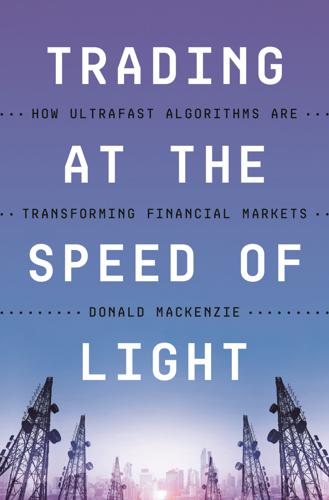
Trading at the Speed of Light: How Ultrafast Algorithms Are Transforming Financial Markets
by
Donald MacKenzie
Published 24 May 2021
New York: HarperCollins. Taylor, Jack. 2015. “The Brit Beating the Forex Flash Boys in Less Time than the Blink of an Eye.” Available at https://www.thetimes.co.uk/article/the-brit-beating-the-forex-flash-boys-in-less-time-than-the-blink-of-an-eye-2bct3mmmnl5, accessed June 10, 2019. Tett, Gillian. 2019. “Family Offices Are Diving into New Markets.” Financial Times, August 2: 11. Thiemann, Matthias. 2014. “In the Shadow of Basel: How Competitive Politics Bred the Crisis.” Review of International Political Economy 21/6: 1203–1239. Thiemann, Matthias, and Jan Lepoutre. 2017. “Stitched on the Edge: Rule Evasion, Embedded Regulators, and the Evolution of Markets.”

Unknown Market Wizards: The Best Traders You've Never Heard Of
by
Jack D. Schwager
Published 2 Nov 2020
As the TickerTags project was nearing completion, I thought I should open a hedge fund because that was what everyone was saying I should do. They looked at my returns and told me that if I could do the same thing on a larger scale, I could have an incredible hedge fund. I would have told you the same thing. The concept was that TickerTags would be the engine for the hedge fund. I spent a year and a half meeting with family offices, and I lined up 23 investors, mostly in the Dallas area. I had commitments for almost $10 million. I spent about $250,000 setting up the fund. Starting a hedge fund seemed really interesting because it was what the other side of the business did, and I was never part of that world. What was your hedge fund called?
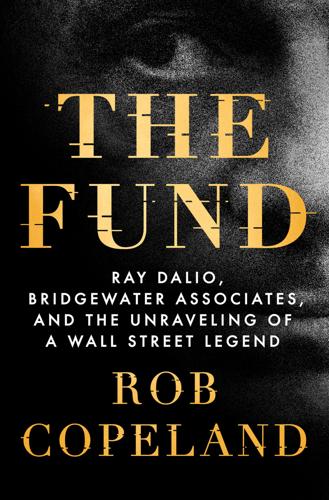
The Fund: Ray Dalio, Bridgewater Associates, and the Unraveling of a Wall Street Legend
by
Rob Copeland
Published 7 Nov 2023
Apparently undeterred, she told friends she still planned to become a billionaire, apparently through cryptocurrency, per a press release she put out announcing her own line of non-fungible tokens, or NFTs, which she compared to a “virtual reality gold mine.” The announcement recast Stefanova as a longtime crypto aficionado who also happened to be CEO of Marto Capital. It quoted her saying, “Marto serves family offices and institutional investors with substantial assets.” The announcement made no mention of prior employment at Bridgewater. * * * DINA POWELL, the subject of Dalio’s ribald wedding-celebration toast, helped find David McCormick a way out of Bridgewater. A longtime political operative, Powell encouraged her husband to run in the 2022 Republican primary for U.S. senator from Pennsylvania, where McCormick grew up.
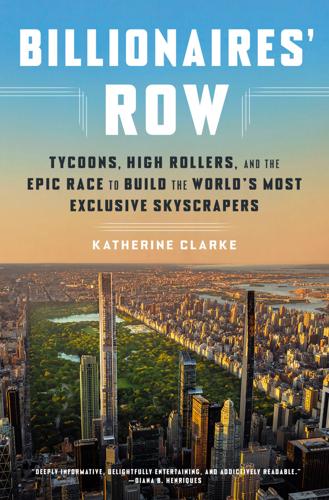
Billionaires' Row: Tycoons, High Rollers, and the Epic Race to Build the World's Most Exclusive Skyscrapers
by
Katherine Clarke
Published 13 Jun 2023
Her lawyers argued that the agreement should be voided and that, given Griffin’s vast fortune, she should be awarded $1 million in monthly expenses, including $300,000 for the use of a private jet, $160,000 for hotels, and $2,000 in stationery costs. Dias Griffin was also a Harvard graduate and had worked at Soros Fund Management, the hedge fund turned family office founded by George Soros, before starting her own firm in 2001, then returning investor capital about a decade later to concentrate on the couple’s charitable foundation. Griffin’s attorneys argued that Dias Griffin had plenty of time to review the proposed prenup weeks before the wedding and that she had consulted her own legal team prior to signing.
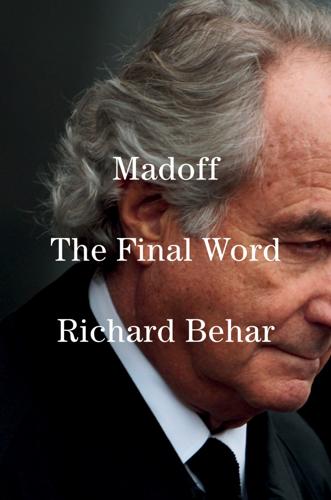
Madoff: The Final Word
by
Richard Behar
Published 9 Jul 2024
Brussels-based lawyer Edouard Fremault is the chief strategy officer at Deminor, a group of companies that helps investors recover funds from all kinds of frauds. They represent thousands of clients who put money into Madoff feeder funds located outside the US—including Luxalpha. “They range from small German savers who lost three thousand euros to large, wealthy Paris-based family offices with tens of millions of losses,” he says. “But ninety-nine percent of them had no clue that someone in the Lipstick building was supposed to be managing their money. These folks genuinely believed that they invested in a UBS, Bank Medici [Sonja Kohn’s Austrian operation], or HSBC products.” Fremault says Madoff was utilized by feeders in what’s known in Europe as the “fund hotel business.”

Alex's Adventures in Numberland
by
Alex Bellos
Published 3 Apr 2011
In the early 1970s he, together with a business partner, started the first ‘market neutral’ derivatives hedge fund, meaning that it avoided any market risk. Since then, Thorp has developed more and more mathematically sophisticated financial products, which has made him extremely rich (for a maths professor, anyway). Although he used to run a well-known hedge fund, he now runs a family office in which he invests only his own money. I met Thorp in September 2008. We were sitting in his office in a high-rise tower in Newport Beach, which looks out over the Pacific Ocean. It was a delicious California day with a pristine blue sky. Thorp is scholarly without being earnest, careful and considered, but also sharp and playful.
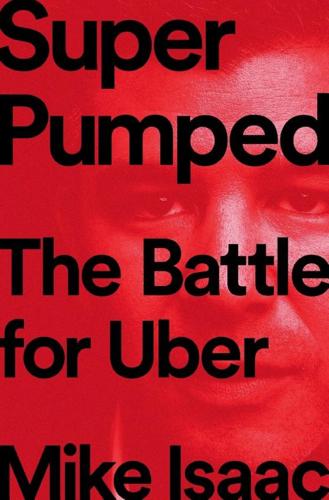
Super Pumped: The Battle for Uber
by
Mike Isaac
Published 2 Sep 2019
Even while relaxing at the bar in the Rosewood—the luxury hotel that has long acted as the social hub of tech money in Palo Alto—they’re likely to be interrupted by an awkward elevator pitch. A venture capitalist’s job is to cut through all the noise and find the startups that will deliver outsized returns for the pension funds, endowments, family offices, even other high-net-worth individuals who have invested their money as limited partners, or LPs, in the VC firm. The lifecycle of a VC fund is typically ten years, by the end of which these LPs expect returns of at least 20 to 30 percent on their initial investments. Venture capital is risky.
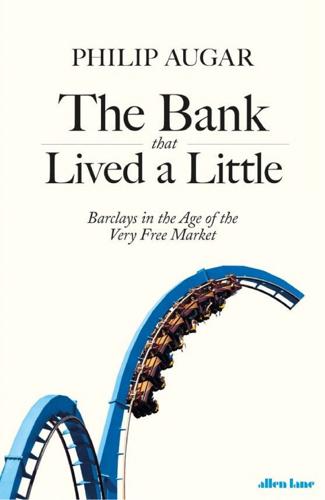
The Bank That Lived a Little: Barclays in the Age of the Very Free Market
by
Philip Augar
Published 4 Jul 2018
By 2007, the City was no longer the self-contained Square Mile around the Bank of England but a dispersed community with global reach. Eighty-seven thousand people worked in the towers of Canary Wharf with its underground shopping malls, glitzy bars and crowded gyms. To the west in Mayfair, hedge funds, private equity funds and family offices went about their business behind discreet nameplates. The number of City jobs in London had more than trebled to 338,000 in a quarter of a century. If support functions were included, over a million people were employed in financial services in the UK and many more depended on them. Financial services accounted for 7 per cent of national output, making it the single most important industry in the UK – but its influence was even greater than that.
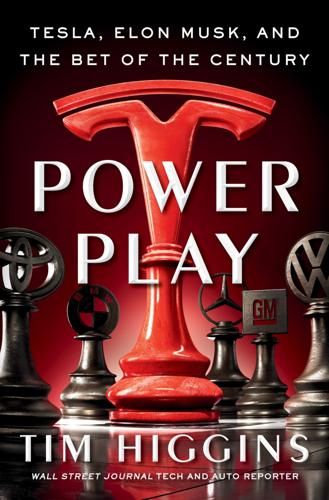
Power Play: Tesla, Elon Musk, and the Bet of the Century
by
Tim Higgins
Published 2 Aug 2021
The company’s executives had taken the almost $12 million of his investment and siphoned it into their own pockets, according to the litigation. Rahr won his lawsuit and kept in touch with Fossi, turning to him for his sundry legal needs. When it was time to sell off his pharmaceutical company, Rahr leaned on Fossi again. After the sale, Rahr asked Fossi to manage his family office in New York City. Fossi was hesitant at first. He didn’t think of himself as an investment guy. He didn’t have a business degree and had very limited accounting in his background. His experience in business was more like that of a pathologist. He’d spent a career wading through corporate litigation, diagnosing the causes of problems, whether fraud or malfeasance.
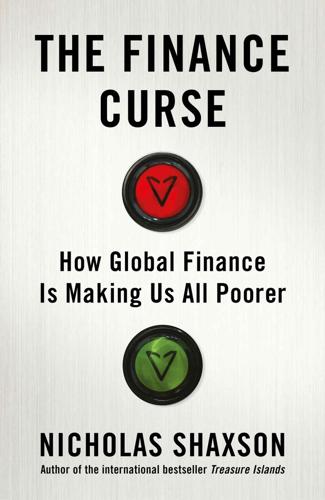
The Finance Curse: How Global Finance Is Making Us All Poorer
by
Nicholas Shaxson
Published 10 Oct 2018
Wealth managers construct and manage large, complex international structures involving banks, tax havens, trusts and foundations, wills, law and accounting, corporations, share and bond portfolios, insurance products, hedge funds, and more – putting them right at the heart of the machinery of global finance. Often working in teams, often operating in ‘family offices’ catering to a single family, they are the elite general dogsbodies of the super-rich. To make their clients feel comfortable they ideally come from the same social class, having imbibed the same manners and customs from childhood: down-at-heel aristocrats for the old money and sophisticated smoothies for the new.
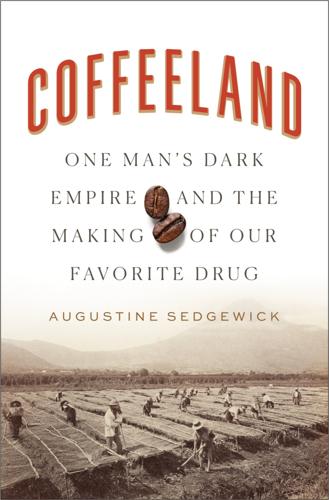
Coffeeland: One Man's Dark Empire and the Making of Our Favorite Drug
by
Augustine Sedgewick
Published 6 Apr 2020
“So far as the United States is concerned,” Putnam wrote, “the Canal practically means the rediscovery of Central America.” Like those of the original conquistadors, Putnam’s discoveries conformed to the image of what he had come looking for. The account he sketched up, a “souvenir of a delightful tropical trip,” was dedicated to his wife and published by the family office in 1913, a year before the canal opened.38 To Putnam, Central America was a fixer-upper: “a little-known land of glowing possibilities, unique problems, and grave responsibilities.”39 The possibilities, problems, and responsibilities were all equally the property of the United States: the golden glow of the first cast an urgent light on the second, suffusing his and similar travelogues with a deeply patronizing conception of the third.
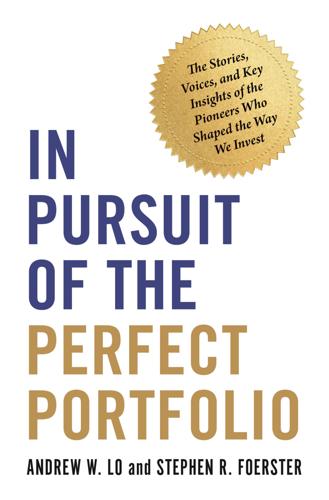
In Pursuit of the Perfect Portfolio: The Stories, Voices, and Key Insights of the Pioneers Who Shaped the Way We Invest
by
Andrew W. Lo
and
Stephen R. Foerster
Published 16 Aug 2021
Thinking he meant the Rockefeller Foundation, the global philanthropic private foundation, Ellis immediately expressed interest and soon met with Robert Strange, whom he found to be thoughtful and engaging. It soon became clear, however, that Strange didn’t work for the Rockefeller Foundation but instead worked for Rockefeller Brothers, Inc., the Rockefeller family office that managed the investments and endowed the philanthropies. While investing was a field that Ellis knew nothing about, he was offered a job and readily accepted. When Ellis excitedly told his wife the good news, he realized he forgot to ask what the starting salary was. It turned out to be the standard $6,000 rate that the Rockefeller bank, Chase Manhattan, paid first-year MBA graduates—and also what the Rockefeller family paid beginning domestic servants.7 Fortunately, his wife was going to be a teacher, earning $7,000, so between the two of them they would be all right financially.8 Rockin’ with the Rockefellers At Rockefeller Brothers, Ellis’s mentor was J.
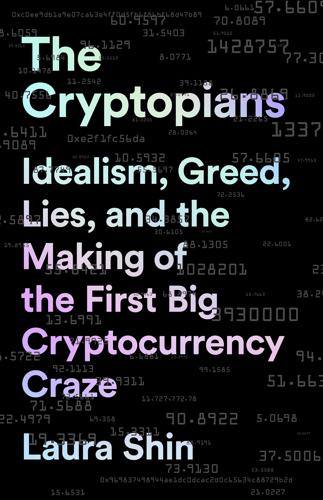
The Cryptopians: Idealism, Greed, Lies, and the Making of the First Big Cryptocurrency Craze
by
Laura Shin
Published 22 Feb 2022
Libertarians adored its potential for enabling people to transact outside the thousand-year-old system of government fiat currencies. Silicon Valley entrepreneurs dreamed it could form the foundation of a faster, cheaper financial system. And the 1 percent, investing either on their own or through hedge funds and family offices, grew a taste for returns of not just 10 percent but 100,000 percent from this futuristic asset: bitcoin. What was so revolutionary about it was simple, really. Previously, whenever someone sent something on the internet, he or she was always sending a copy. So, if Alice sent Bob a PDF, photo, or text message, she always had a copy of that PDF, photo, or text message.
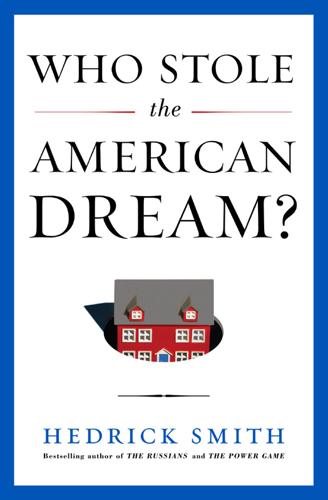
Who Stole the American Dream?
by
Hedrick Smith
Published 10 Sep 2012
Epitomizing the extremes of inequality in America today, this one family enjoys wealth equal to all the assets of the entire bottom 40 percent of the U.S. population—120 million people. In Upper Richistan and Billionaireville, Frank wrote, the super-rich and ultra-rich often compete with each other in conspicuous consumption. Their primary residence costs an average of $16.9 million. Many of these families set up “family offices,” where their personal management staff is dedicated to running their households, paying bills, arranging travel, and handling day-to-day needs. In this group, butlers are back in fashion. According to Frank, super-rich families spend up to $2 million a year on staff, $107,000 for annual spa bills, and up to $182,000 each on watches and $319,000 for cars.
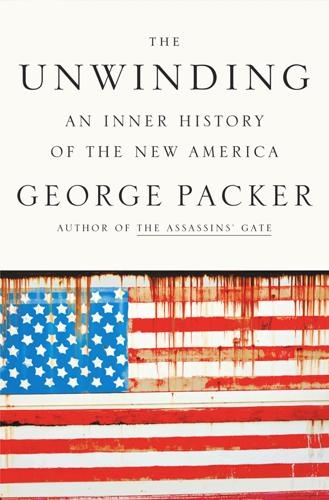
The Unwinding: An Inner History of the New America
by
George Packer
Published 4 Mar 2014
In mid-2010, with the bleeding unstanched, Clarium had to close its New York office and return to San Francisco. The moves were costly disruptions. By 2011, the fund’s assets were down to $350 million, two-thirds of it Thiel’s money, the entirety of his liquid net wealth. Clarium became a de facto family office. For the first time in his life, Thiel had failed at something he prized, publicly and spectacularly. He was humbled by it, and unlike at PayPal, where setbacks had triggered outbursts, he took losing well and kept an even keel with his staff. During the same period, his view of America began to darken.
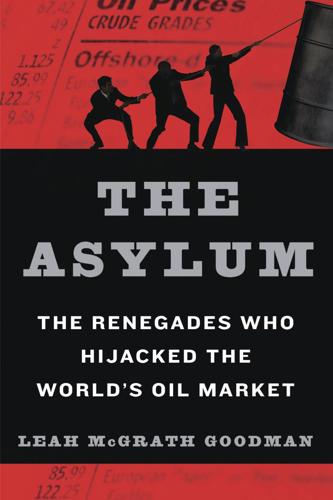
The Asylum: The Renegades Who Hijacked the World's Oil Market
by
Leah McGrath Goodman
Published 15 Feb 2011
We have yet to have a president who will actually get up and tell everyone the truth, say to the American people, ‘We can’t control this bad boy anymore.’ If it’s true that you can’t have innovation without the Frankenstein, then Nymex is that Frankenstein.” D’Agostino went on to work for a number of family offices and hedge funds across Manhattan and abroad. The “Fuck ICE” Guy After receiving several million dollars from the CME merger, the executive who led Nymex’s failed push into London went from being a pit trader to a screen trader. He now works from home. “You know, after I left Nymex, I started walking my kids to school, but then I noticed that the other parents were avoiding me.
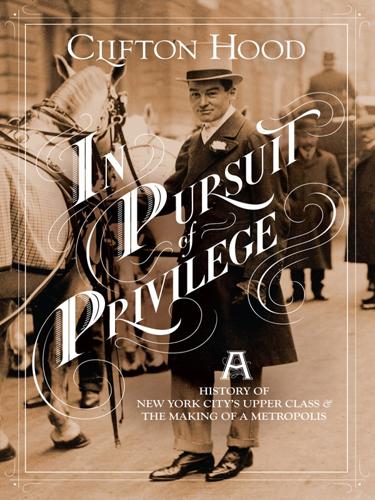
In Pursuit of Privilege: A History of New York City's Upper Class and the Making of a Metropolis
by
Clifton Hood
Published 1 Nov 2016
Their gifts have helped make New York City the spectacular metropolis it has become; take them away, and New York would be a more ordinary place.4 Besides their huge fortune and their commitment to civic missions that would justify their wealth and atone for past business ruthlessness and for notorious incidents like the Ludlow Massacre of 1914, their penchant for organization is also a legacy of the Rockefellers. Starting with the innovation of the Standard Oil Trust in 1883, the Rockefellers have been adept at using organizations to achieve their ends, from the family office in Room 5600 of the RCA Building that handled their investments, to foundations like the Rockefeller Foundation and the Rockefeller Brothers’ Fund that have directed their philanthropic endeavors, to auxiliaries like the Rockefeller Archive Center that generate knowledge about the family and its activities.
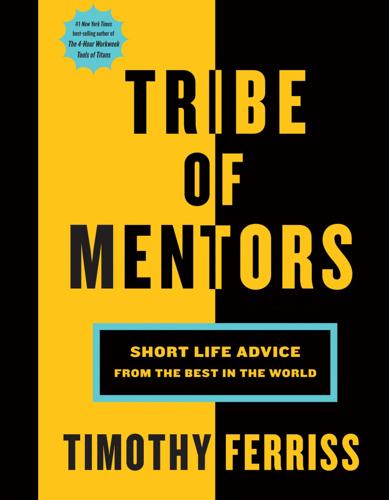
Tribe of Mentors: Short Life Advice From the Best in the World
by
Timothy Ferriss
Published 14 Jun 2017
After selling his interest in The Princeton Review, Adam turned his attention in the early ’90s to the then-emerging field of artificial intelligence, developing a program that could analyze text and provide human-like commentary. He was later invited to join a well-known quant fund to develop statistical trading models, and since, he has established himself as an independent global macro advisor to the chief investment officers of a select group of the world’s most successful hedge funds and ultra-high-net-worth family offices. What is the book (or books) you’ve given most as a gift, and why? Or what are one to three books that have greatly influenced your life? Our unconscious mind is working all the time, processing orders of magnitude more information, and with astoundingly greater facility, than is our conscious mind.
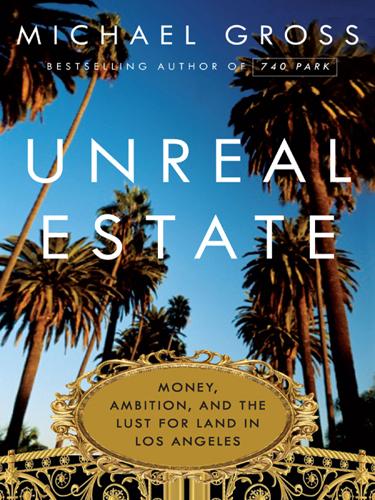
Unreal Estate: Money, Ambition, and the Lust for Land in Los Angeles
by
Michael Gross
Published 1 Nov 2011
They alleged she asked Mullen to put together a gift list that totaled “someplace in the range of $10 million,” and that in a meeting with one of her lawyers after the new documents were drawn up, she upped her gifts to a maid and secretary and deleted Stockmar because “she had already done enough for Diane and … they had not been in close contact with each other for some time.” The response then recounted the sad end of Dolly’s life in great detail, her January 1987 visit to a glaucoma specialist that left her suicidal, her last visit to the family office that February, the hiring of round-the-clock nurses shortly afterwards, a March call to her lawyers from one of the chauffeurs saying Dolly wanted to revise her will again, and the way “Respondent Logan was asked to help guide Dolly’s hand to the line on which she should sign (since she could not see well enough to find the line).”
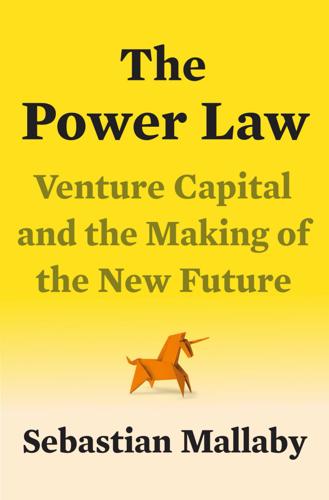
The Power Law: Venture Capital and the Making of the New Future
by
Sebastian Mallaby
Published 1 Feb 2022
After more keystrokes, up popped the answer: Yale’s $21,000-per-year tuition. Draper was astonished. The new Netscape browser helped to navigate the web, but it did not offer a directory or search service. The idea that you could look up almost anything online felt like digital magic. Draper resolved to encourage his son, Tim, who ran the Draper family office, to make an investment in Yahoo.[2] Around the same time, a dapper, bespectacled figure also made his way to the trailer. Whereas Draper was Silicon Valley royalty—he could remember a time when Sand Hill Road was a dirt track where Tim rode a chopper with ape-hanger handlebars—the dapper visitor was a parvenu, a Welshman named Michael Moritz.
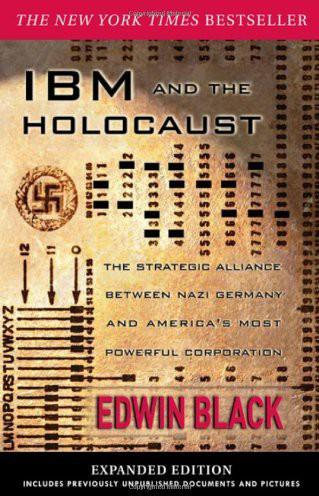
IBM and the Holocaust
by
Edwin Black
Published 30 Jun 2001
Whether driven by a sense of national duty or ordinary fear, everyone was forced to confront their racial make-up. At the apex of racial grading was a bureaucratic entity attached to the Interior Ministry. This section began its existence before 1933 as the Nazi Information Office. Ultimately, after numerous name changes, it became known as the Reichssippenamt, or Reich Family Office, endowed with the final authority to decide who was Jewish or Aryan.71 Lists were distributed, exchanged, and updated continously, often in a haphazard fashion. To cope with the growing bureaucratic fascination with punch card records, senior Interior Ministry officials reviewed one fanciful proposal for a twenty-five-floor circular tower of data to centralize all personal information.

1948: A History of the First Arab-Israeli War
by
Benny Morris
Published 27 Apr 2009
They had established a continuous chain of fortified positions between Auja al-Hafir and Bir Asluj, just south of Beersheba, which effectively left the central and southern Negev under their thumb and Beersheba itself under potential threat. Israel, meanwhile, remained burdened by the crippling weight of mobilization: half its adult males were under arms, away from their families, offices, farms, and plants, and with no end in sight. The new state, ravaged by the war, needed its manpower and peace to pursue reconstruction and to absorb the masses of immigrants flooding its shores. Yoav had failed to resolve the strategic dilemma of "no war, no peace." David Ben-Gurion was still powerfully drawn to Judea and Samaria by historical-ideological and strategic considerations,' but international diplo matic considerations dictated caution and restraint.
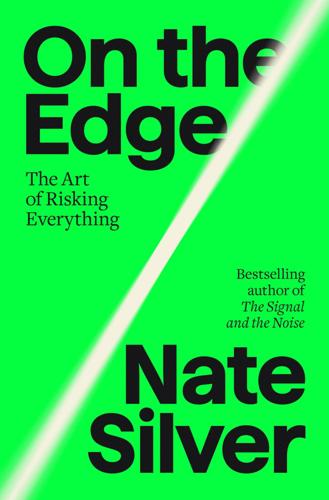
On the Edge: The Art of Risking Everything
by
Nate Silver
Published 12 Aug 2024
For example, the strong and weak interactions in physics—two of the four fundamental forces along with gravity and electromagnetism—apply only at small scales and can be ignored for most problems in biology or chemistry. *15 Kurganov fell victim to politics himself, having been ousted from Musk’s orbit in an internal coup from the family office and unflatteringly described in headlines as a “34-year-old former pro gambler who dropped out of college to smoke weed.” *16 A nerdy term that EAs and rationalists use for this is Chesterton’s fence, referring to a parable by the philosopher G. K. Chesterton about a fence that’s been erected across a road for reasons you don’t understand.
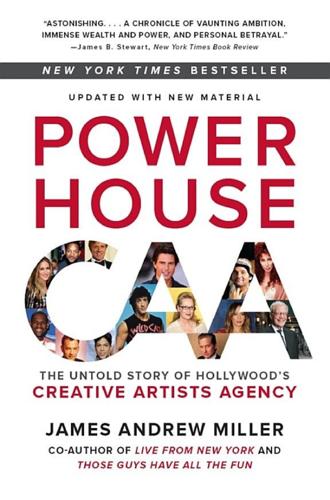
Powerhouse: The Untold Story of Hollywood's Creative Artists Agency
by
James Andrew Miller
Published 8 Aug 2016
I’m not so much talking about what the film is about, because I don’t believe I’m moral artistically all the time, but more in terms of the code I use when I either accept or pass on roles. In 2008, CAA’s Rick Hess was an executive in charge of the agency’s Film Finance Group, increasingly finding himself, often in tandem with partner David O’Connor, involved in multifaceted transactions from private equity, hedge funds, and wealthy family offices to fund slates on movies. For example, CAA had put together for producer Jerry Bruckheimer a financing fund that was north of $300 million from Barclays, and even though it was discontinued after the crash of 2008, Bruckheimer was still able to walk away with roughly $20 million for development.
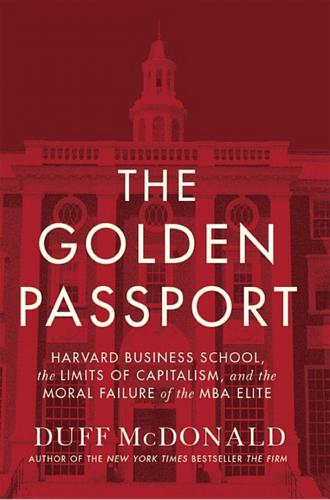
The Golden Passport: Harvard Business School, the Limits of Capitalism, and the Moral Failure of the MBA Elite
by
Duff McDonald
Published 24 Apr 2017
The firm’s first fund was just $8 million; its eighth was $550 million.4 While that size constrained the ability of the funds to achieve the spectacularly high returns of smaller funds, it likewise opened venture capital to a wide variety of pension fund and other institutional investors. There is Peter Crisp (’60), hired by Laurance Rockefeller in 1960 to help with the Rockefeller family’s informal venture investments. Crisp played a pivotal role in the 1969 creation of Venrock, which transformed an informal angel group into one of the first professional family-office venture operations. Along with the Phippses and the Whitneys, Venrock set the bar for professionalized venture investing. Over the thirty years through 1999, Venrock, which began with just $7.5 million in capital, invested in 272 companies, of which 152 were winners (with gains of $1.9 billion), 71 were losers (losses of $93 million), and 72 still in play.
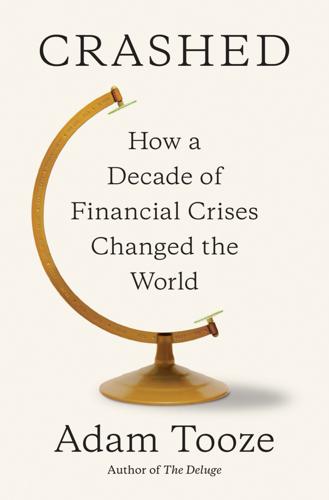
Crashed: How a Decade of Financial Crises Changed the World
by
Adam Tooze
Published 31 Jul 2018
Bypassing the bankrupt savings and loans and the struggling commercial banks, cash deposits flowed into huge pools of professionally managed cash looking for good yields on Wall Street. Nor were the MMFs the only ones. Corporations began to manage their cash pools more professionally. Ultrarich individuals who became more and more numerous from the 1970s onward had billions of dollars that were managed by funds and family offices. By the end of the 1990s perhaps as much as a trillion dollars had accumulated in these institutional cash pools, looking for highly liquid, interest-yielding investment opportunities that were absolutely, or close to absolutely, safe.30 Lending against security, or buying the commercial paper of well-known investment banks, was precisely the kind of safe short-term asset that the managers of the cash pools wanted.
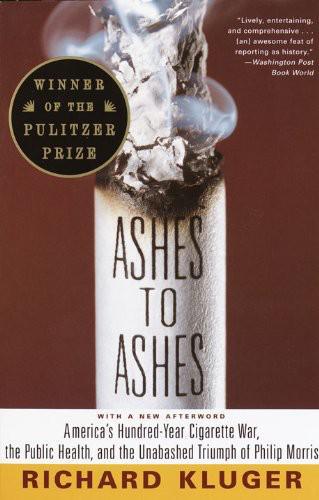
Ashes to Ashes: America's Hundred-Year Cigarette War, the Public Health, and the Unabashed Triumph of Philip Morris
by
Richard Kluger
Published 1 Jan 1996
Indeed, his father had turned from Judaism to the Ethical Culture Society, and Joe Junior was very much the assimilationist, at ease in almost any social sphere. Indoctrinated early in the tobacco business and as a youngster attending leaf auctions abroad with his father, Joe Junior worked for a while after college in the tobacco fields of Wisconsin and on Cuban plantations before sharing a rolltop desk with his father in the family office. Over time, he would master the horticulture of cigar tobacco to the point where he could tell by the look, feel, taste, and smell of a leaf just where it grew, the nature of the soil that had nourished it, the density of the yield per acre, and what kind of fertilizer had been applied to it. He also moved the family beyond the business of buying and reselling Sumatran leaf for wrapping cigars and Cuban leaf for filling them by pushing his father in 1910 into buying land in the Connecticut River Valley to raise their own “shade” tobacco, grown under a veil of protective cheesecloth, for sale to cigar makers.

Great North Road
by
Peter F. Hamilton
Published 26 Sep 2012
Size always gives you the strength to negotiate a discount, and the most beneficial terms.” “Yes.” Saul wanted to see how Noah would counter that excellent argument. But for some reason Noah seemed to have given up in disgust. Then it was details. Exactly the kind of thing that had sent Saul running from the family office. Not today. Today he contributed everything he could, every question he’d heard his father and brother ask their clients. Service arrangements? Spare parts, licensed microfacture or import with discount? Maintenance—would you consider a local start-up partnership with Massachusetts Agrimech, giving both sides a larger presence?